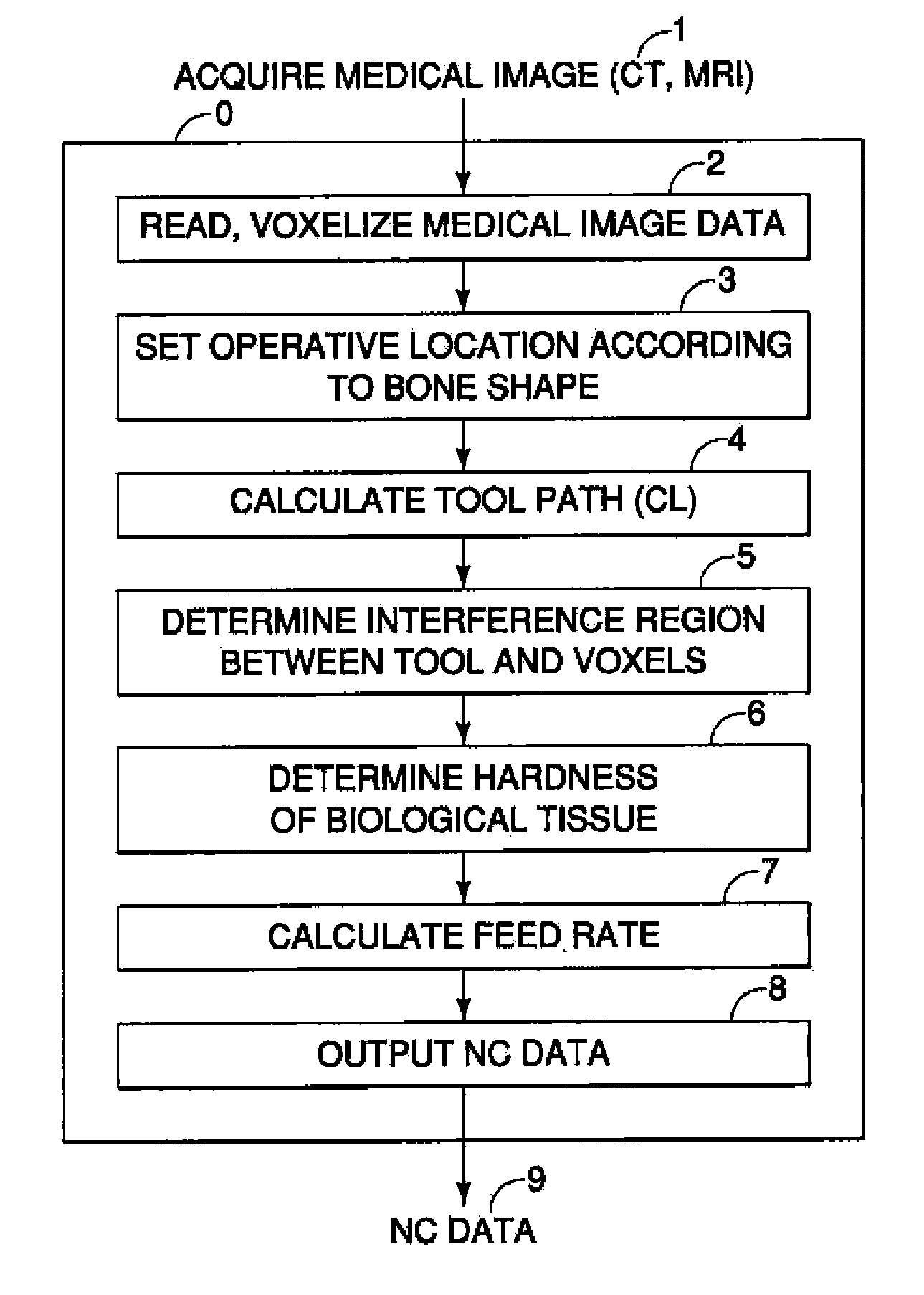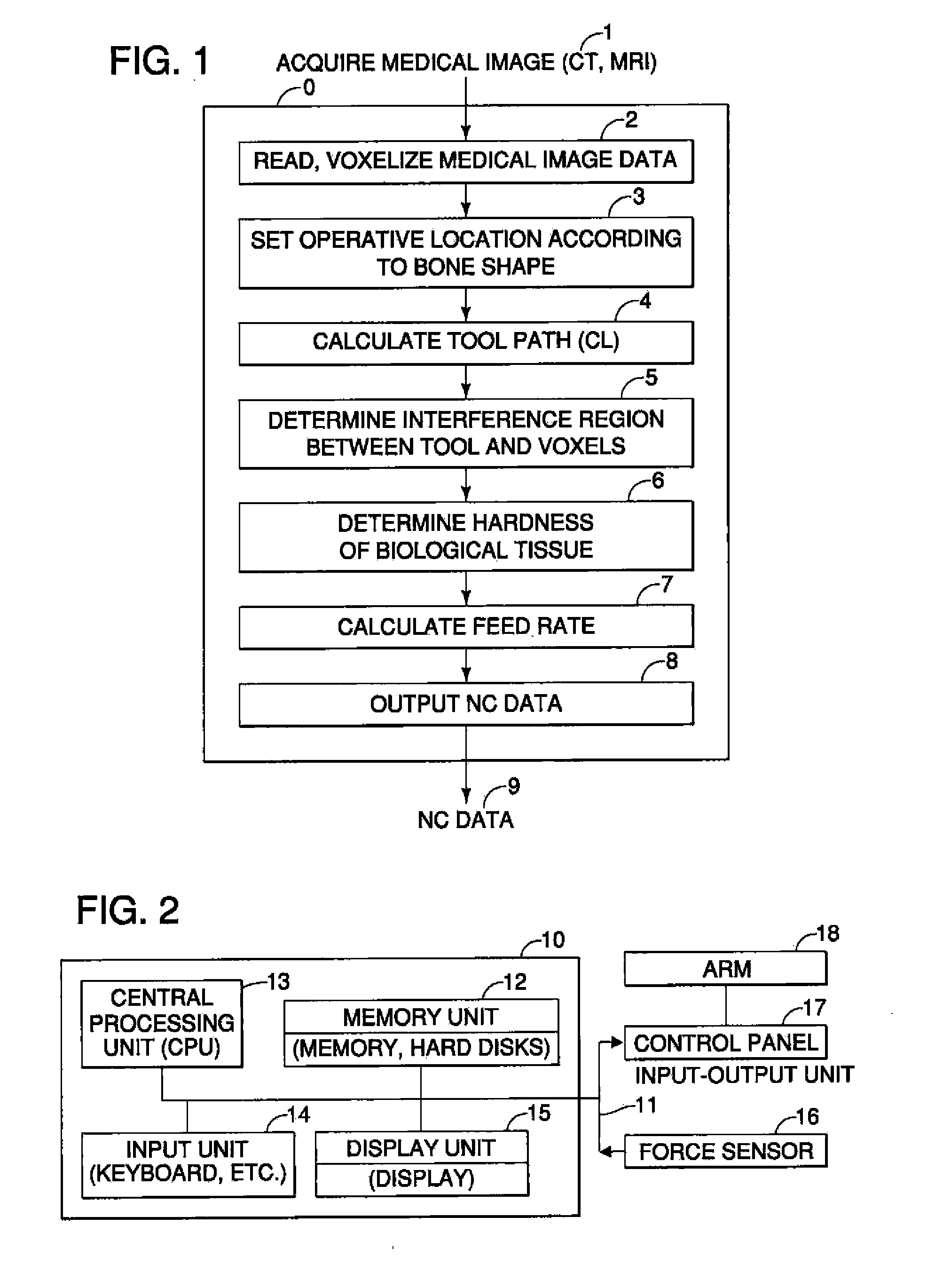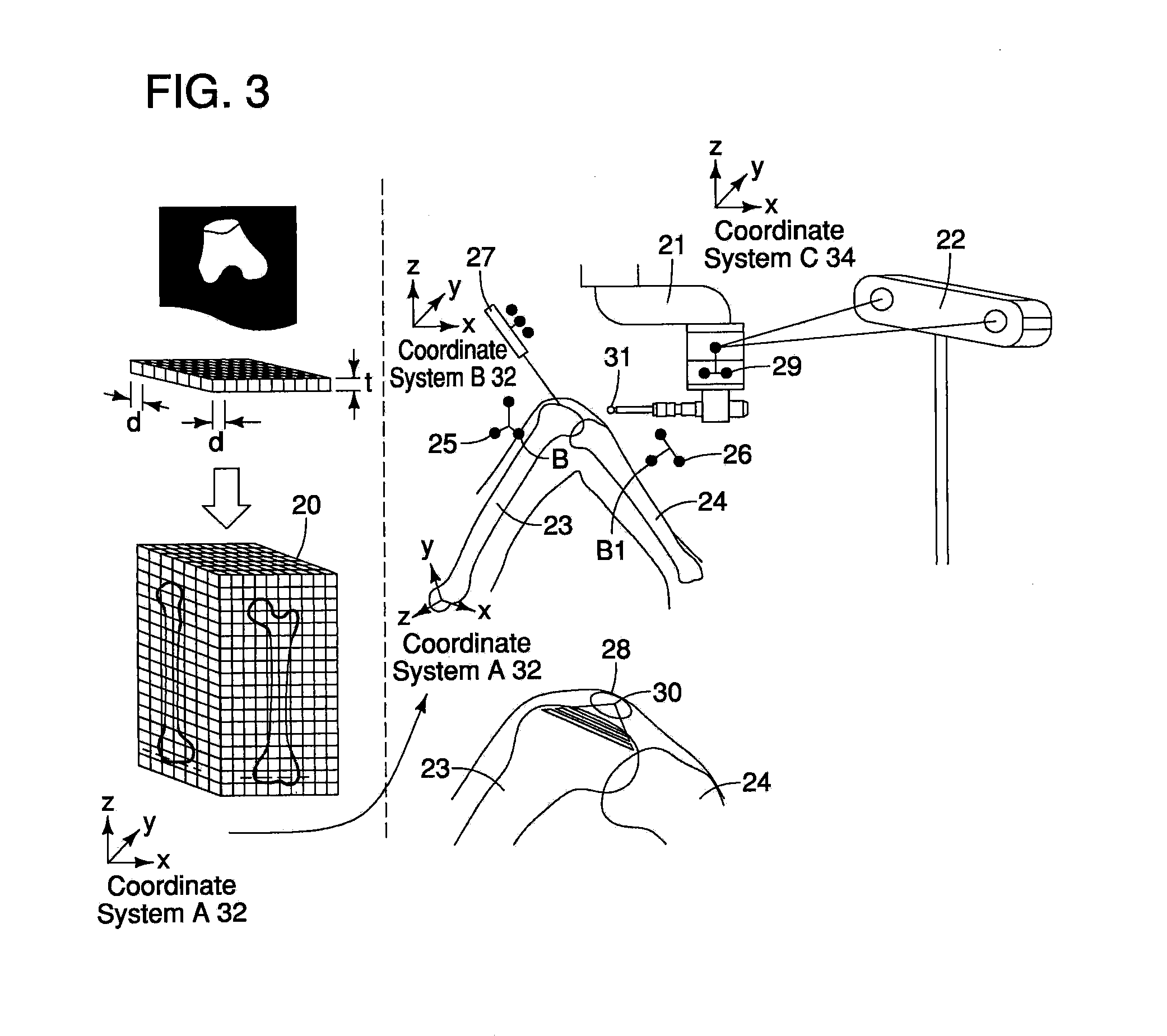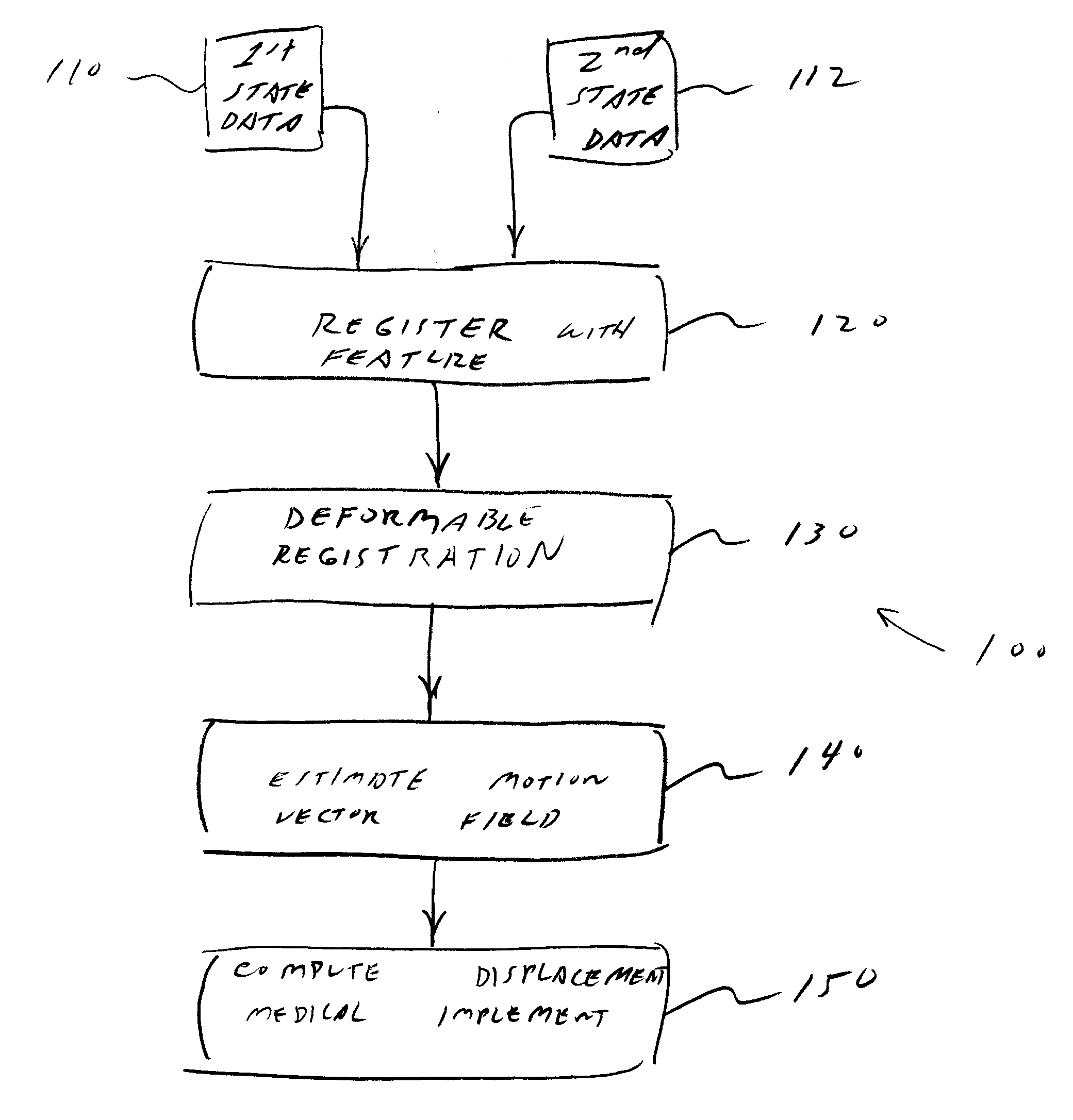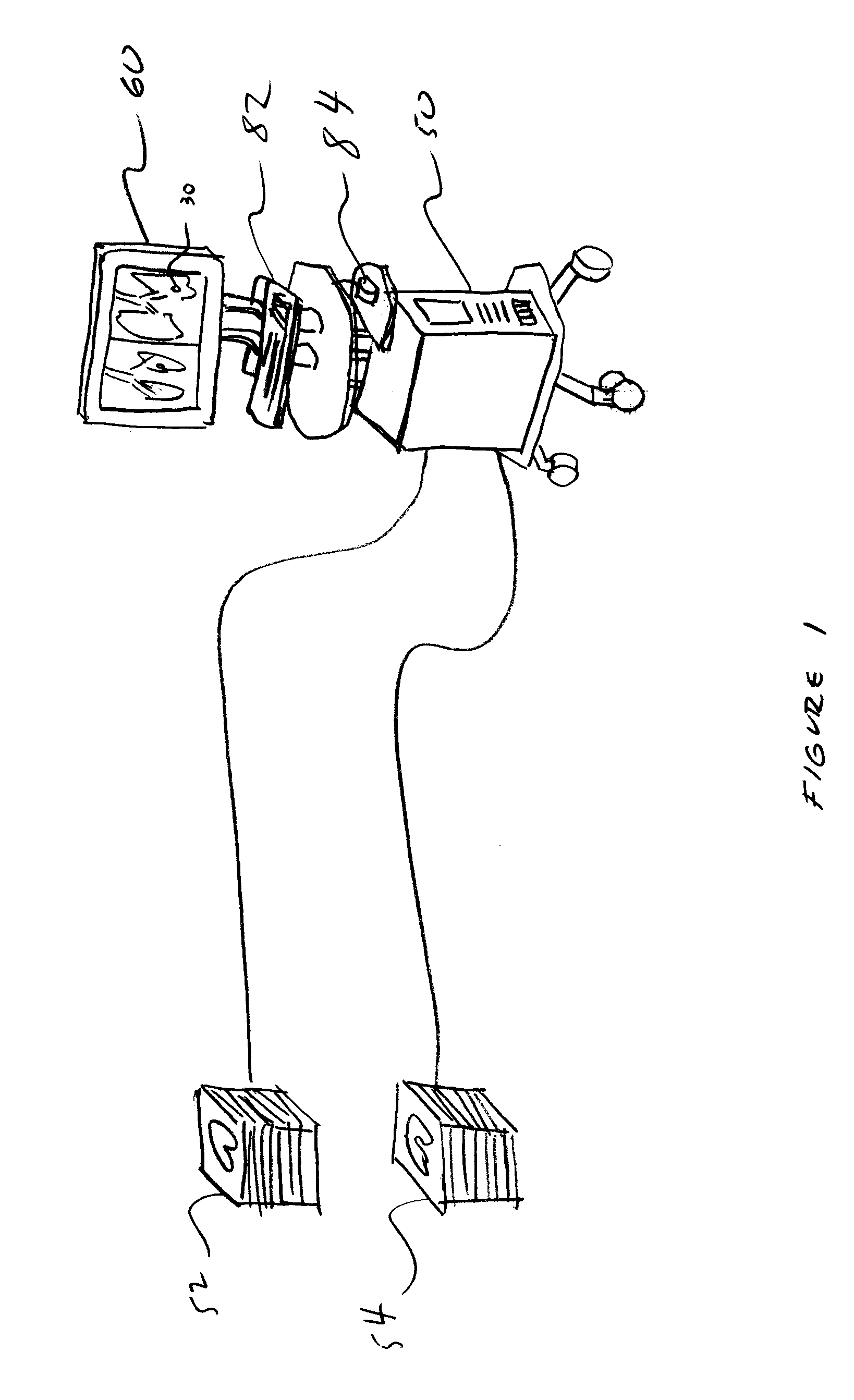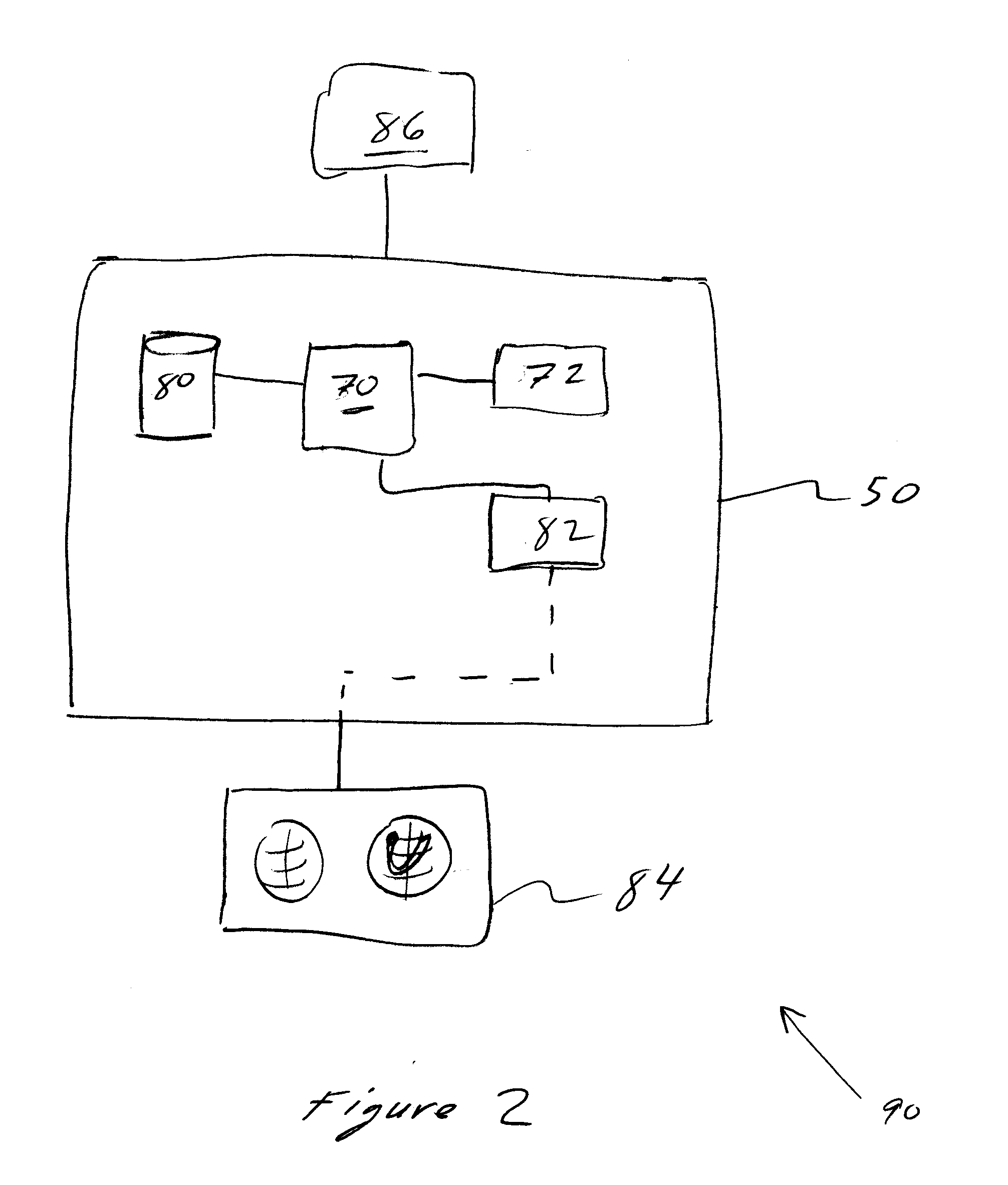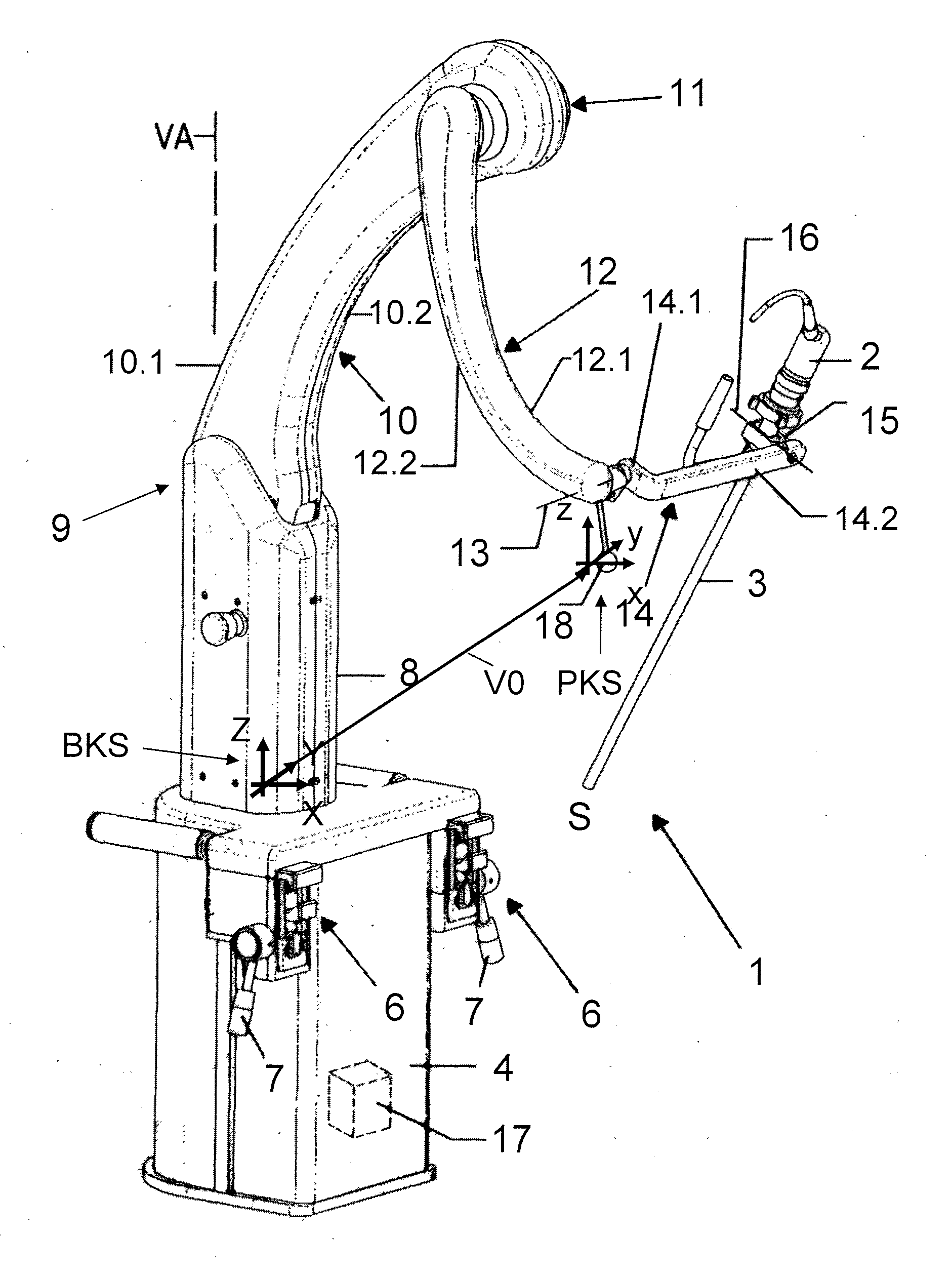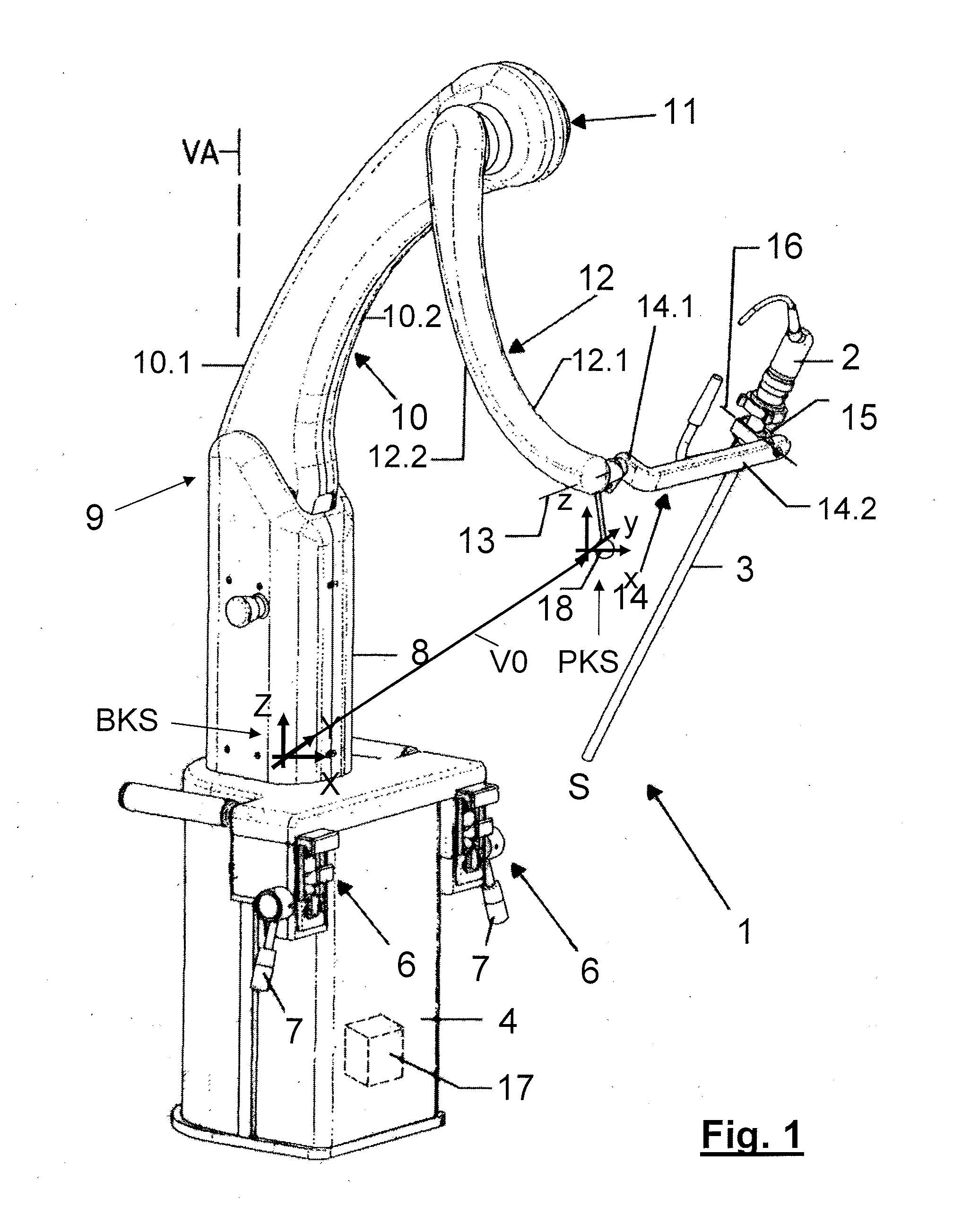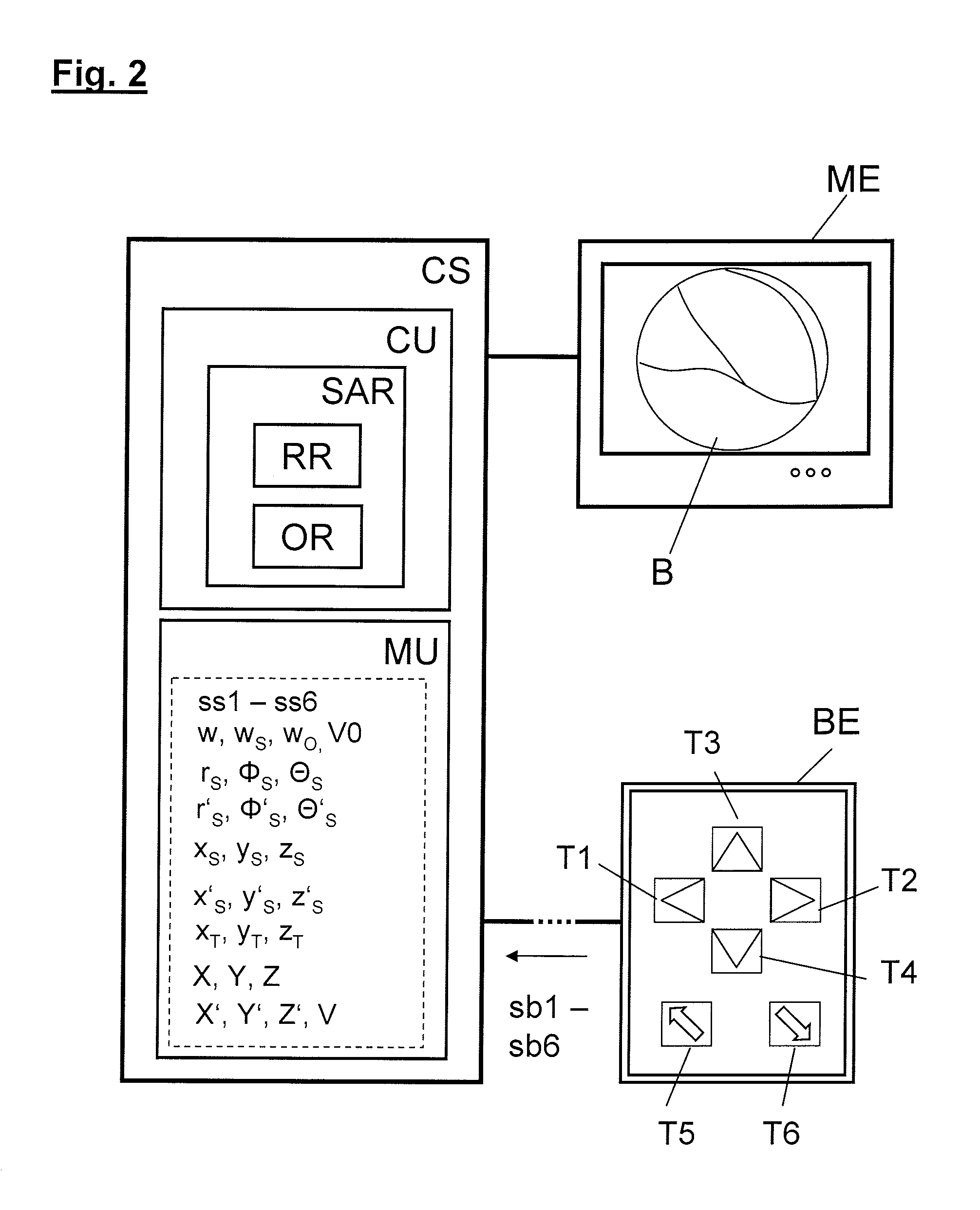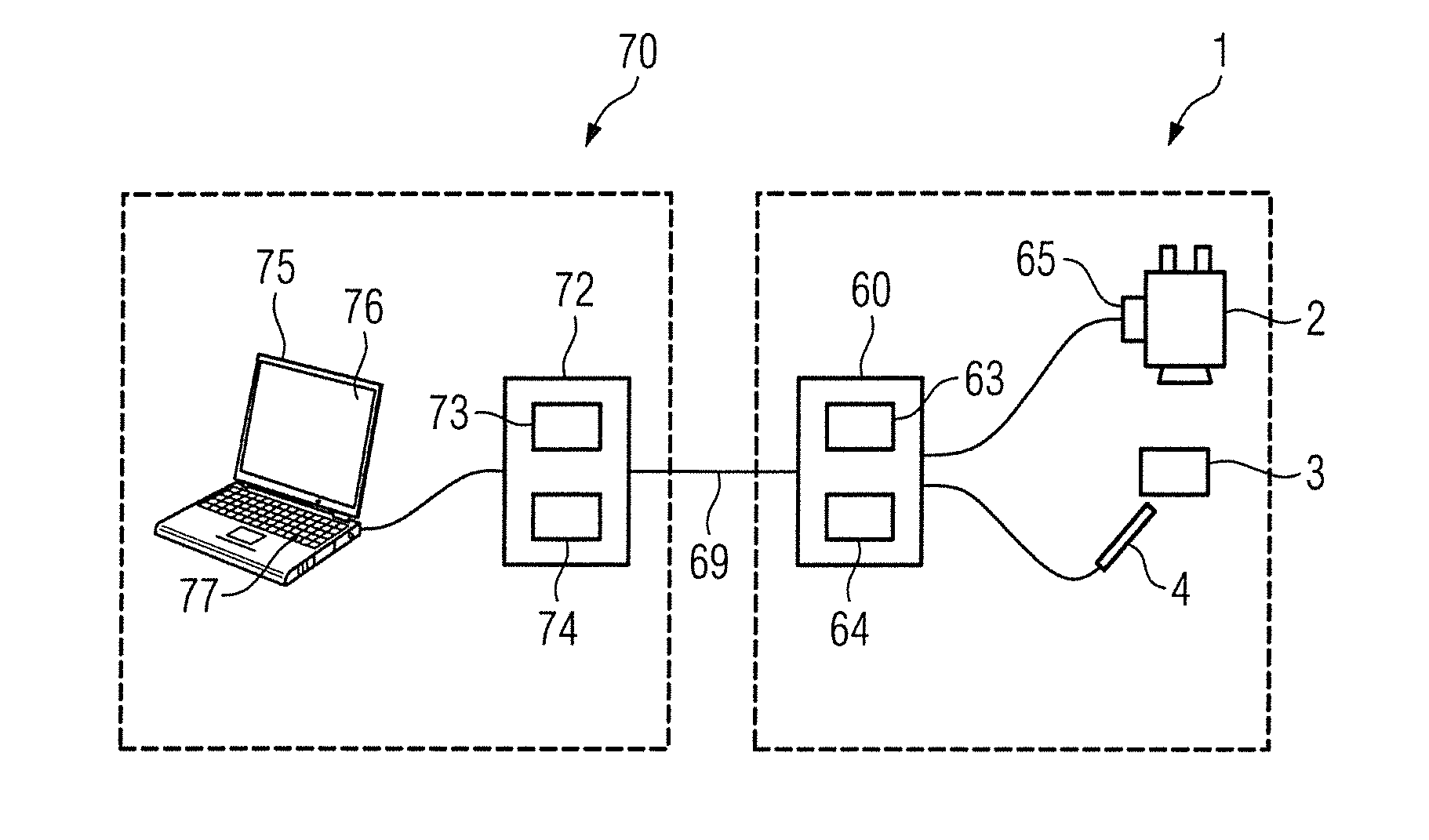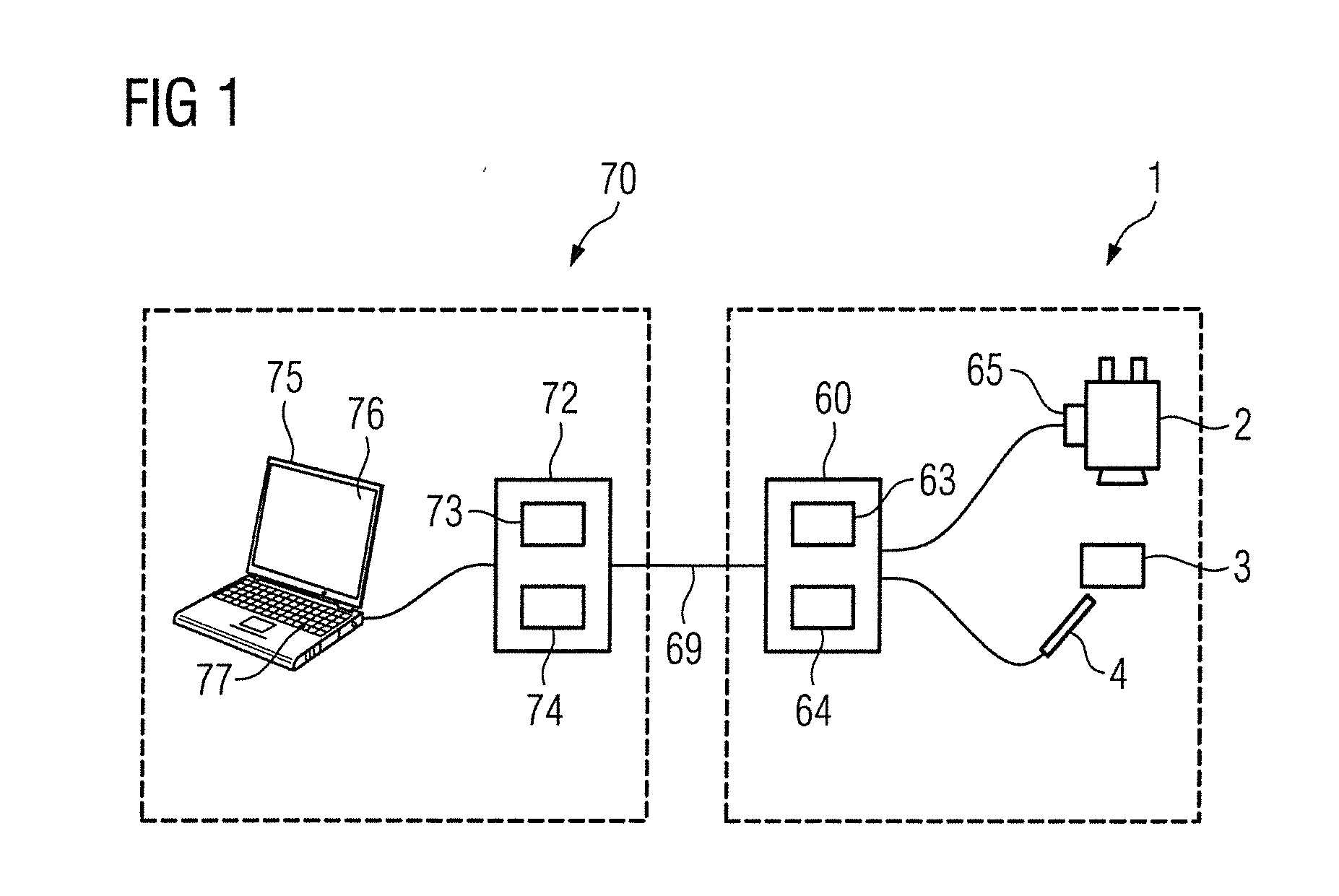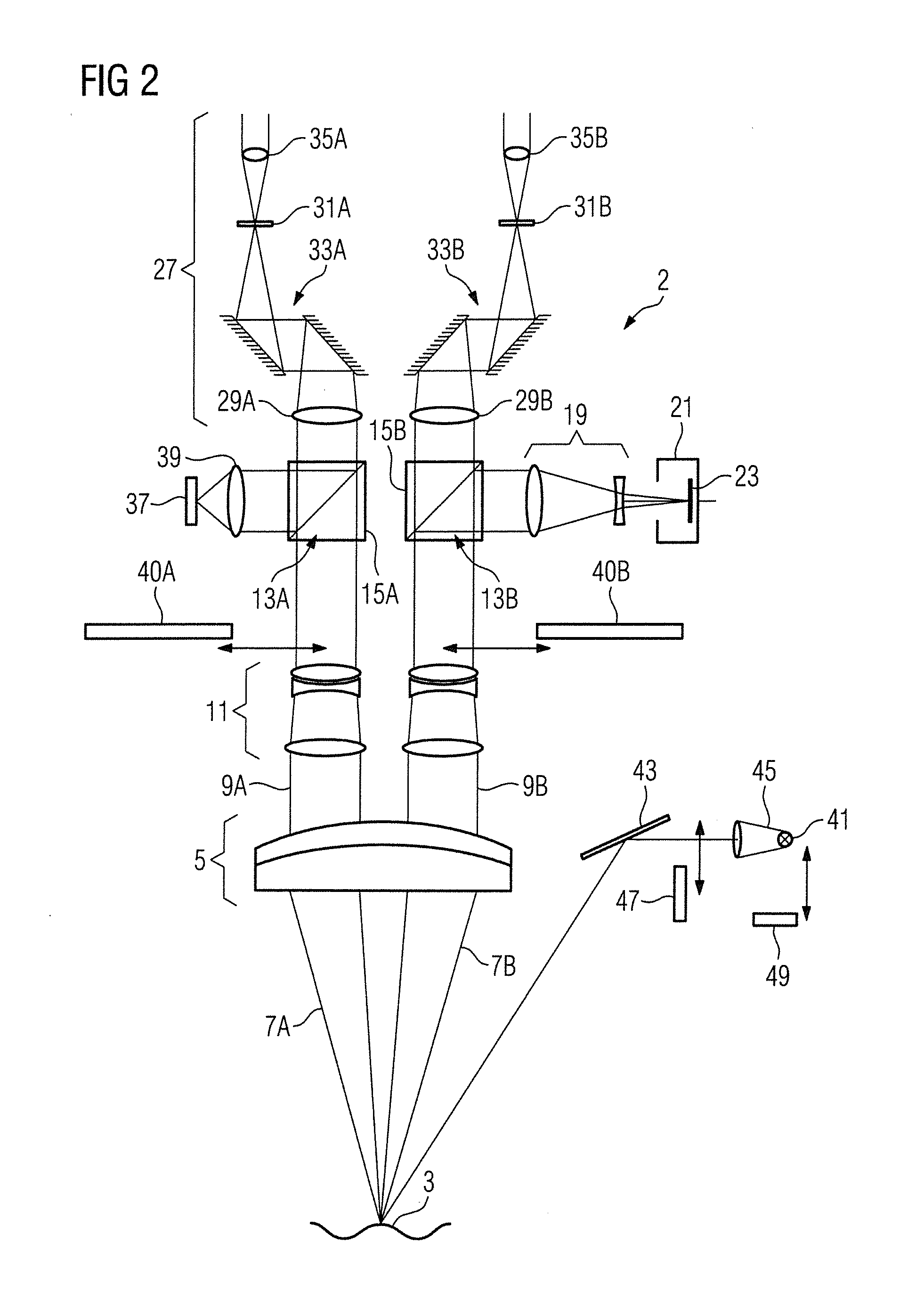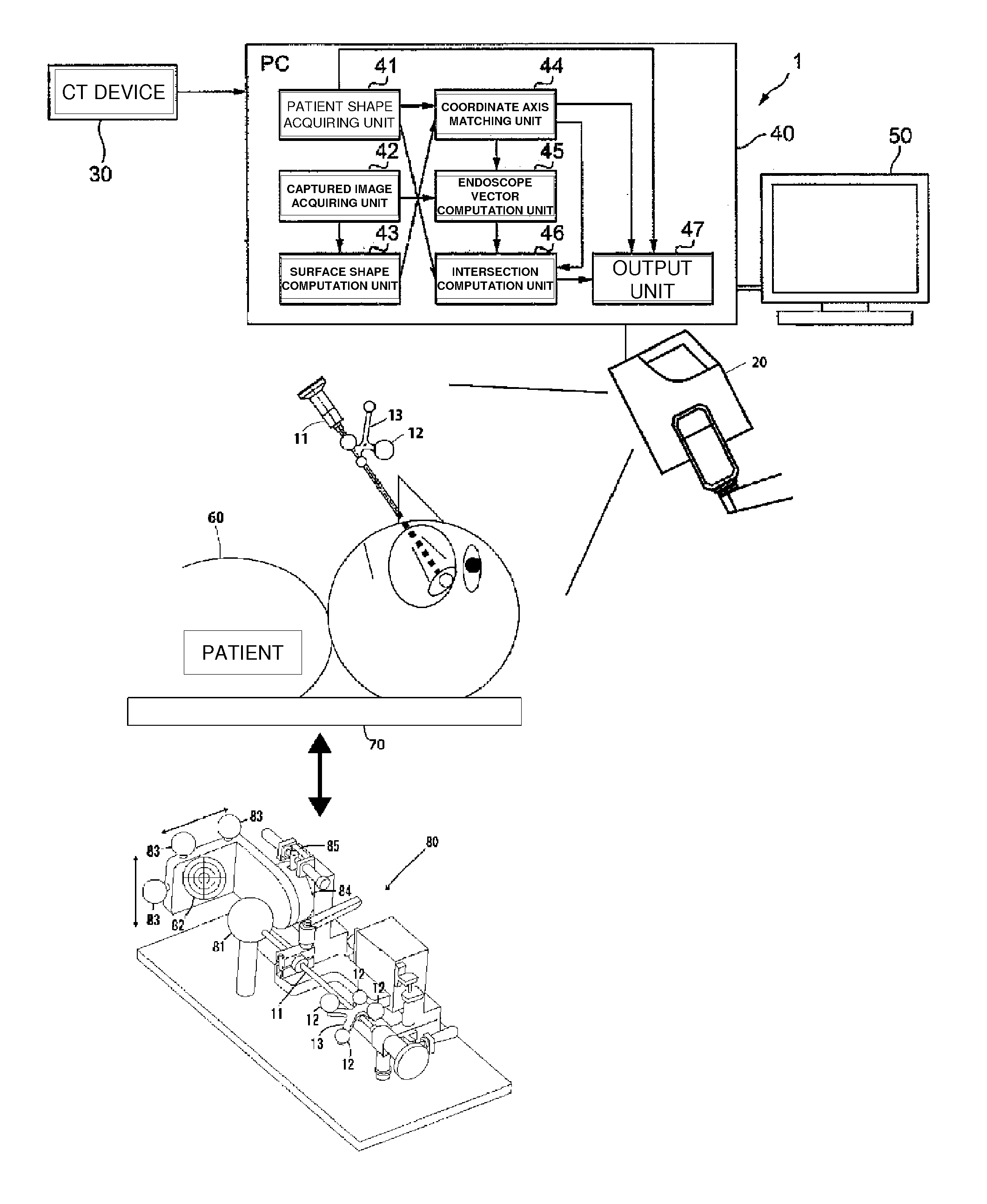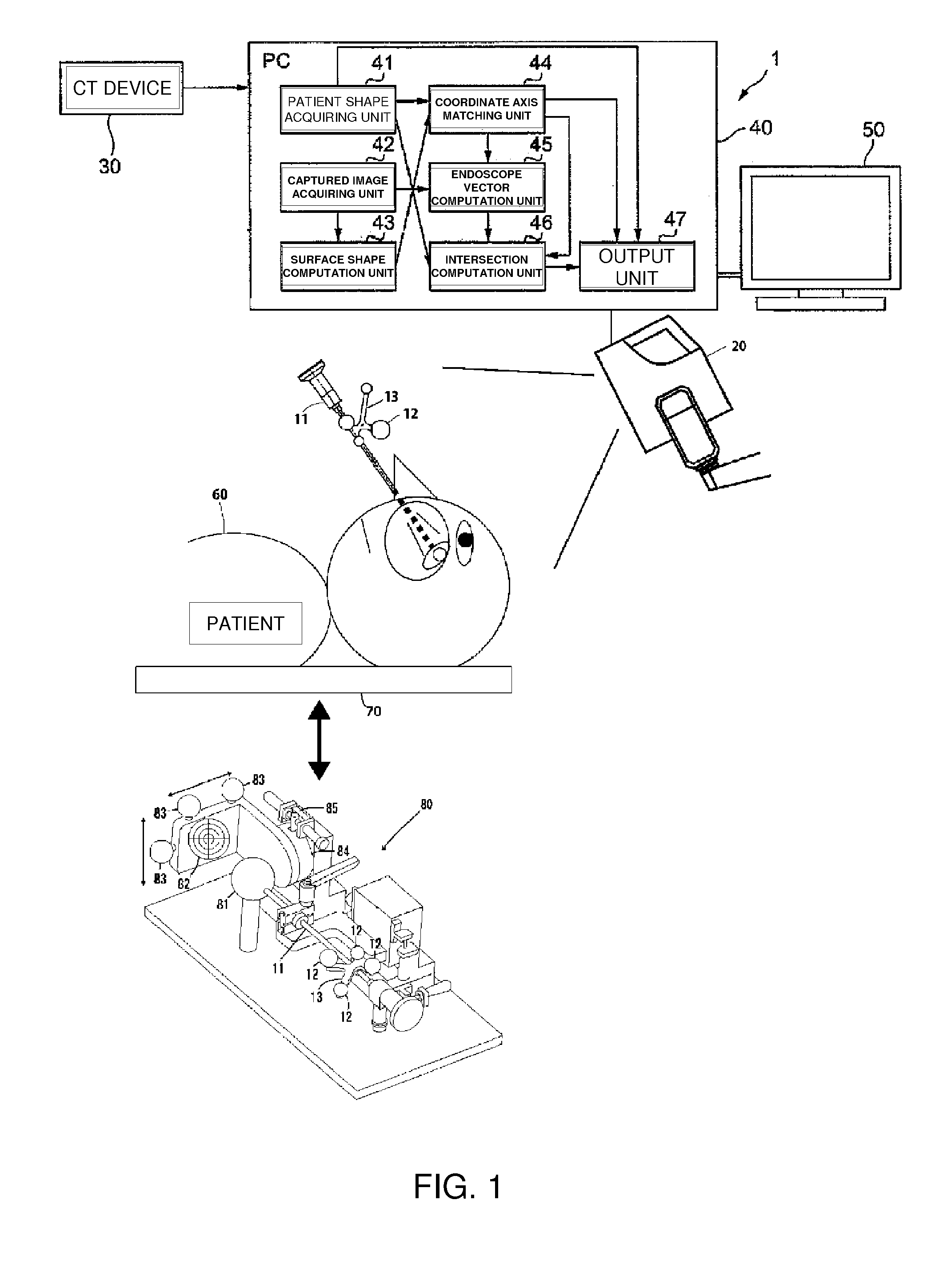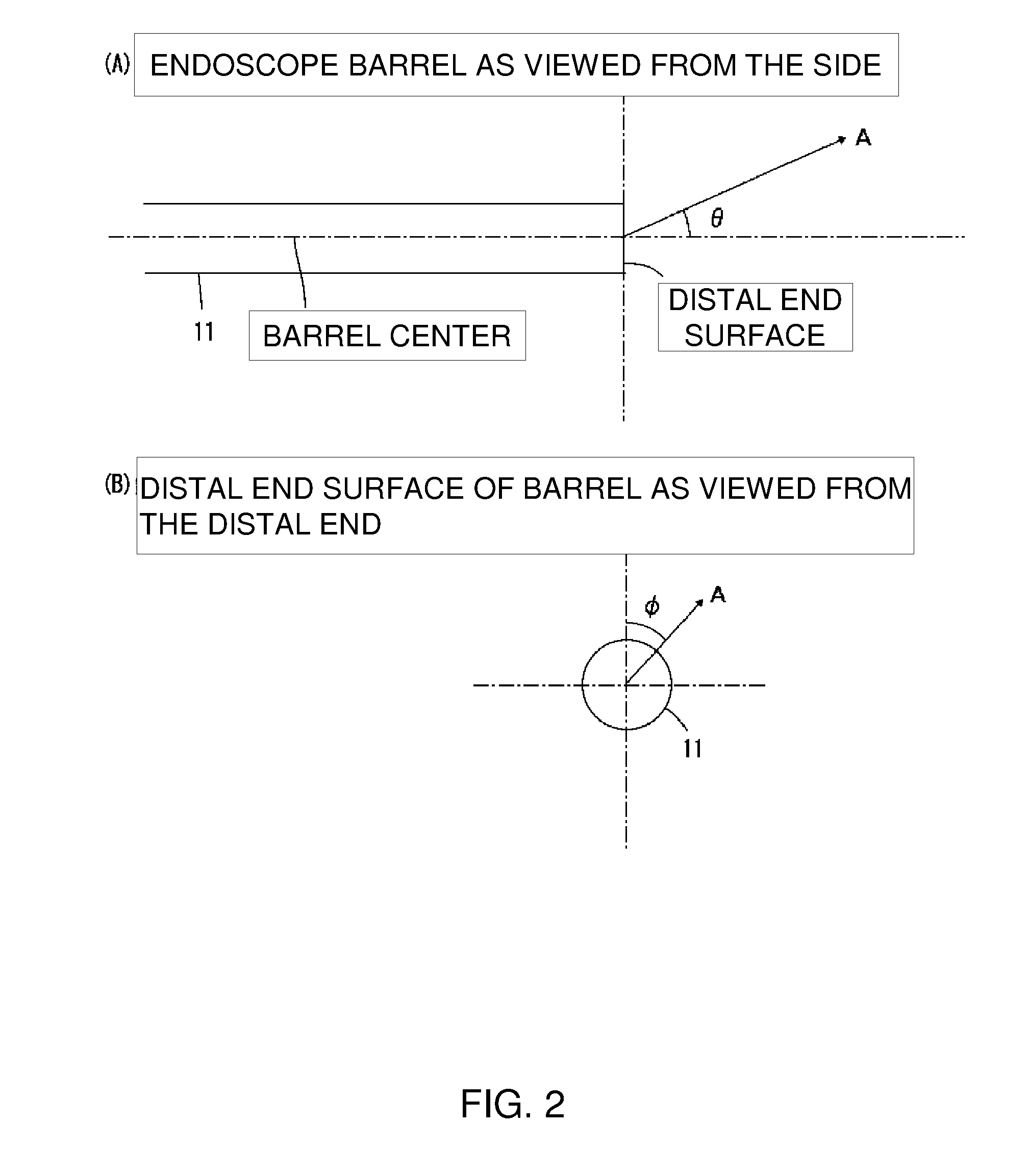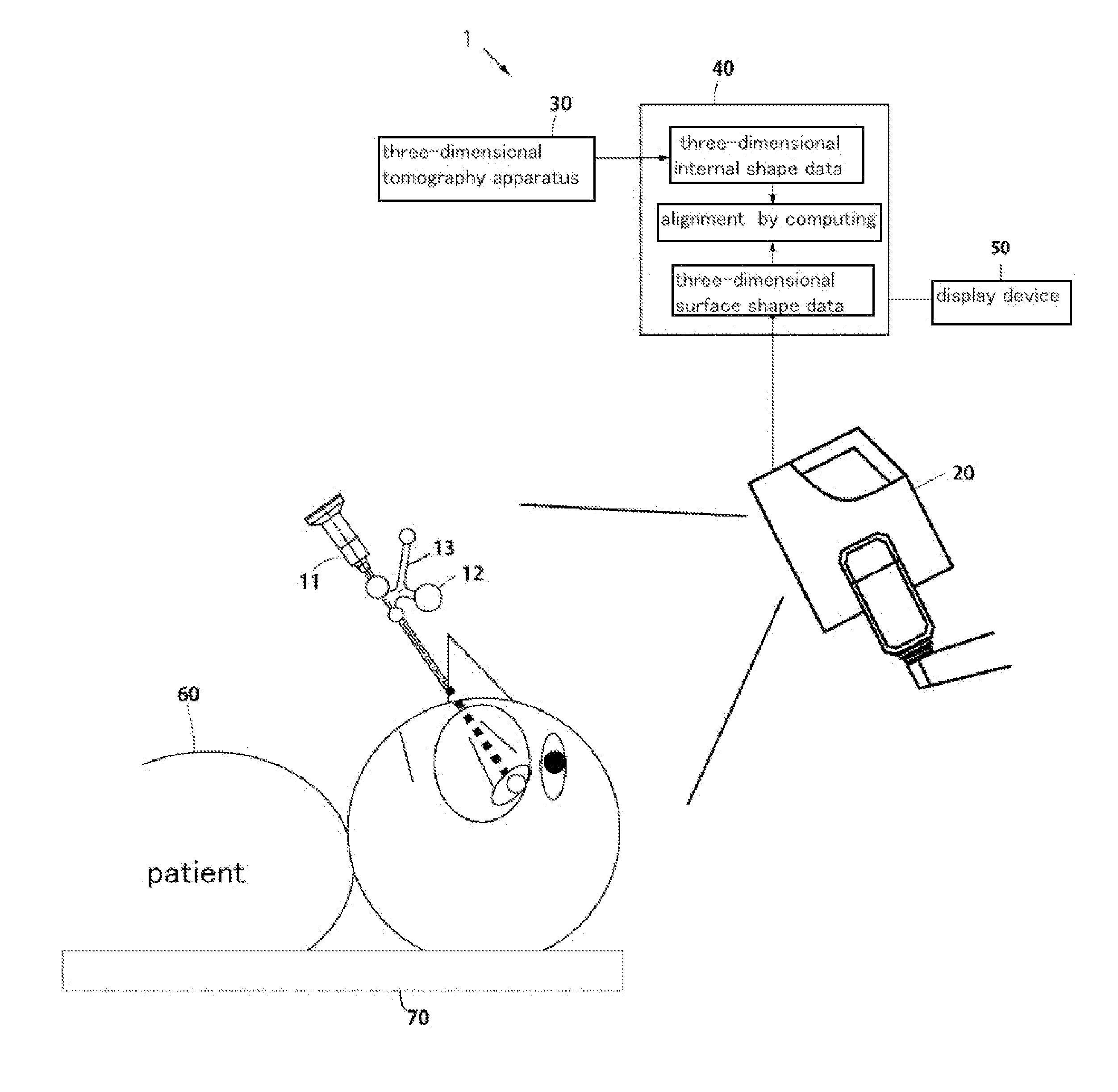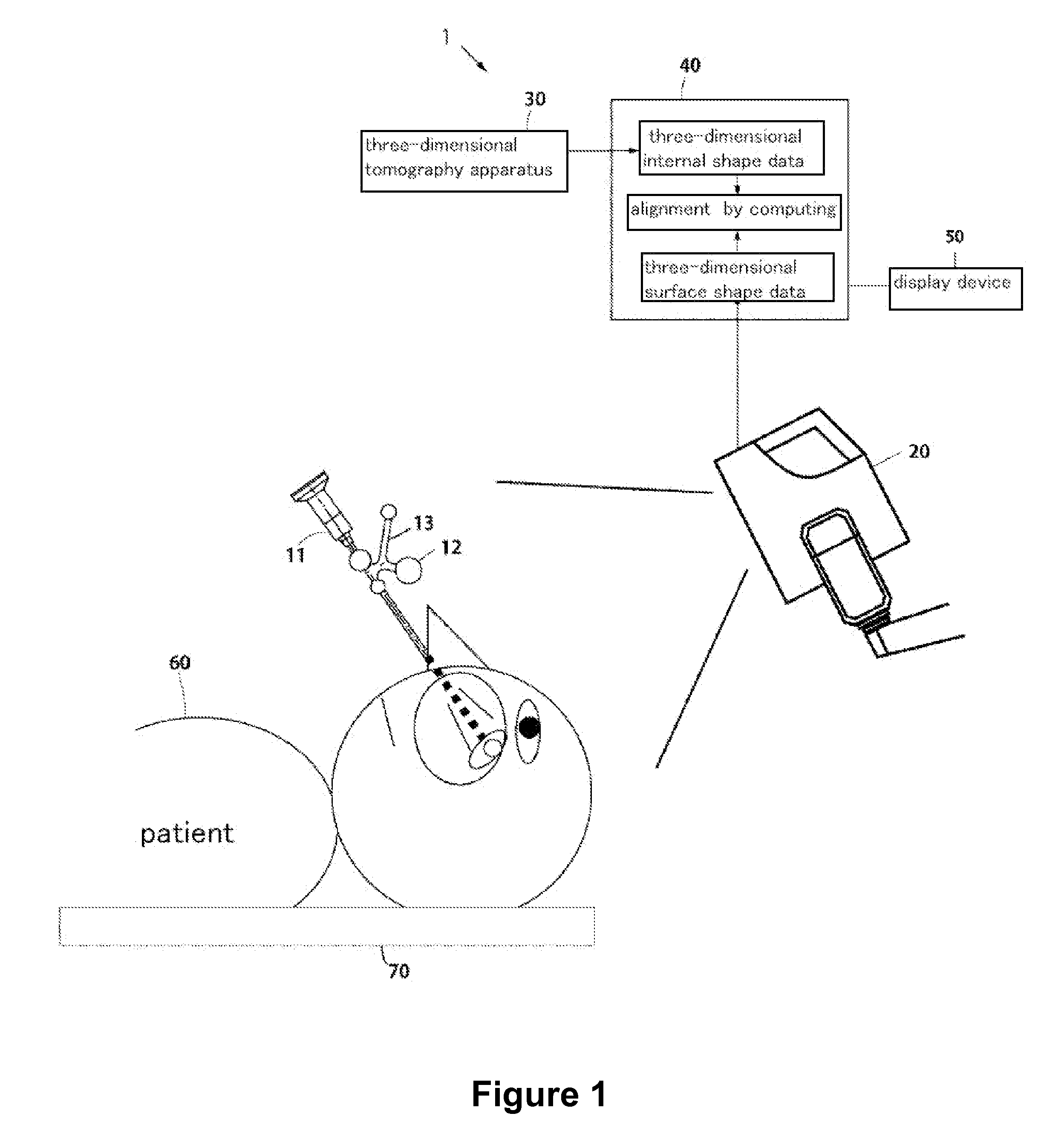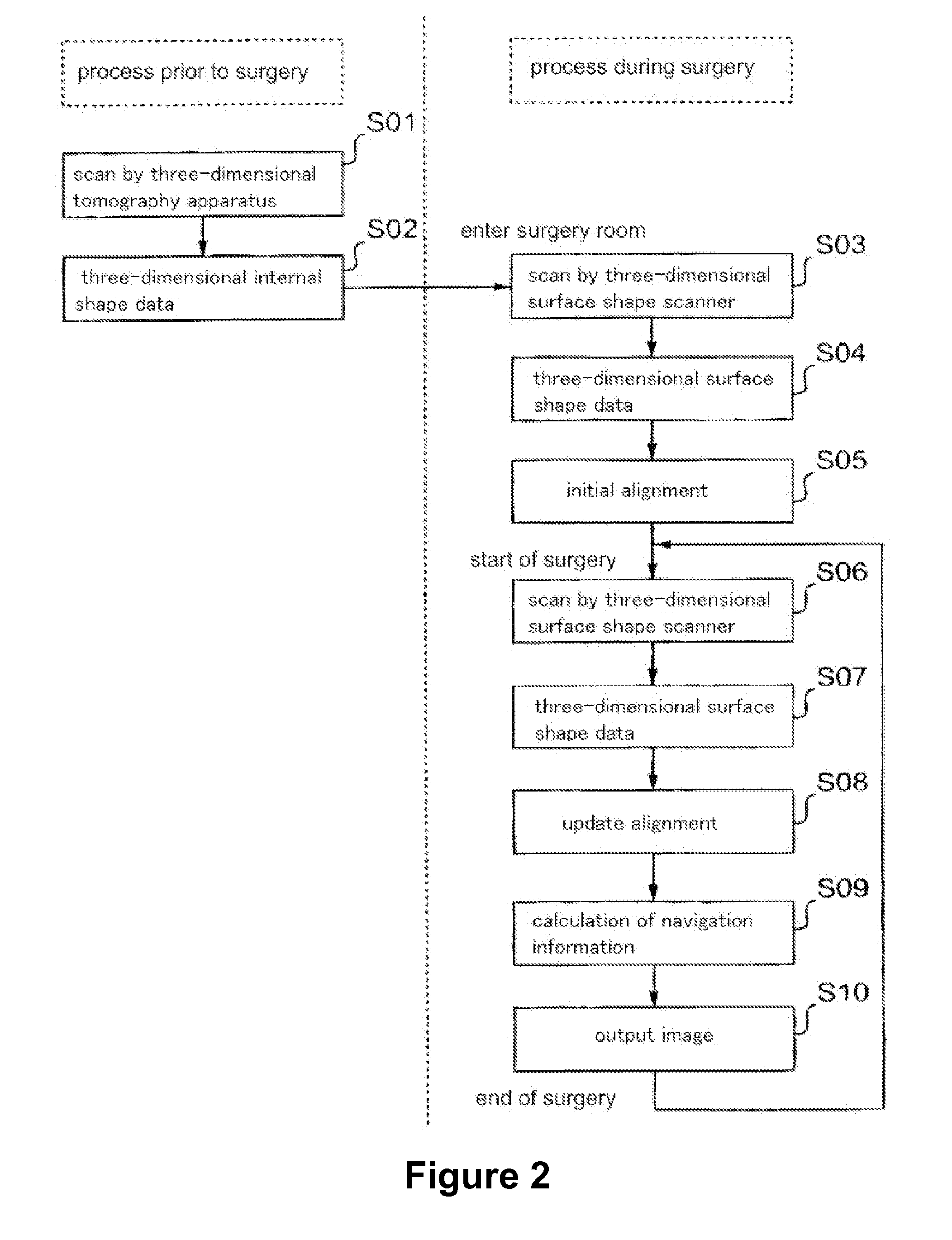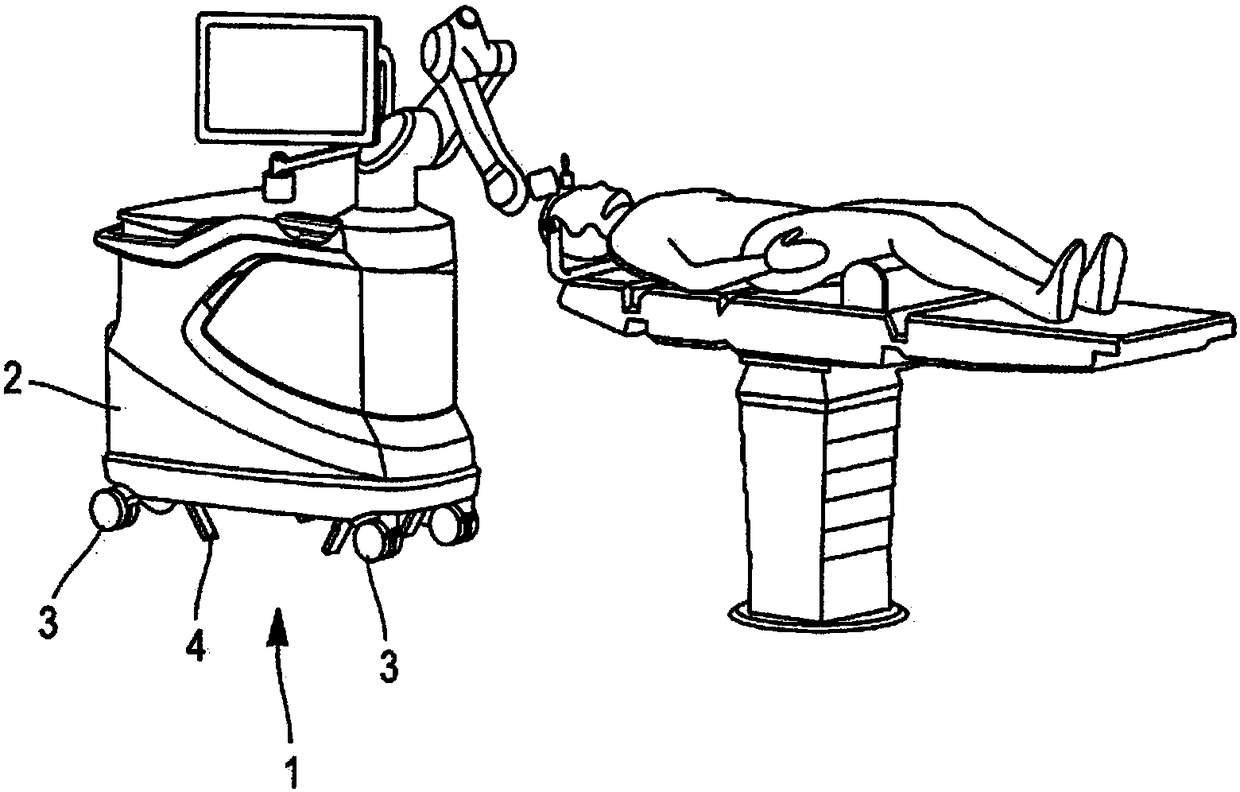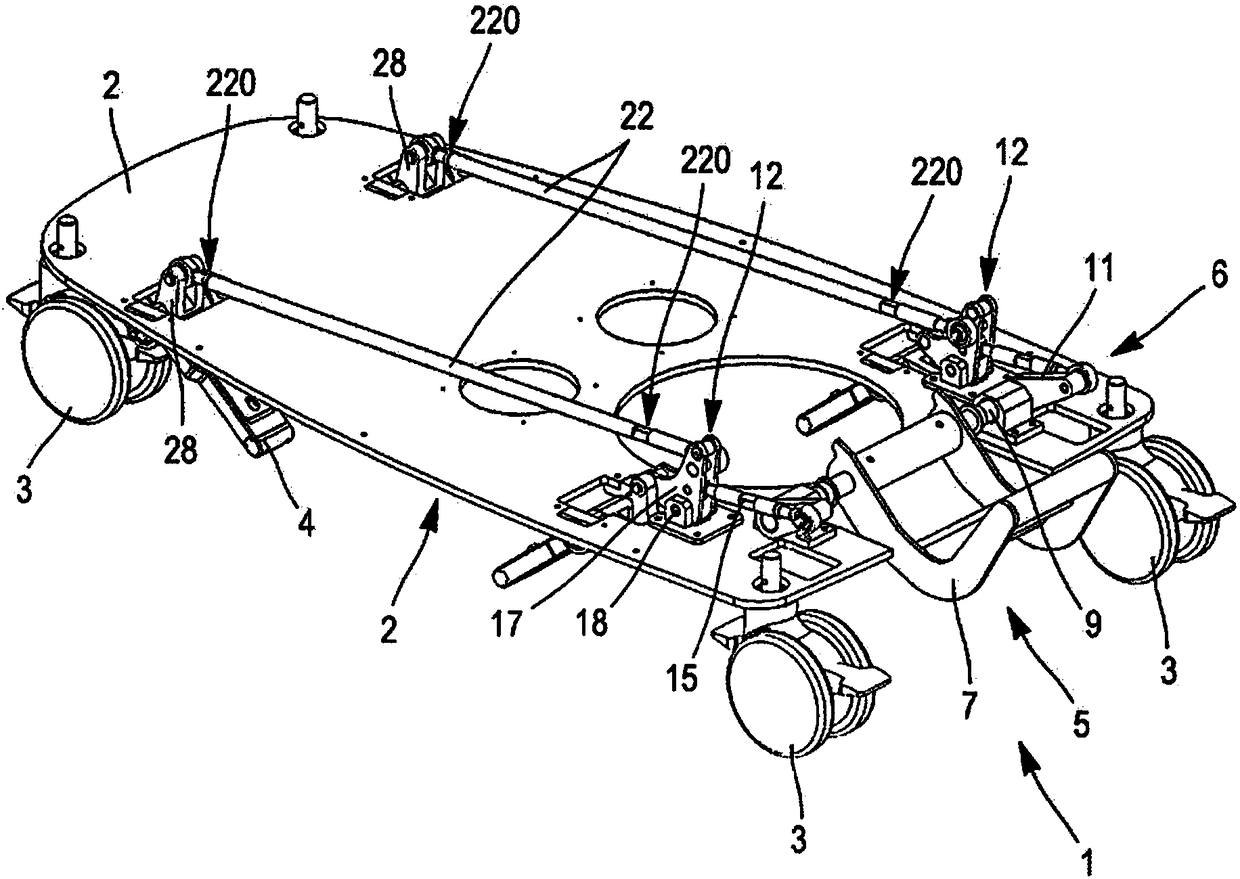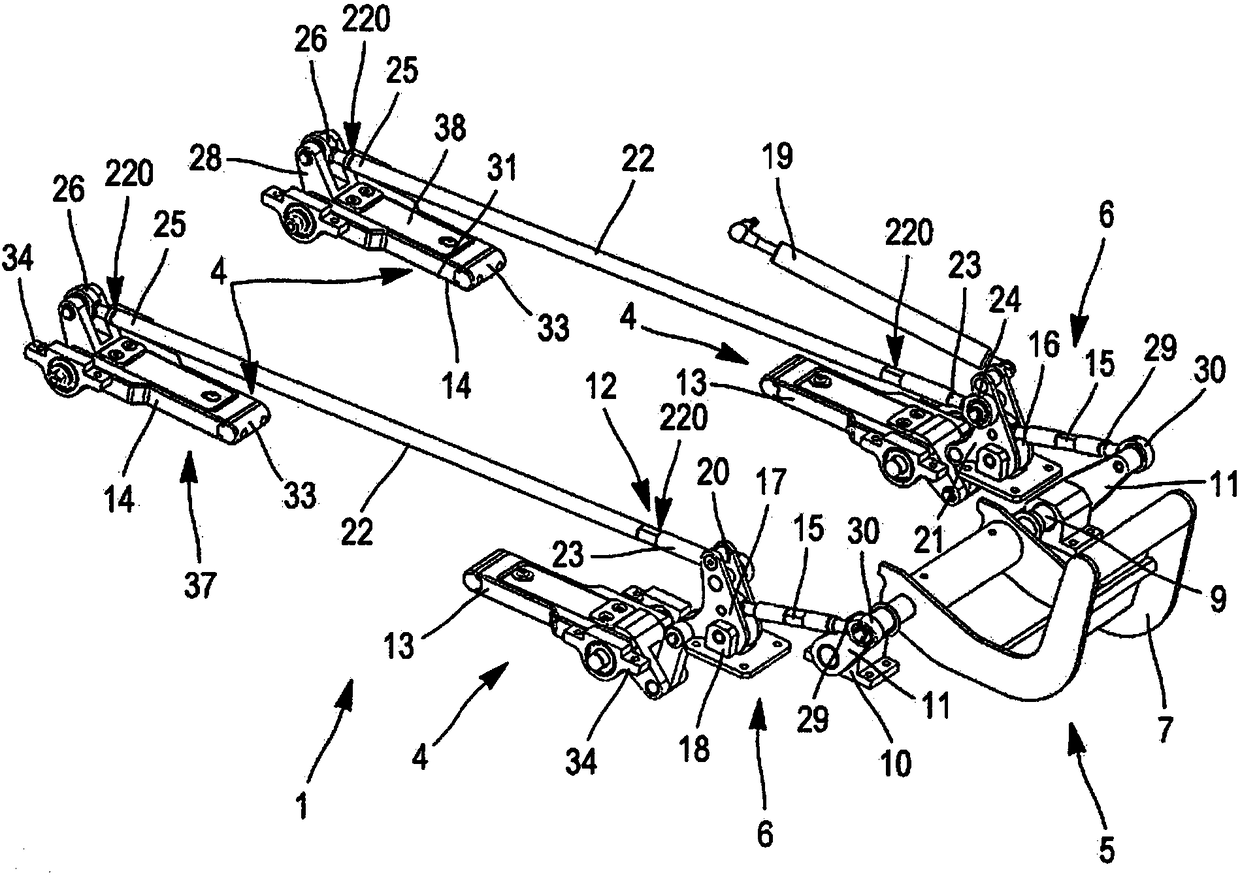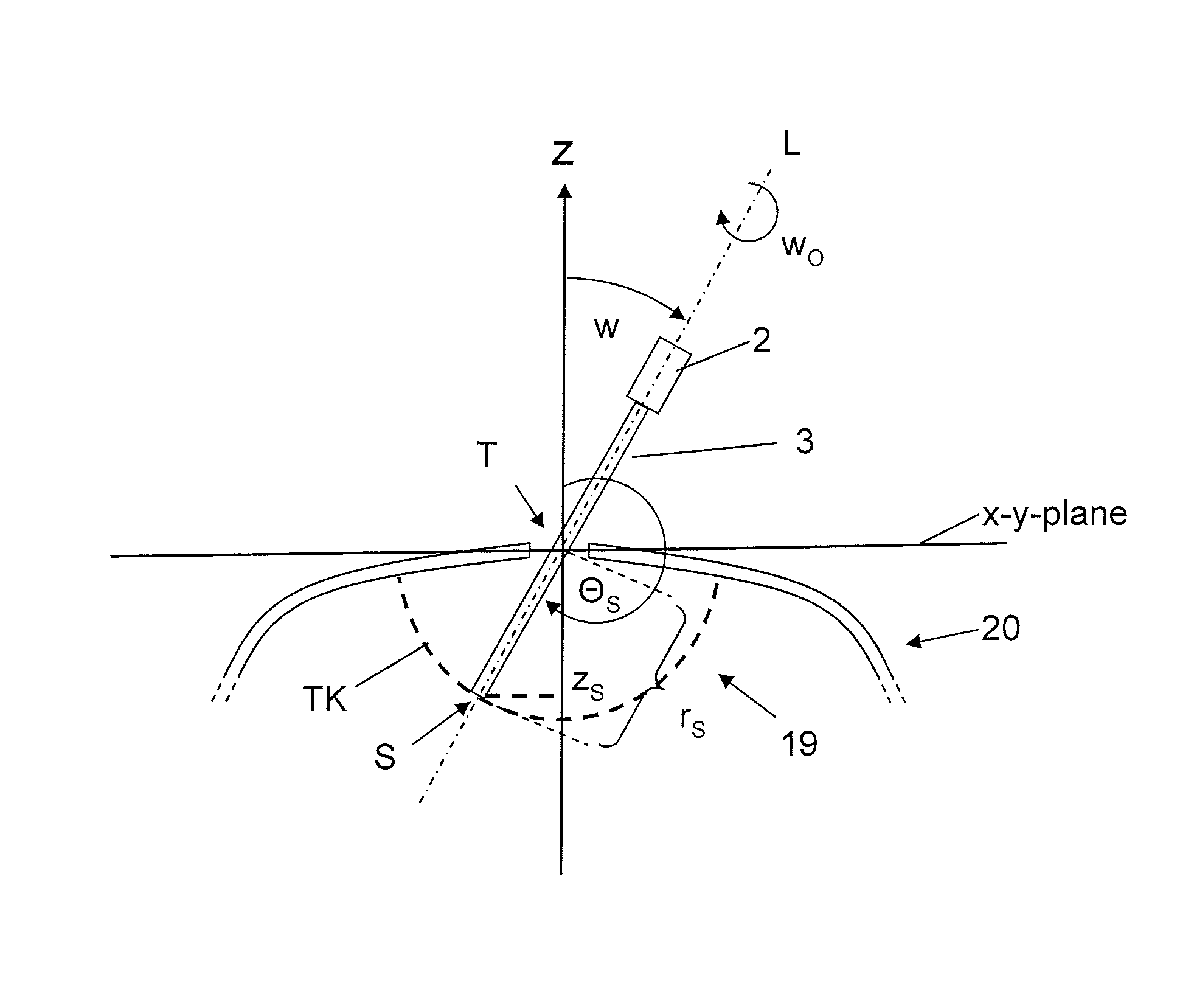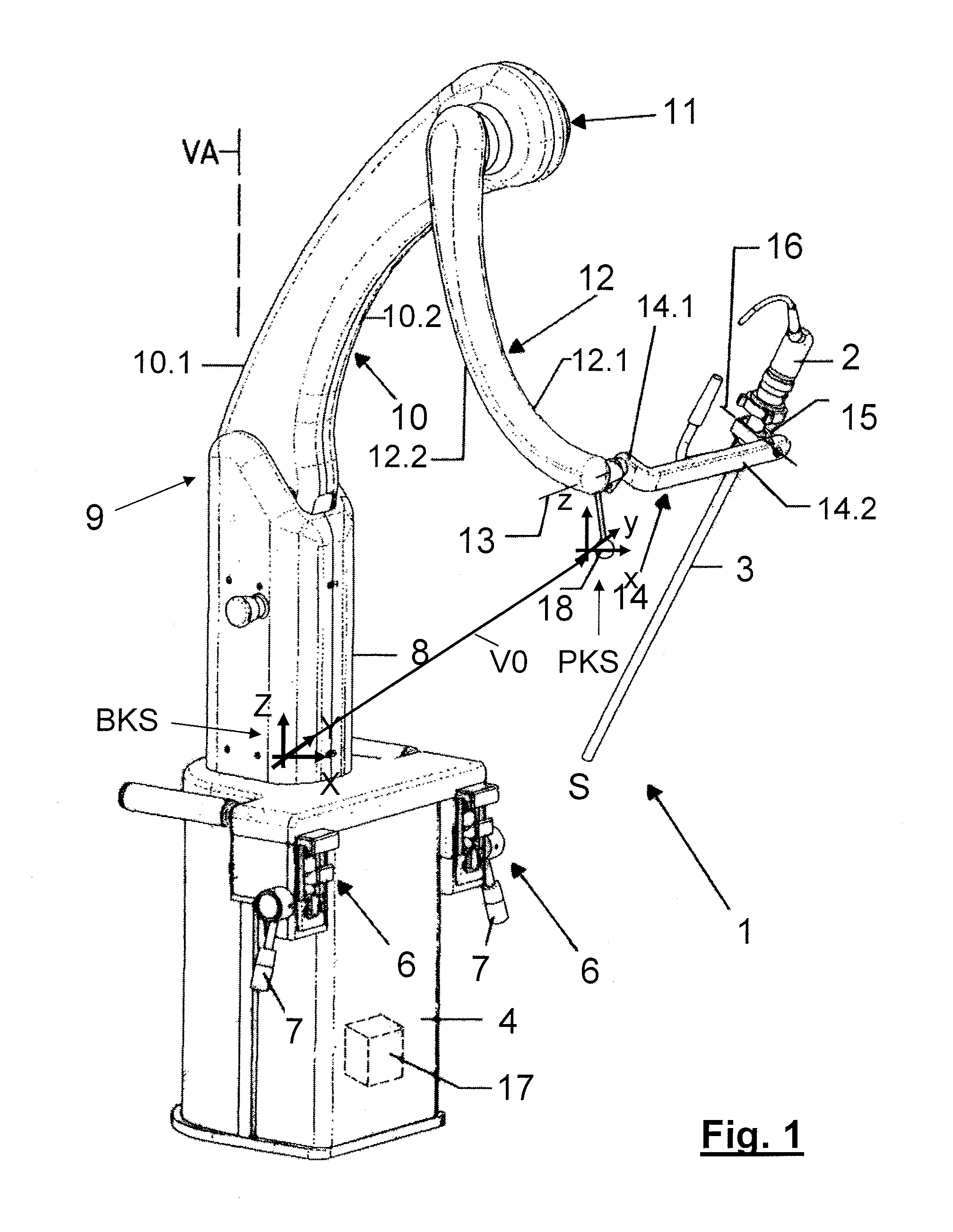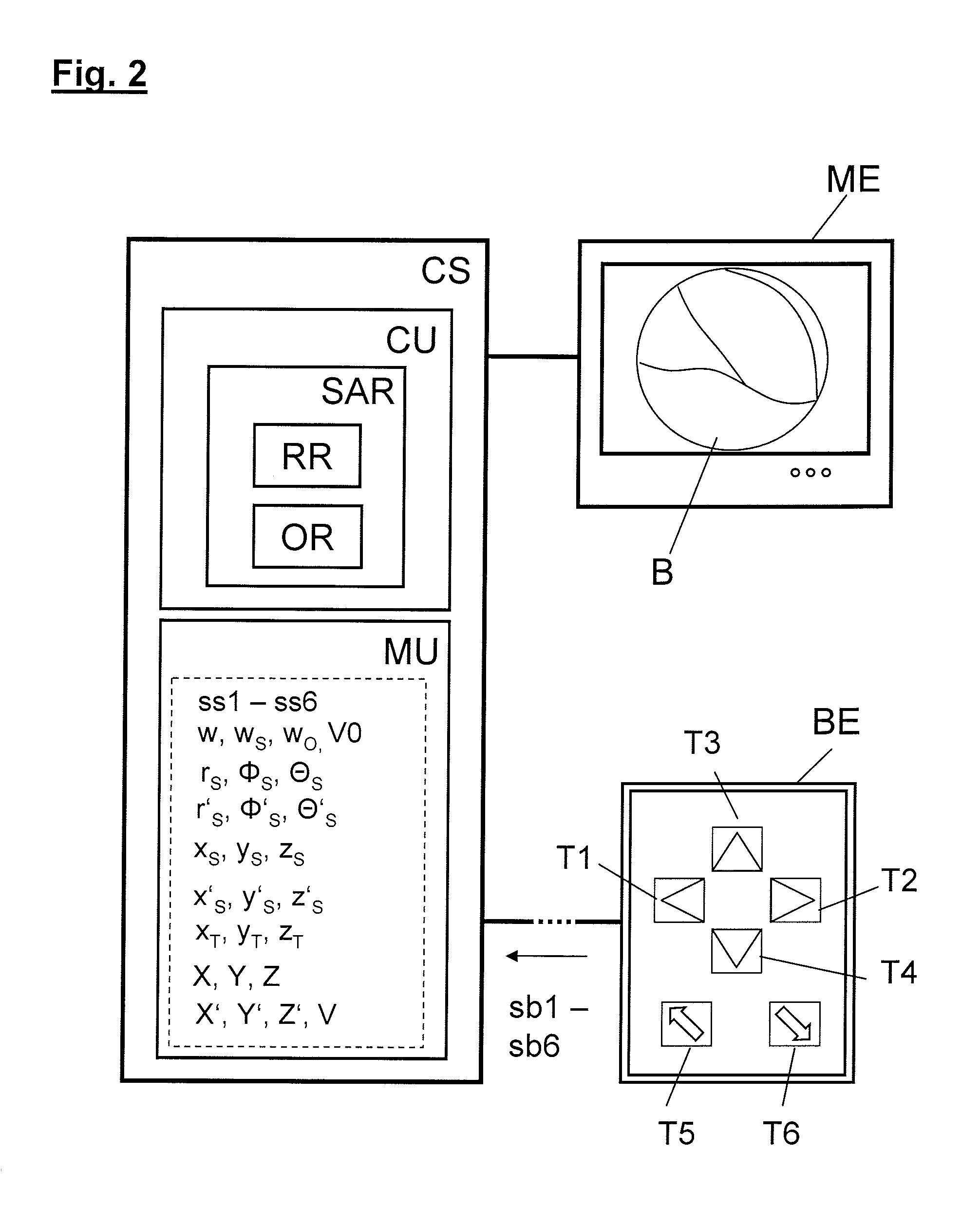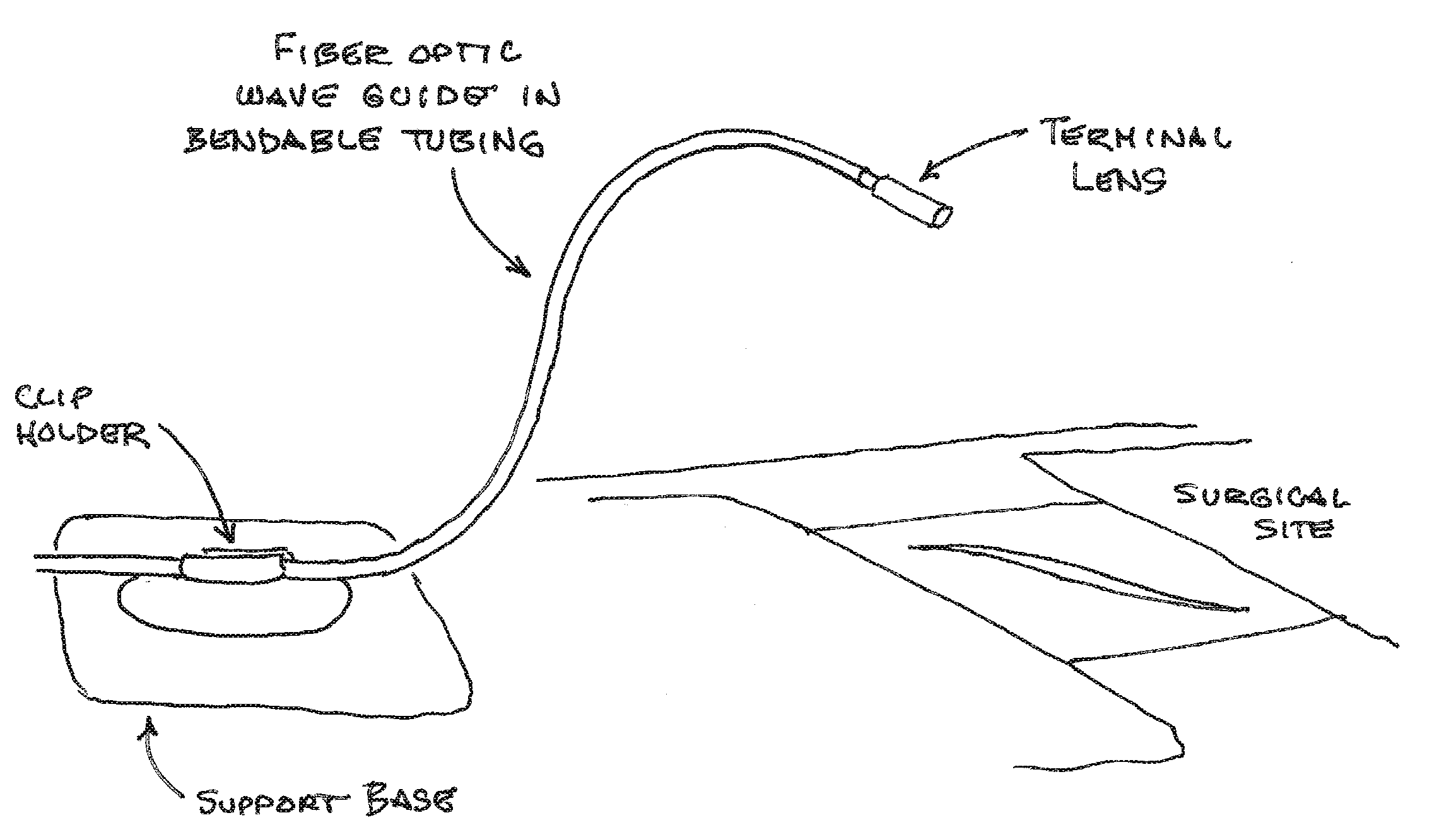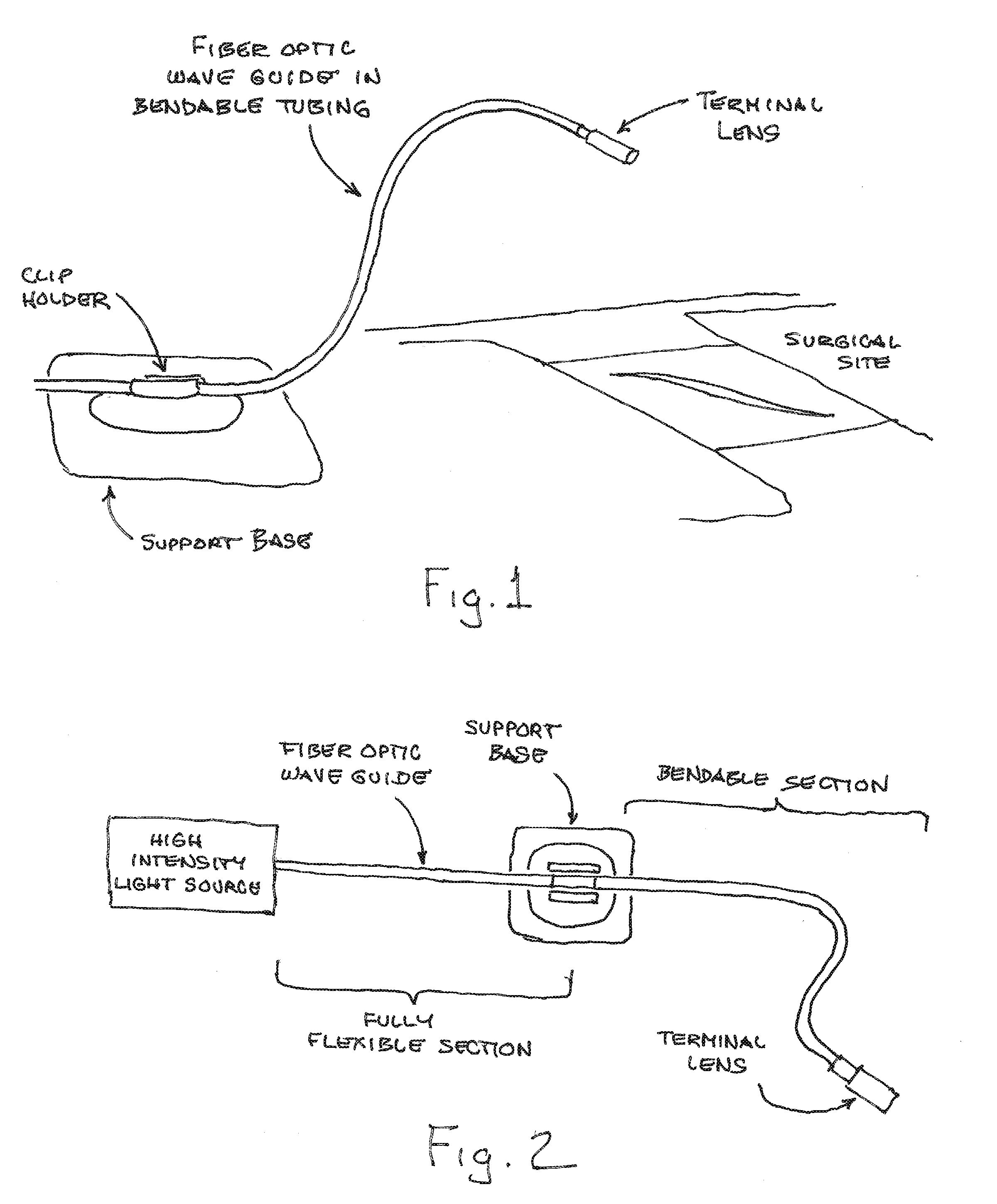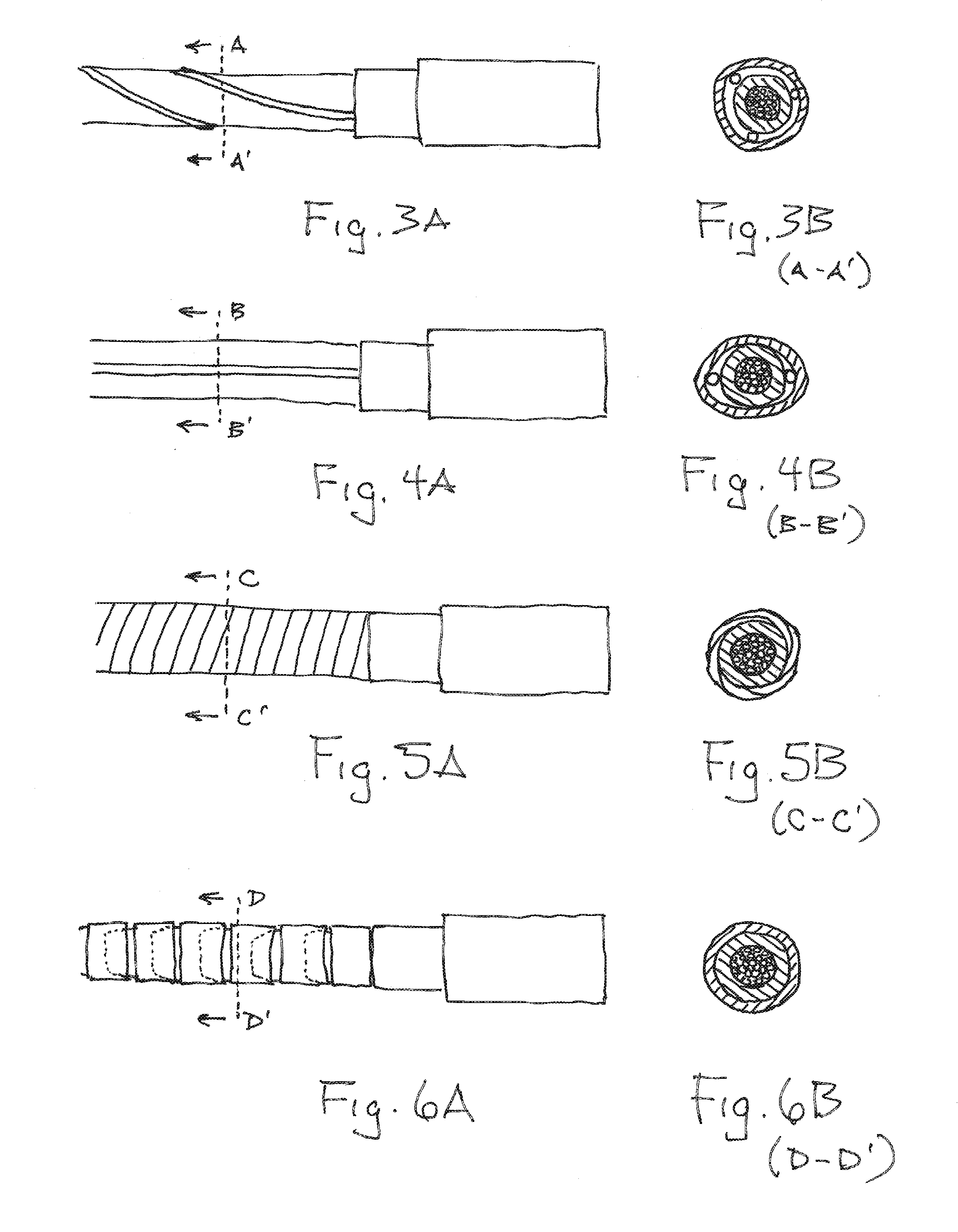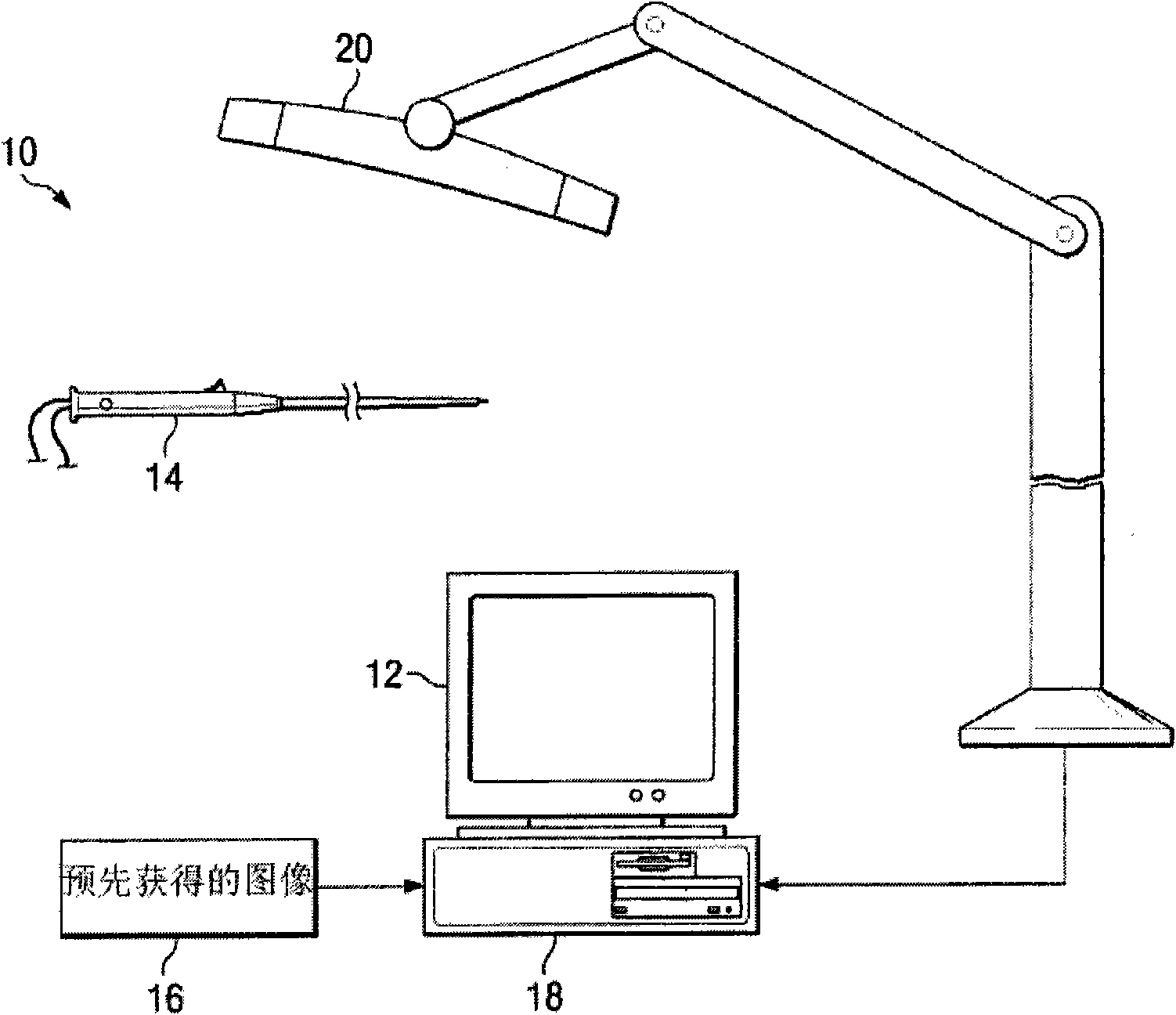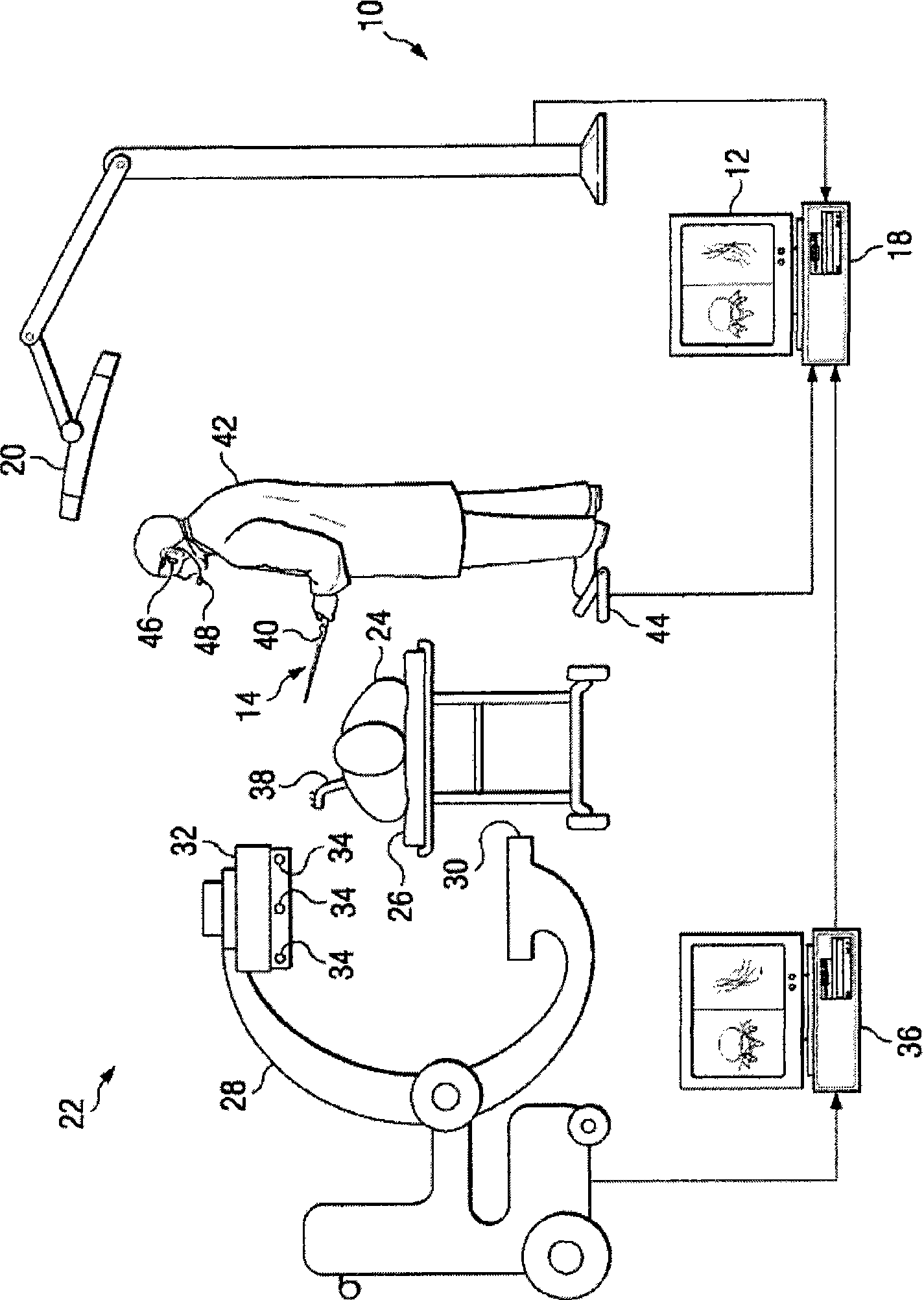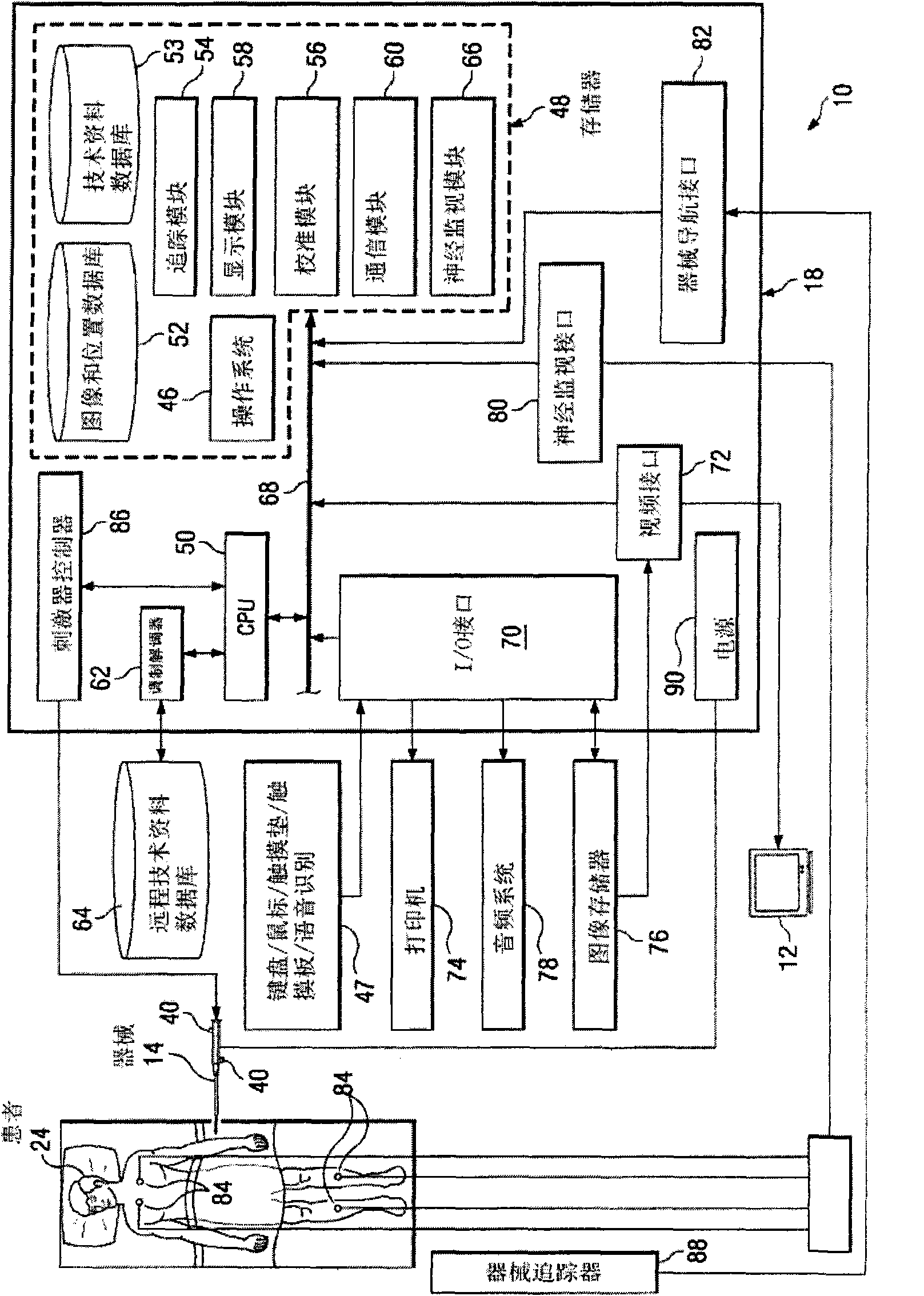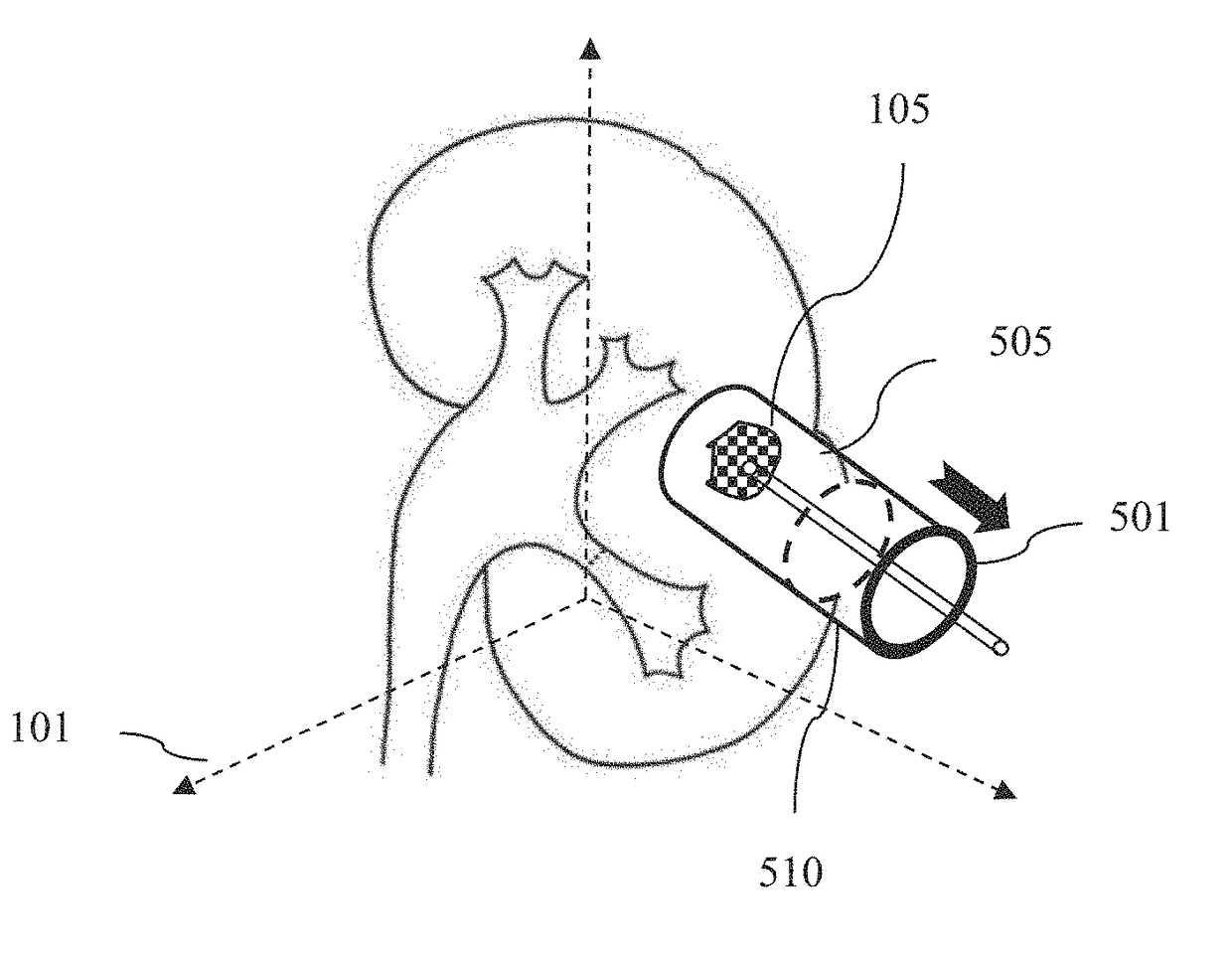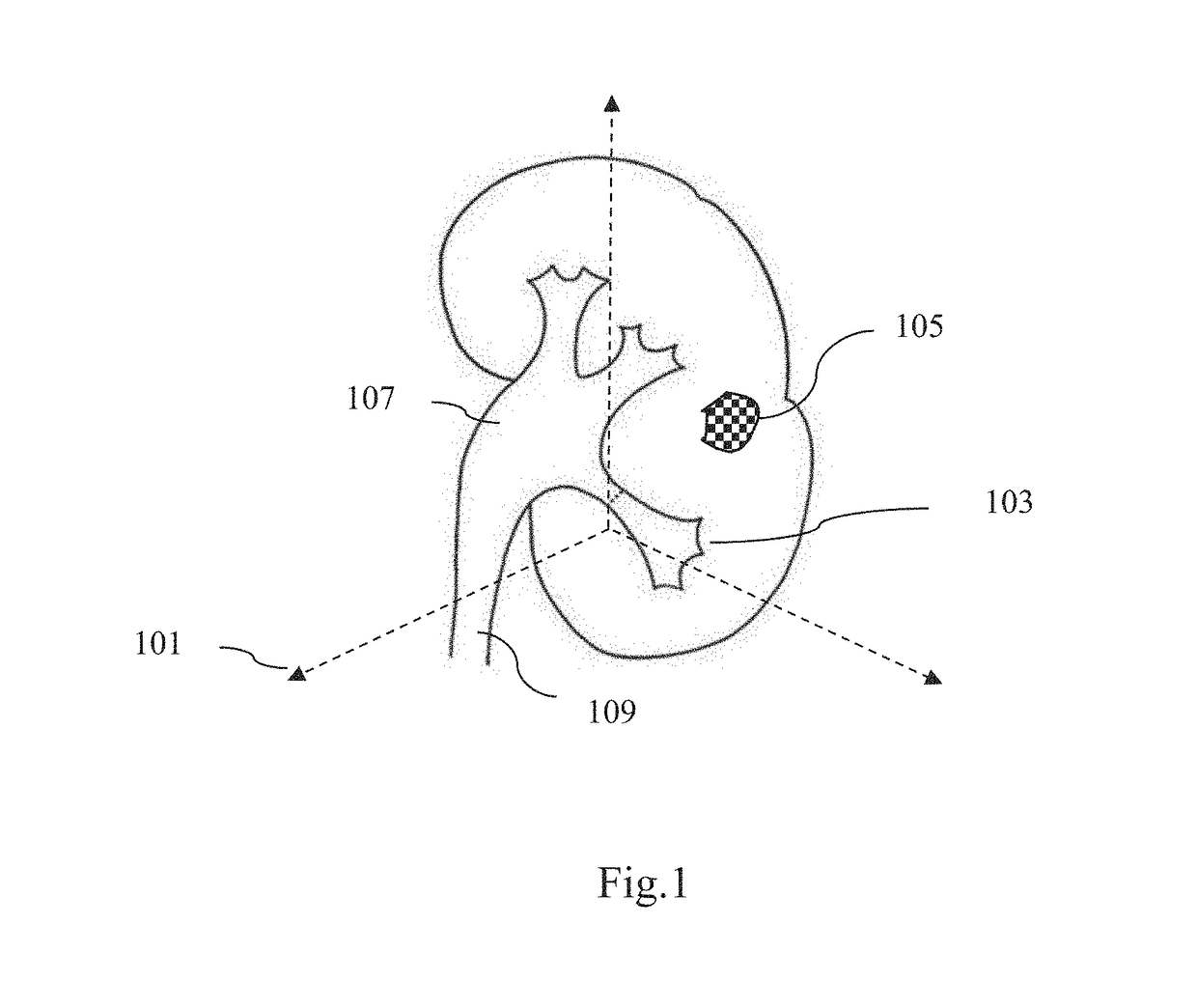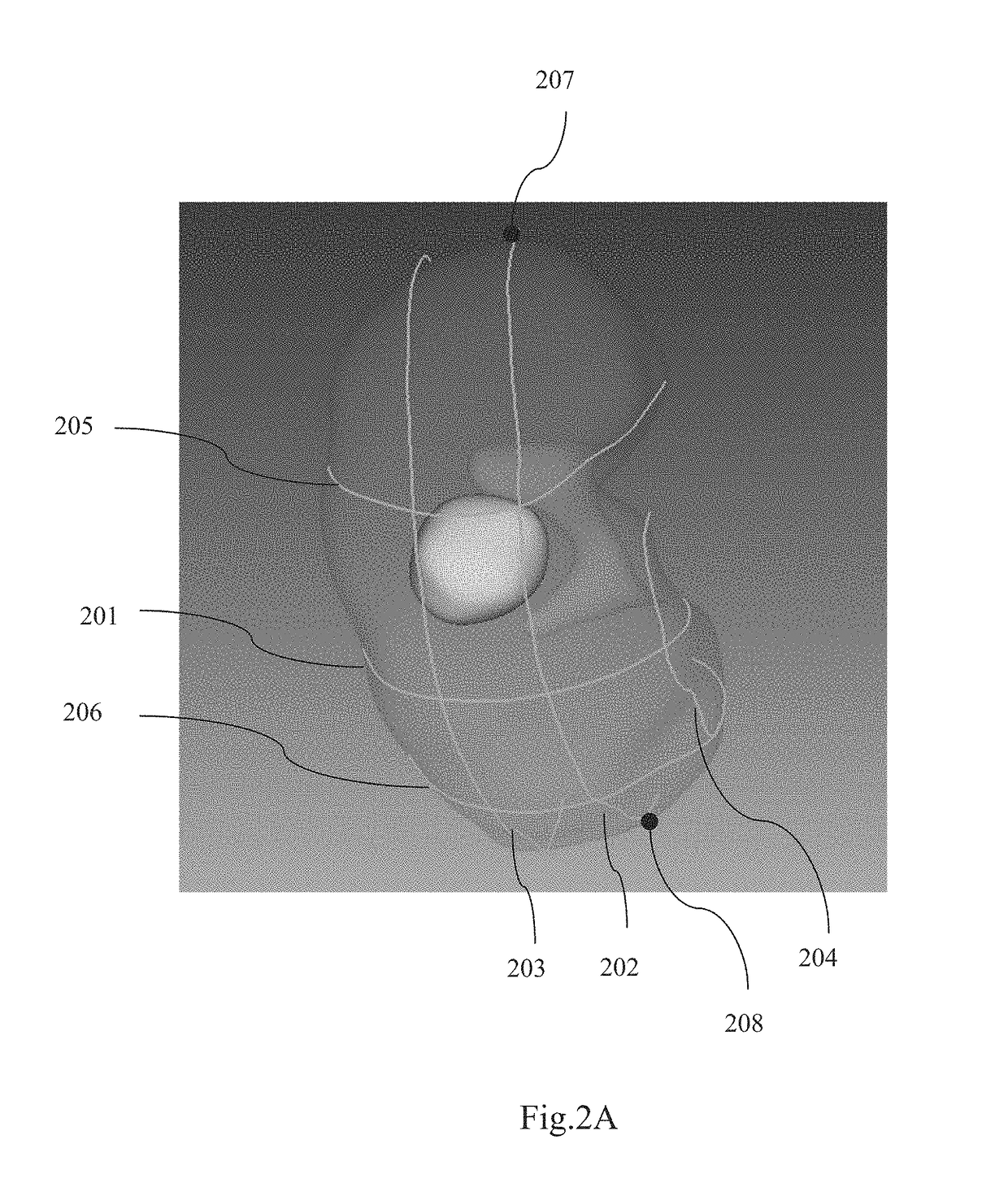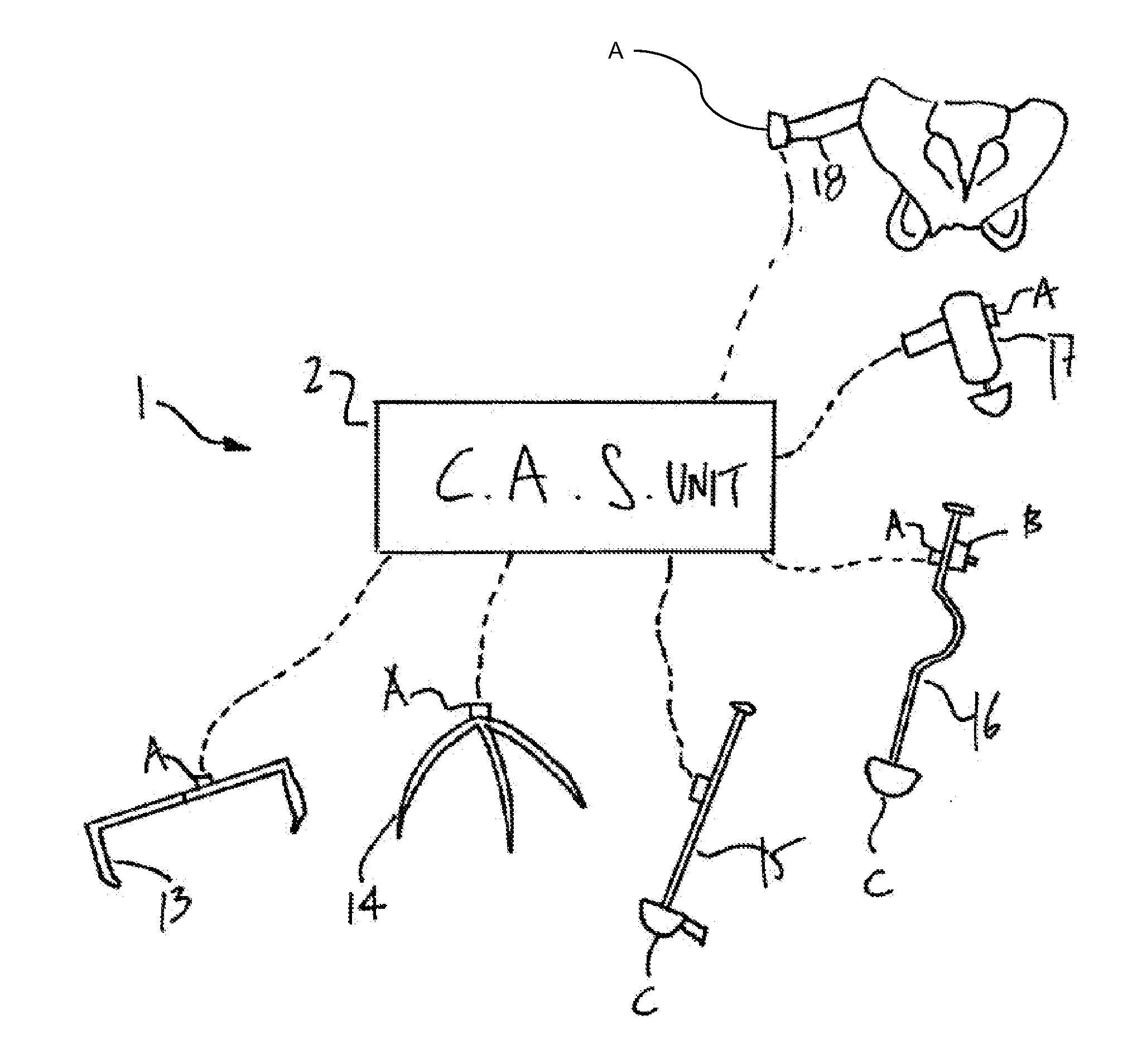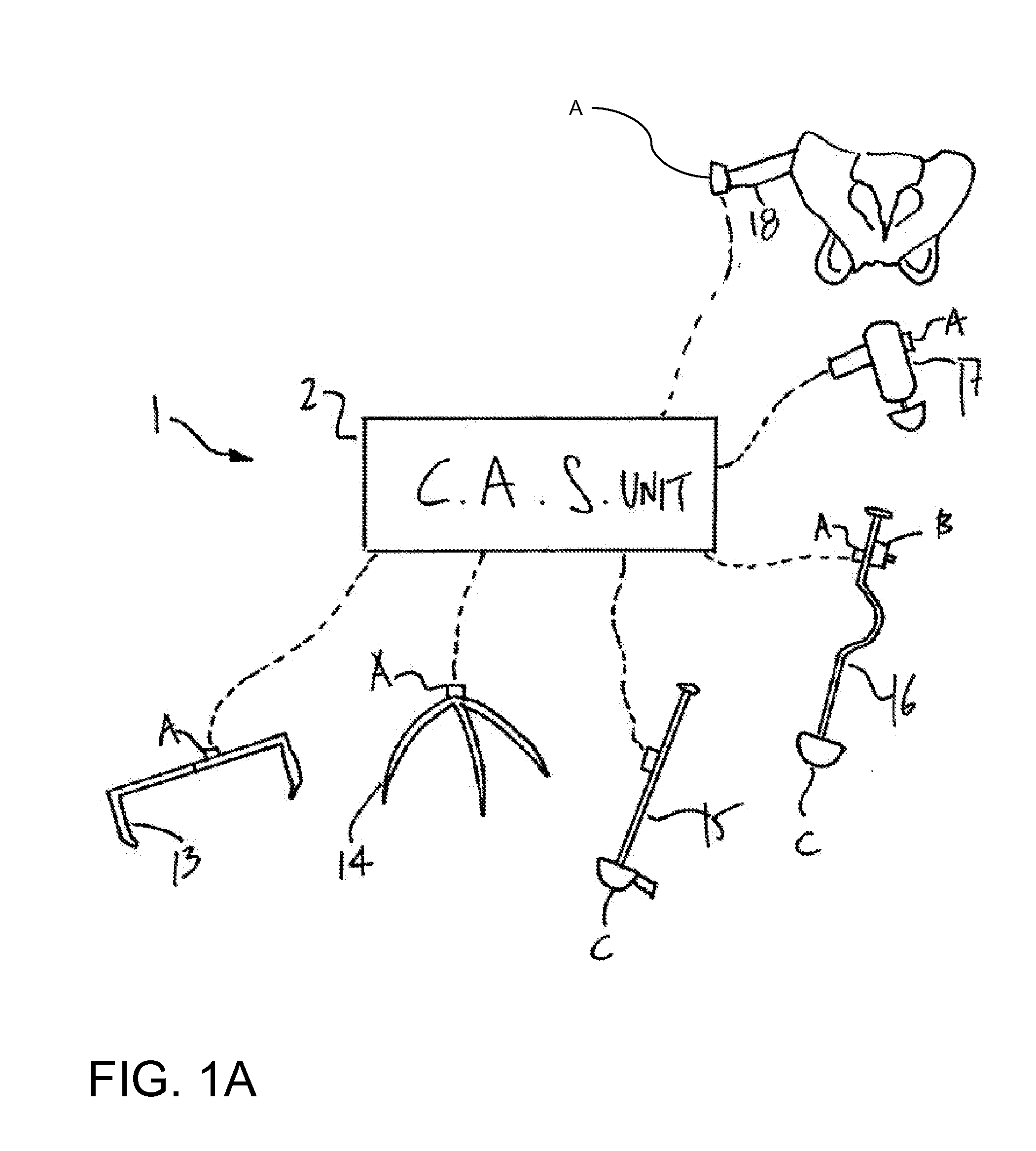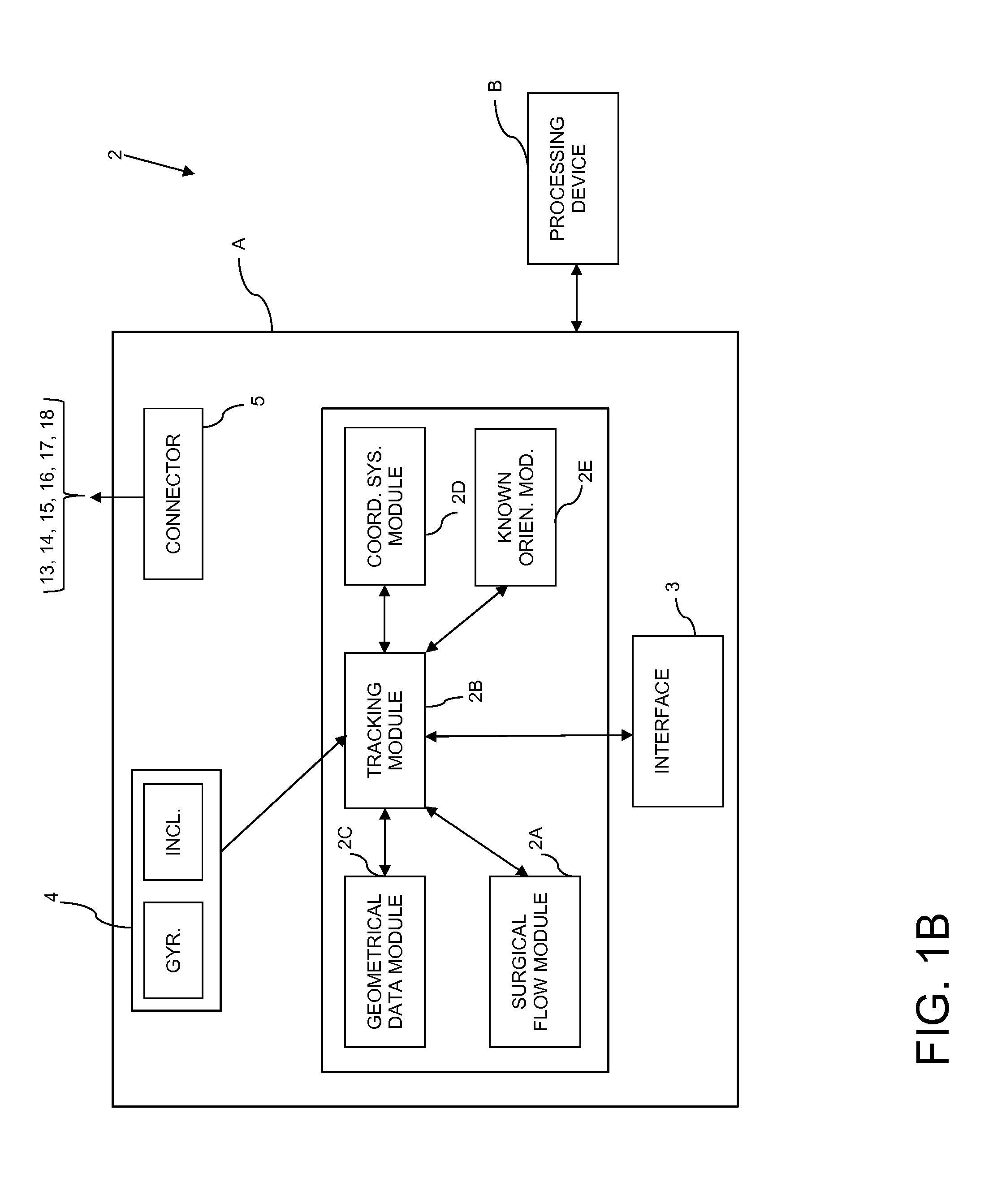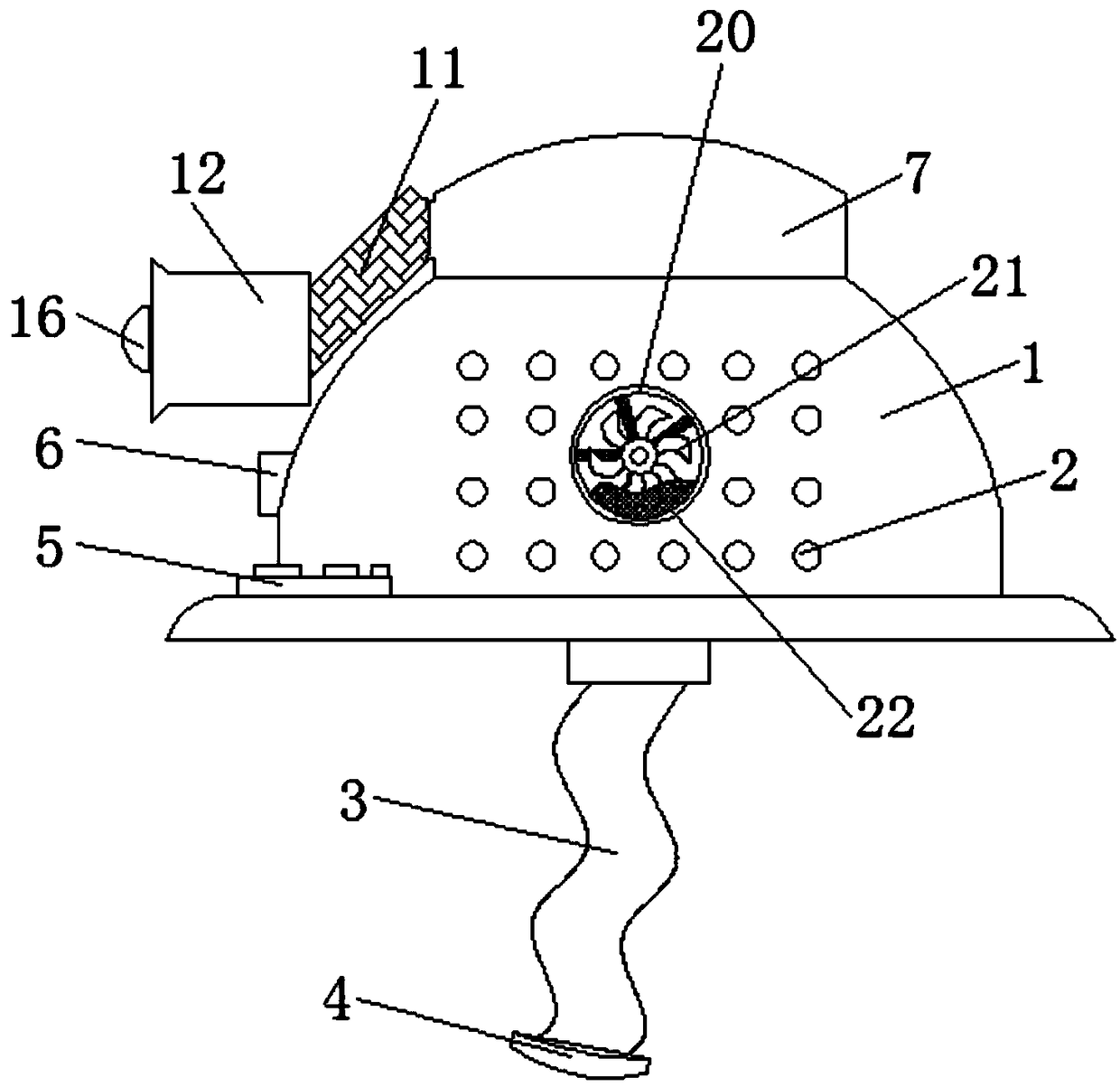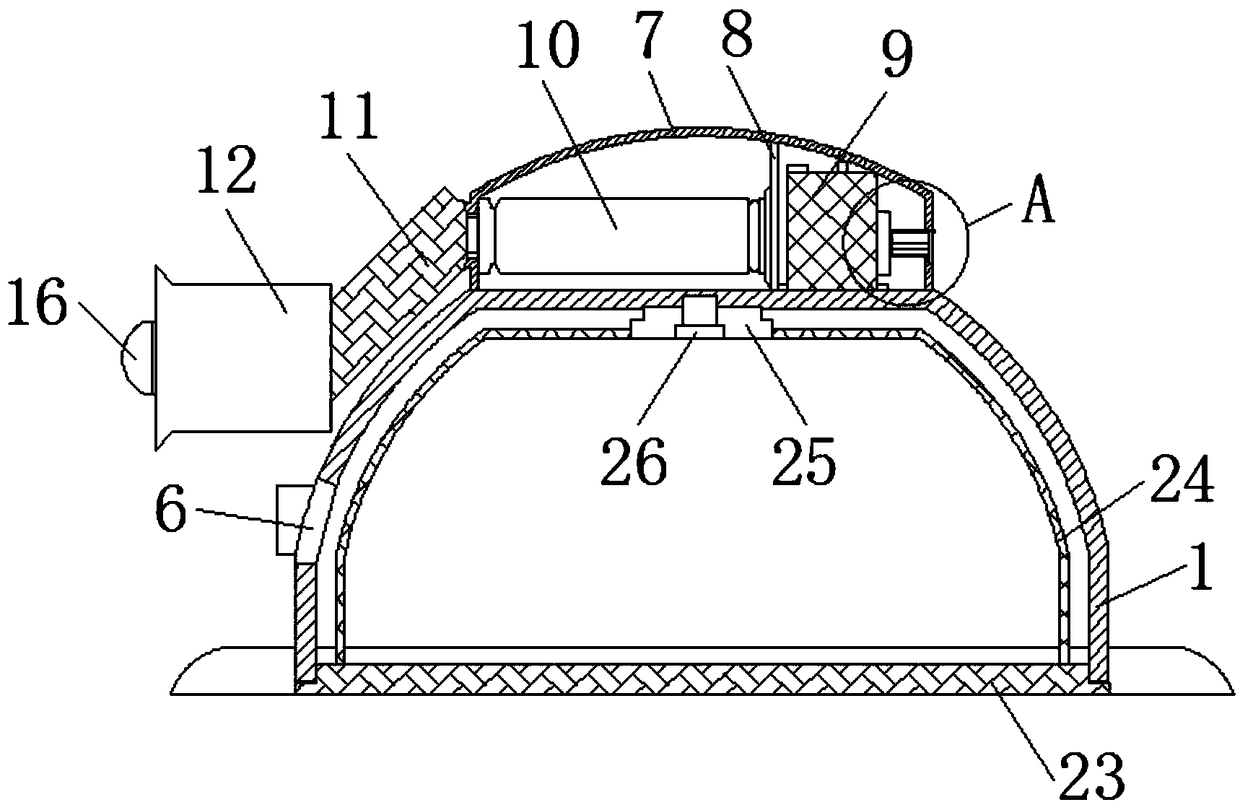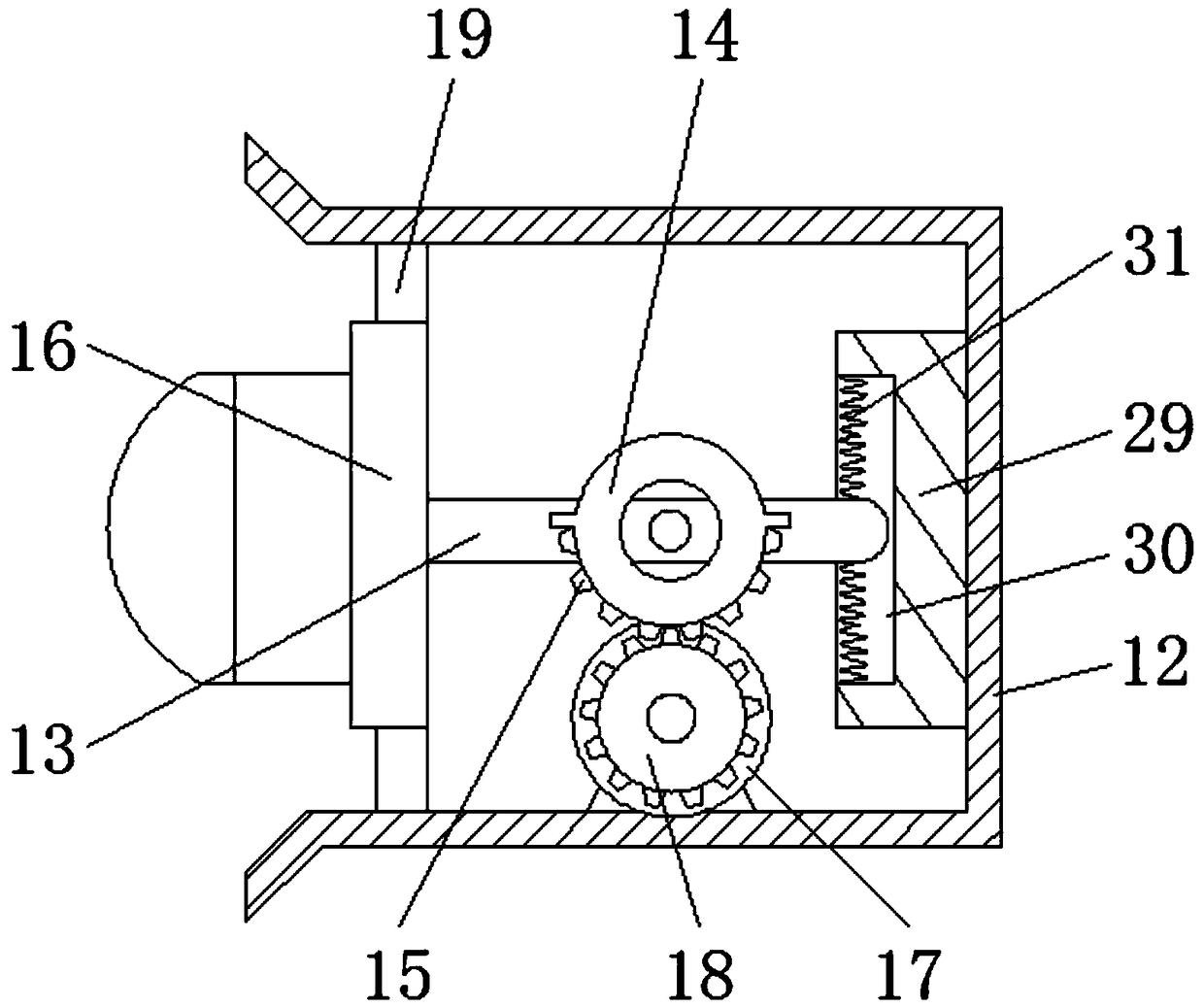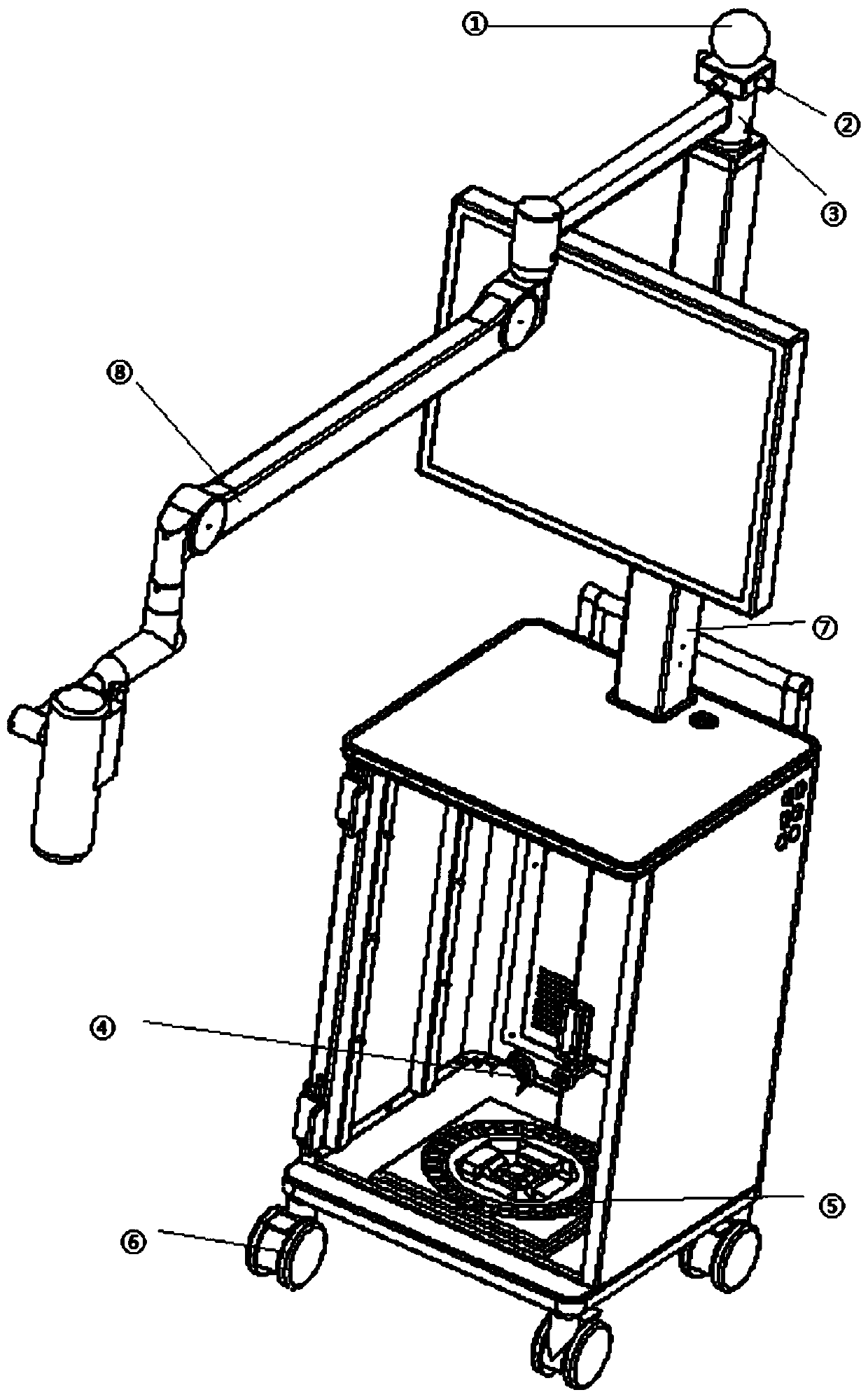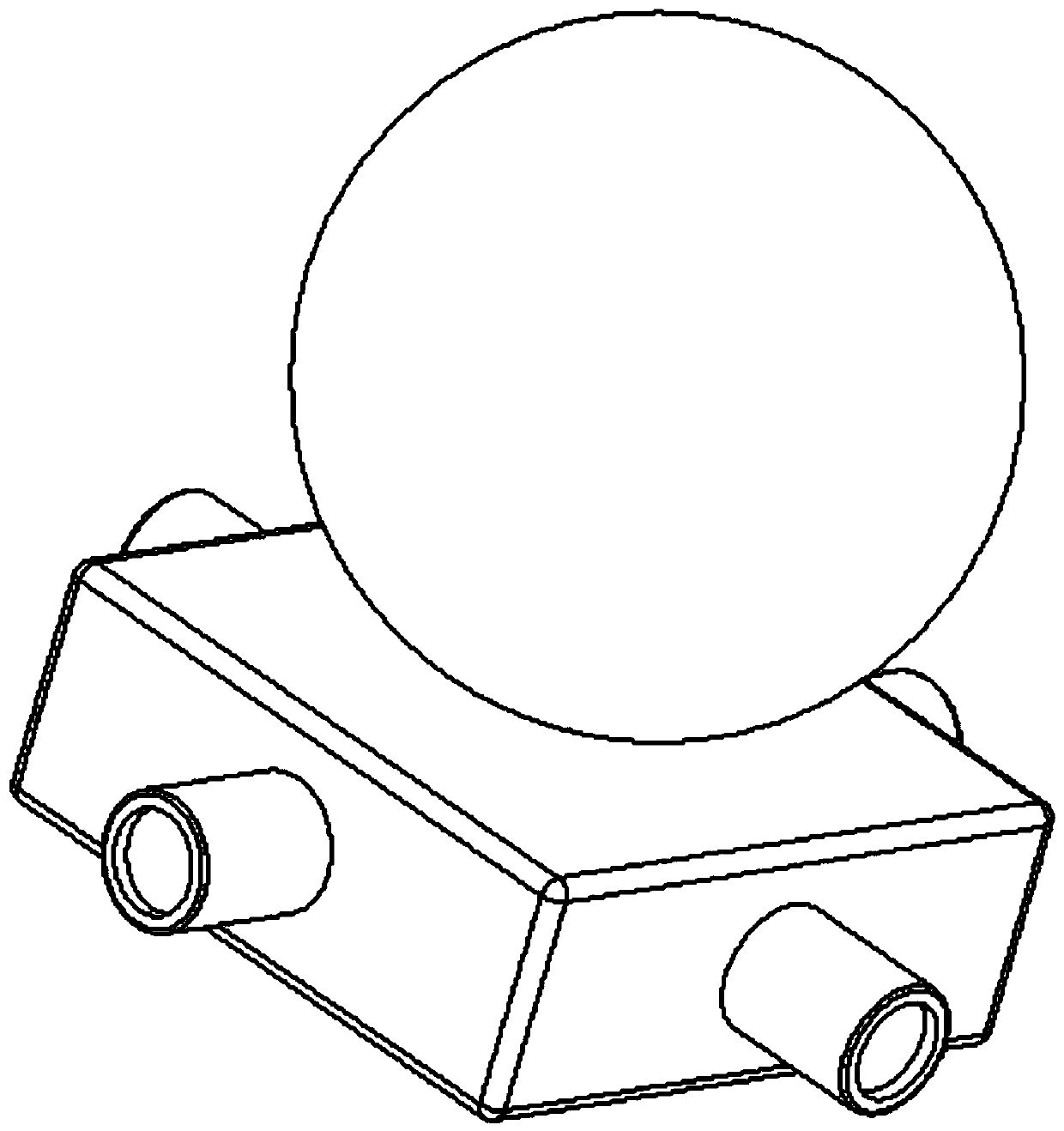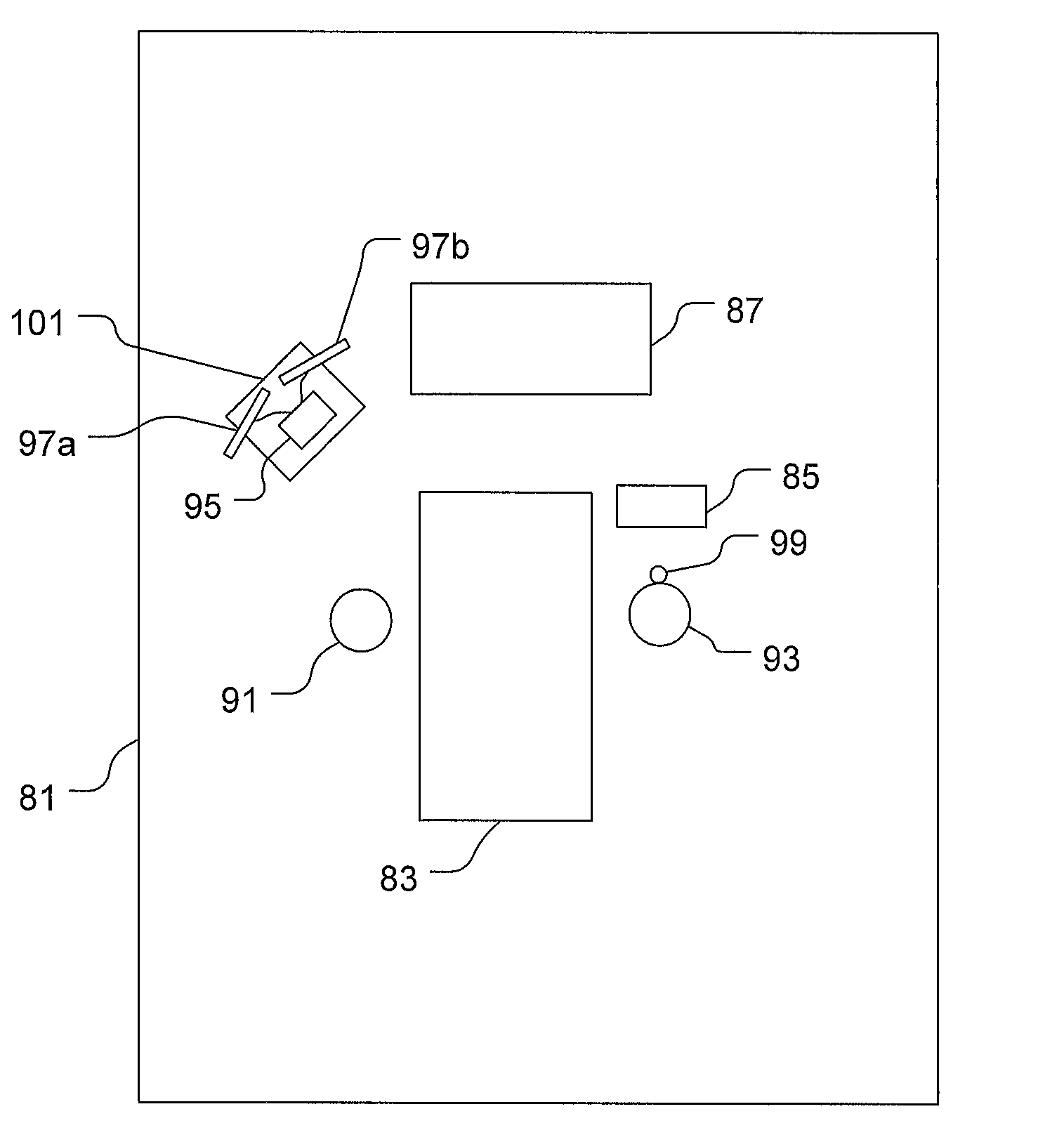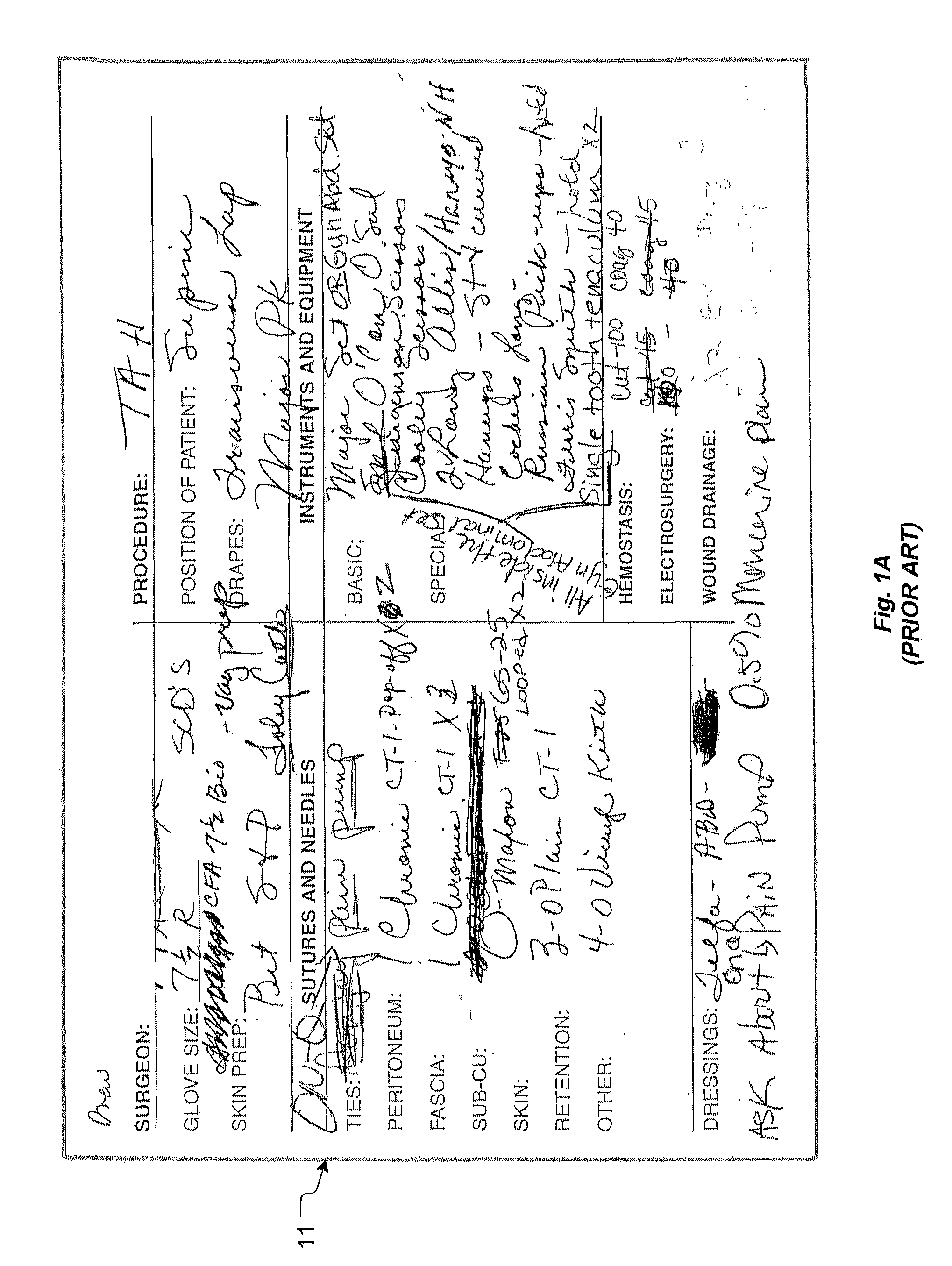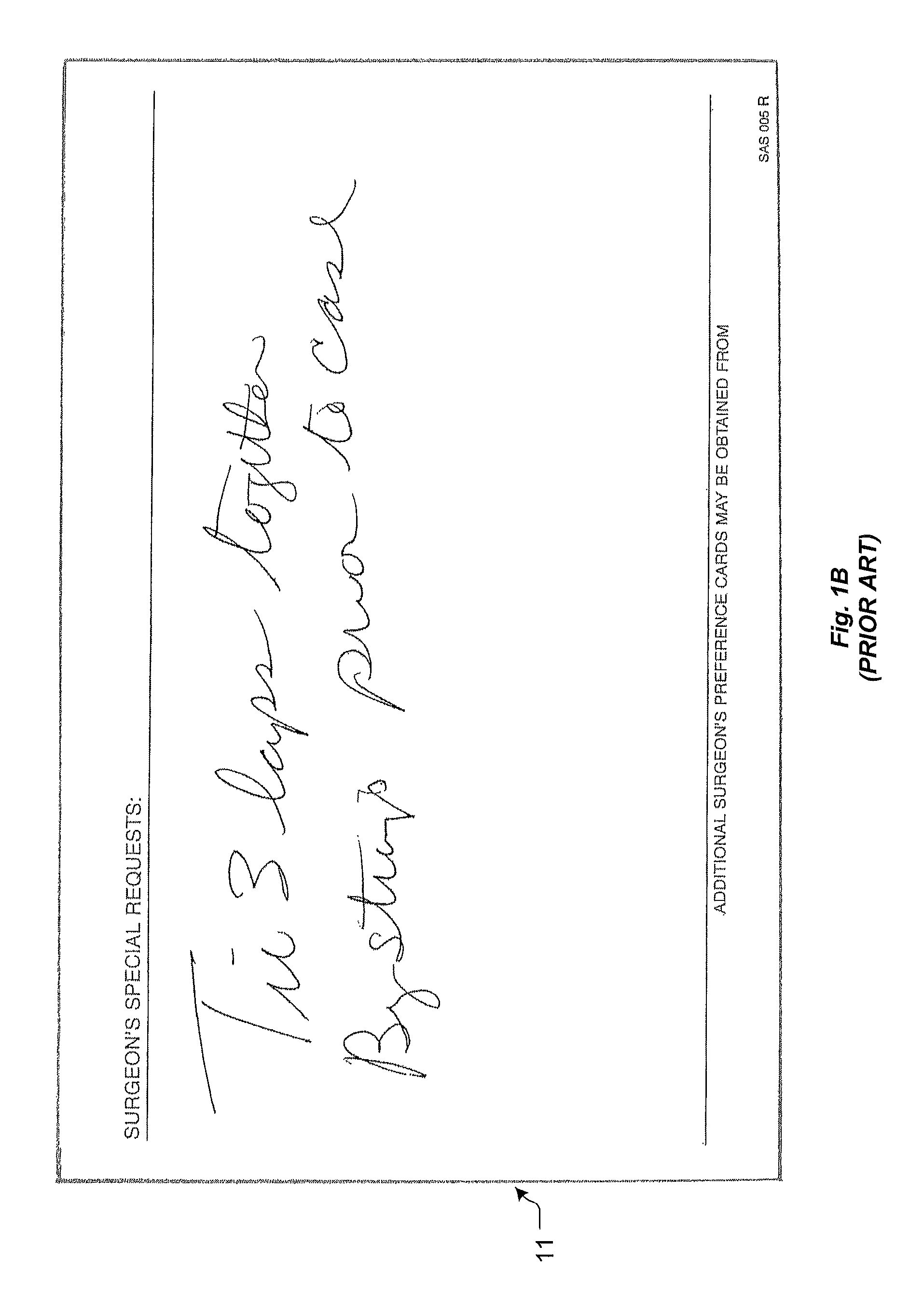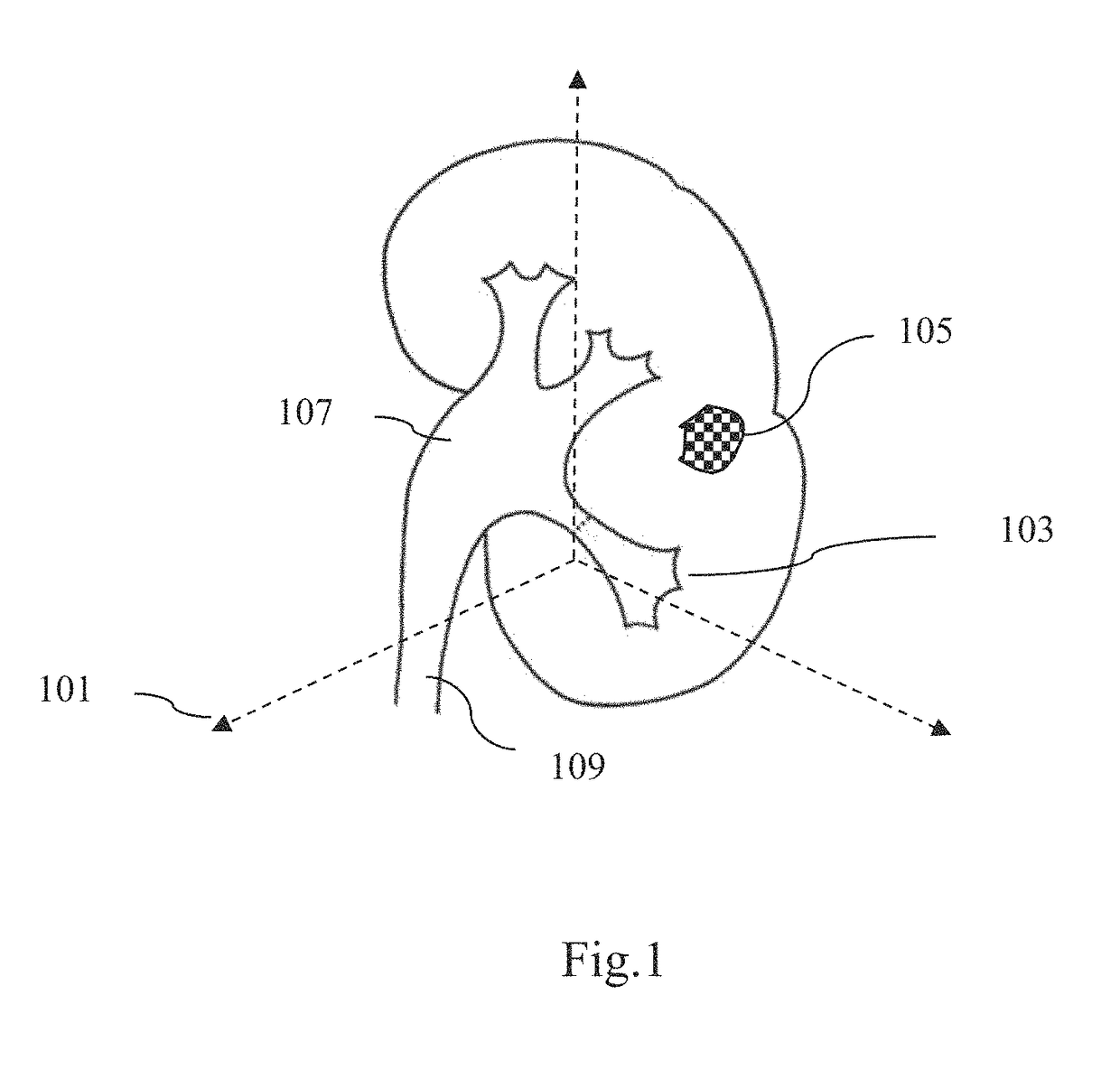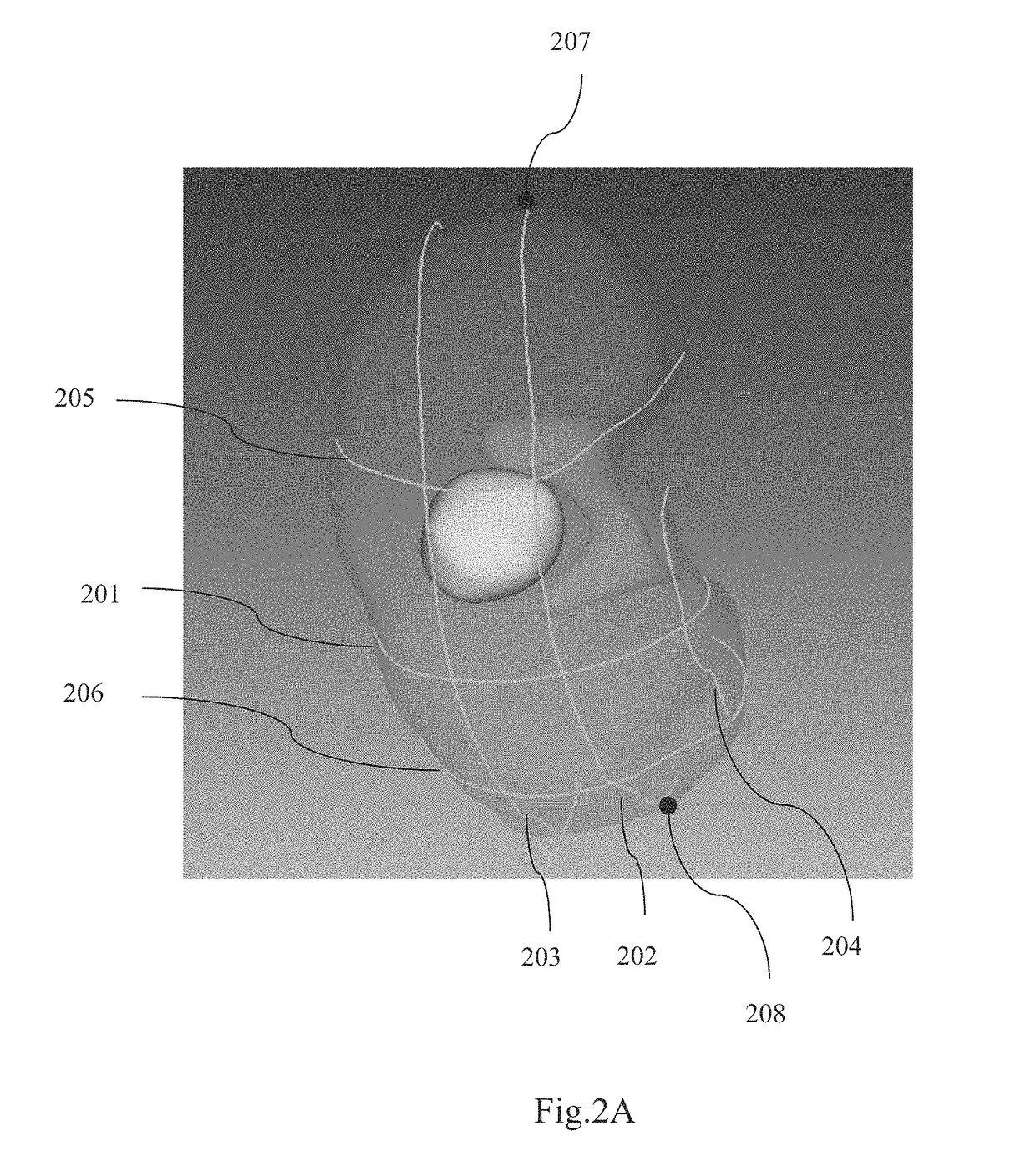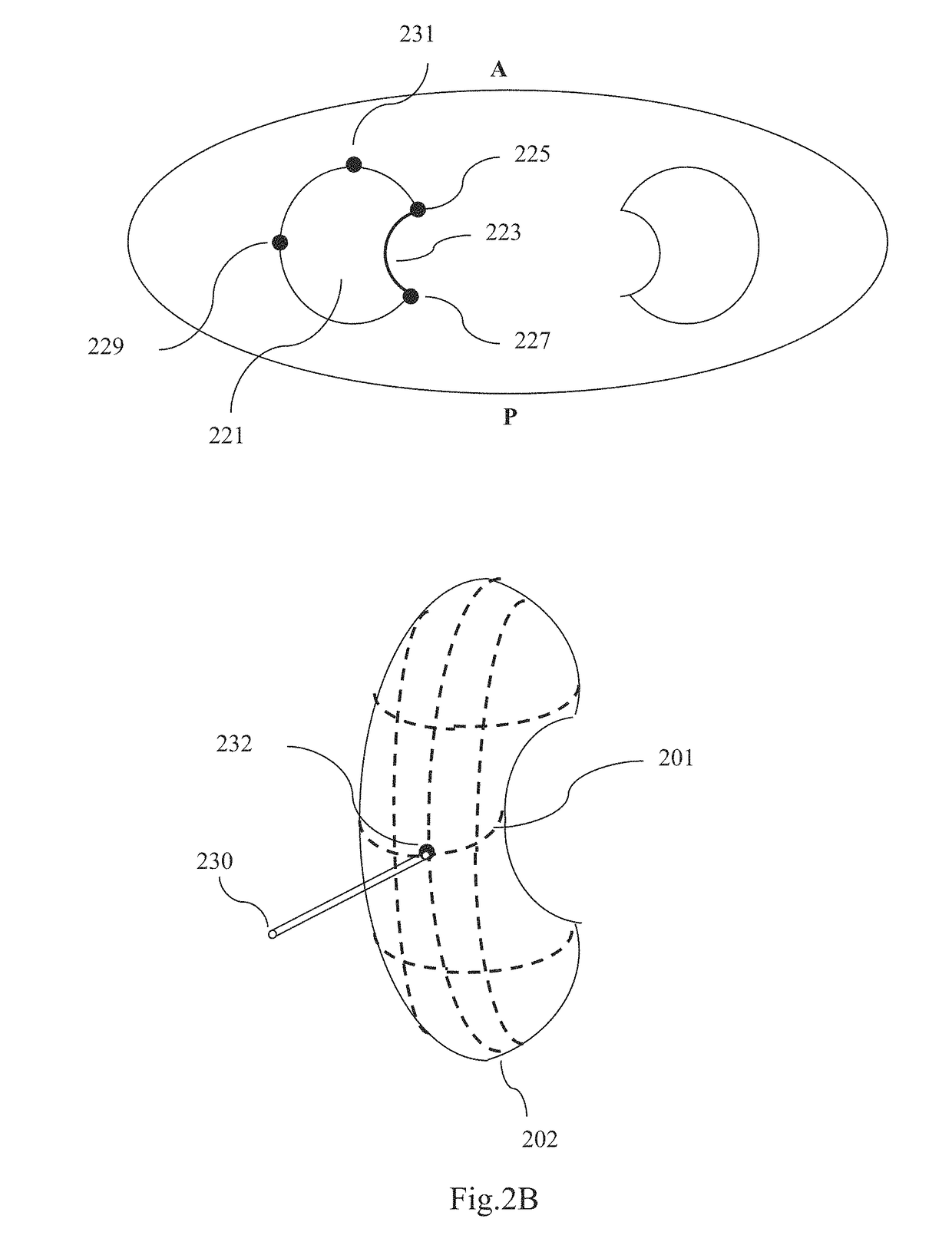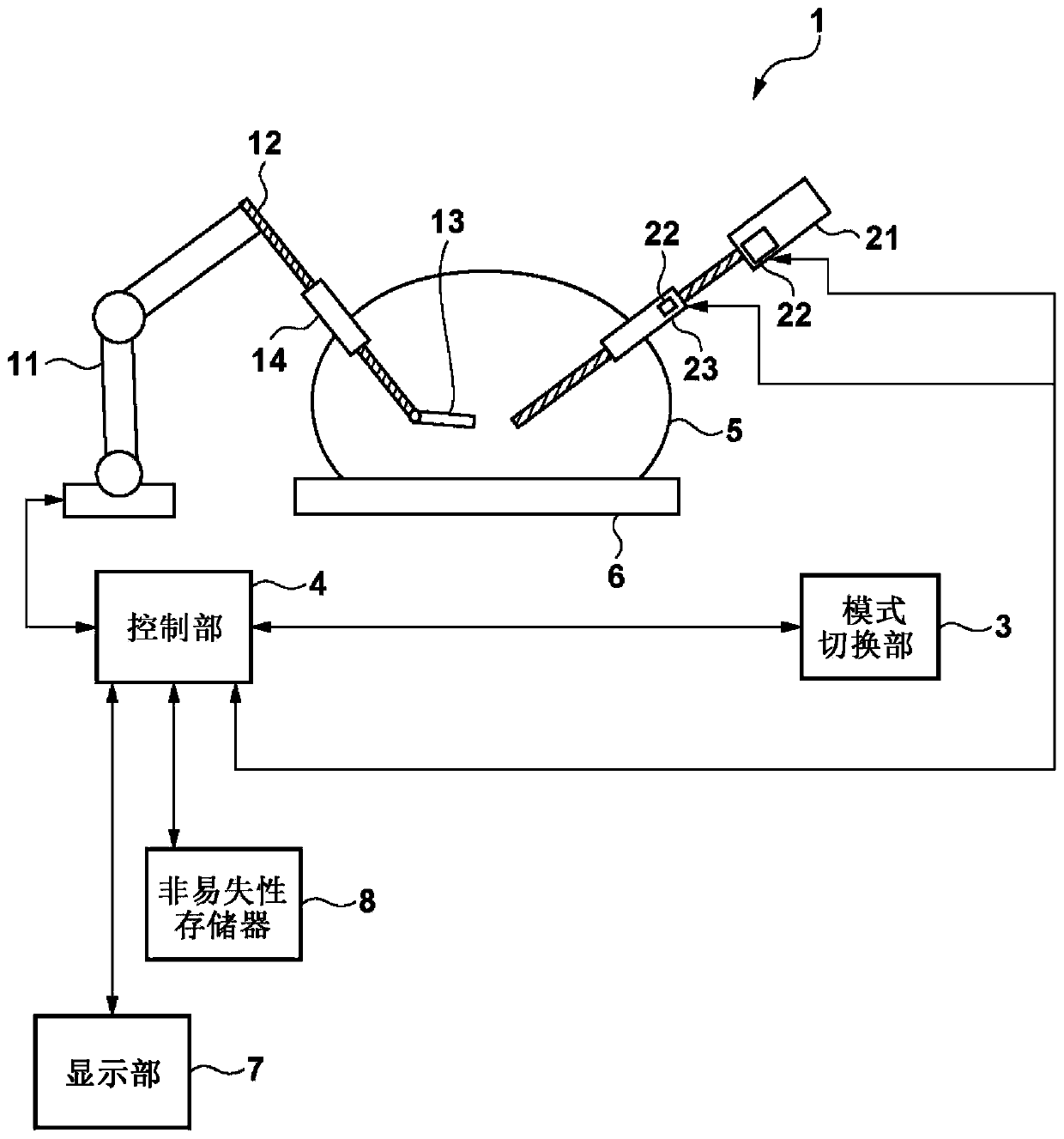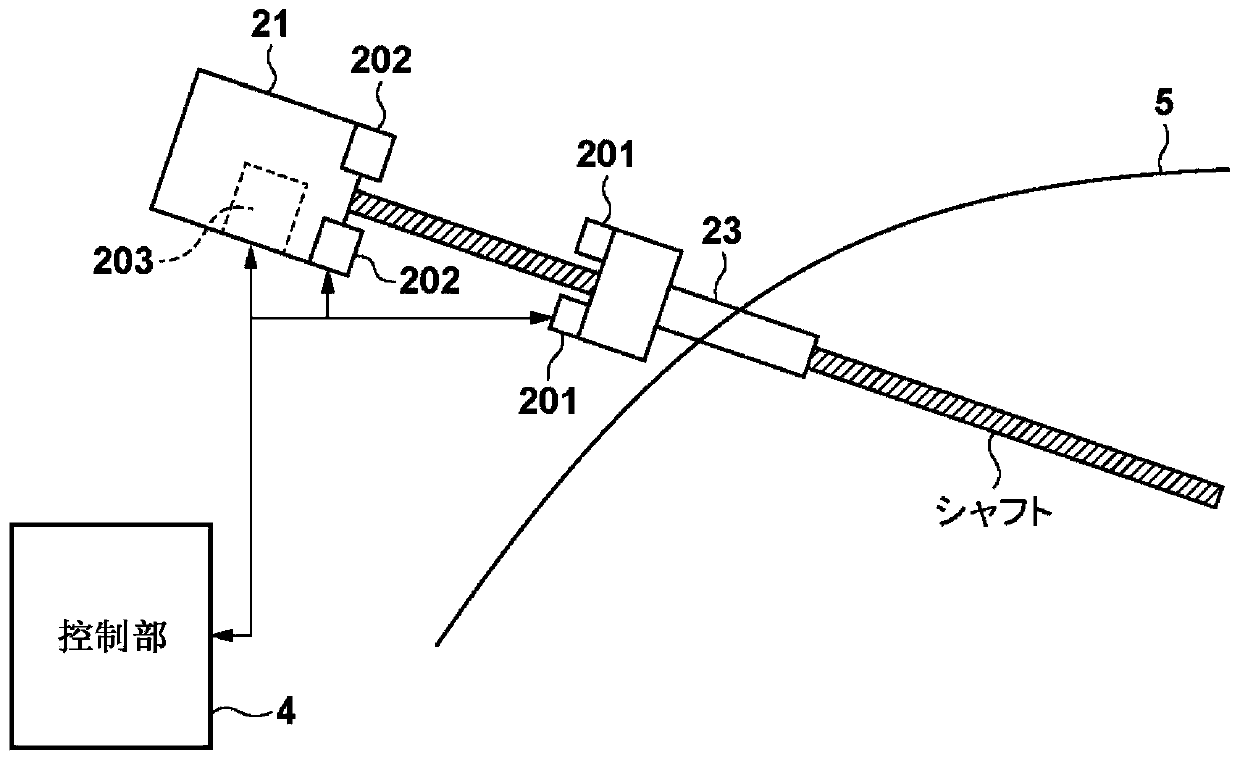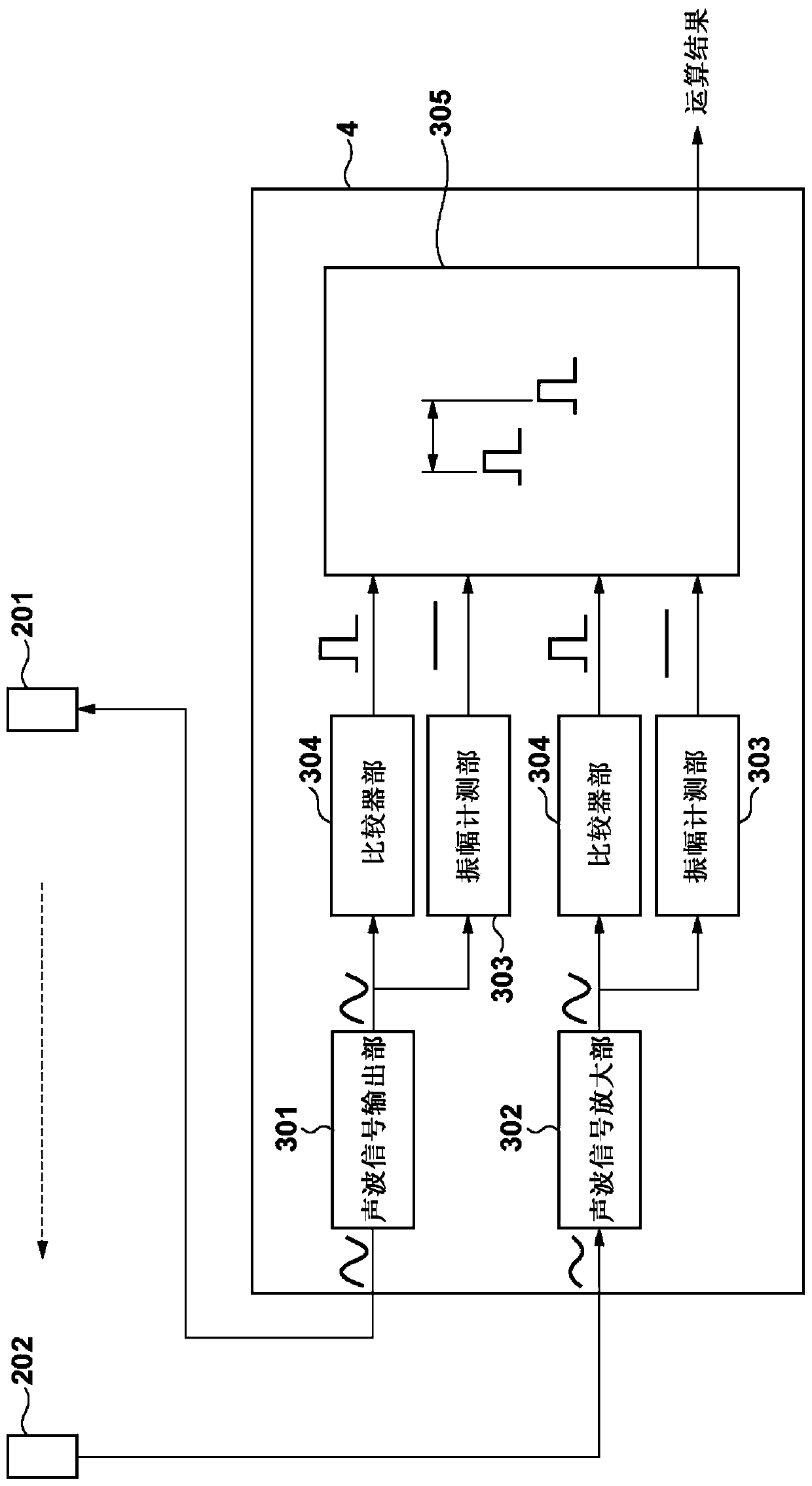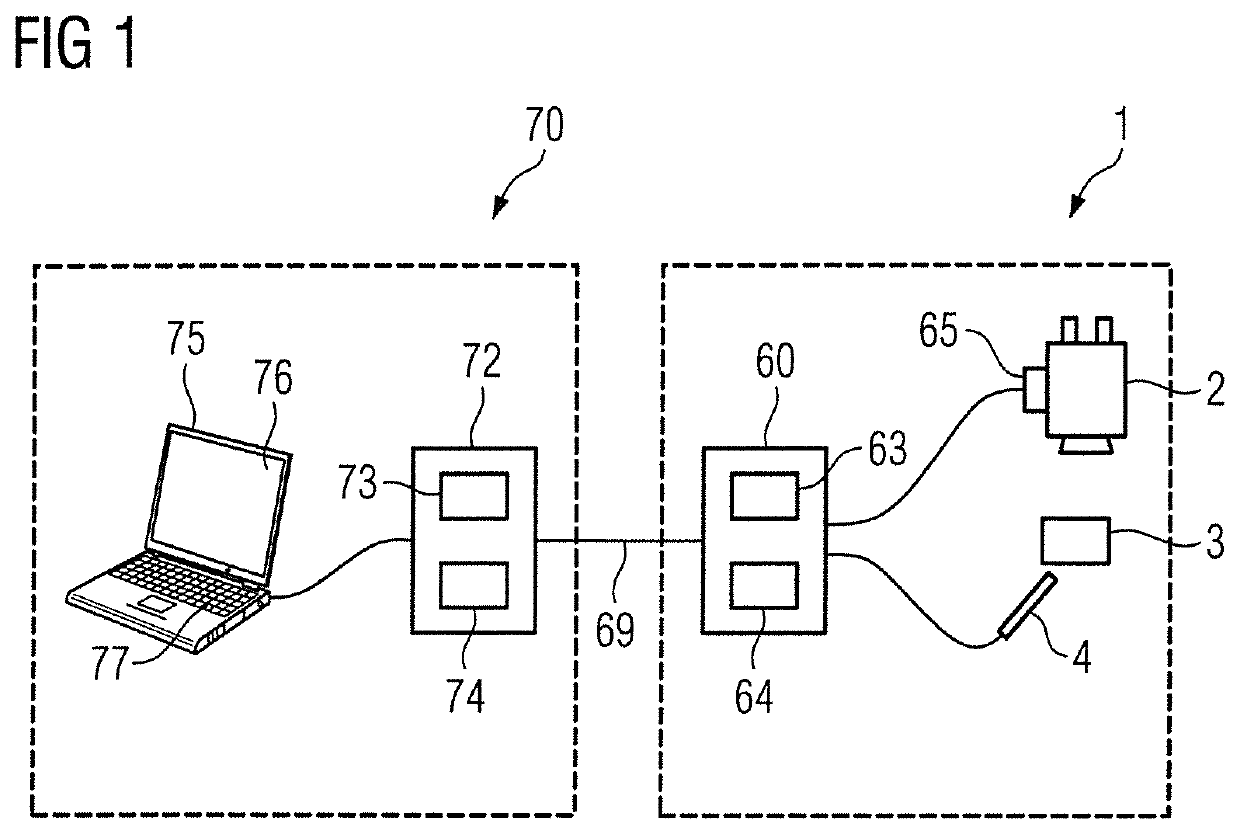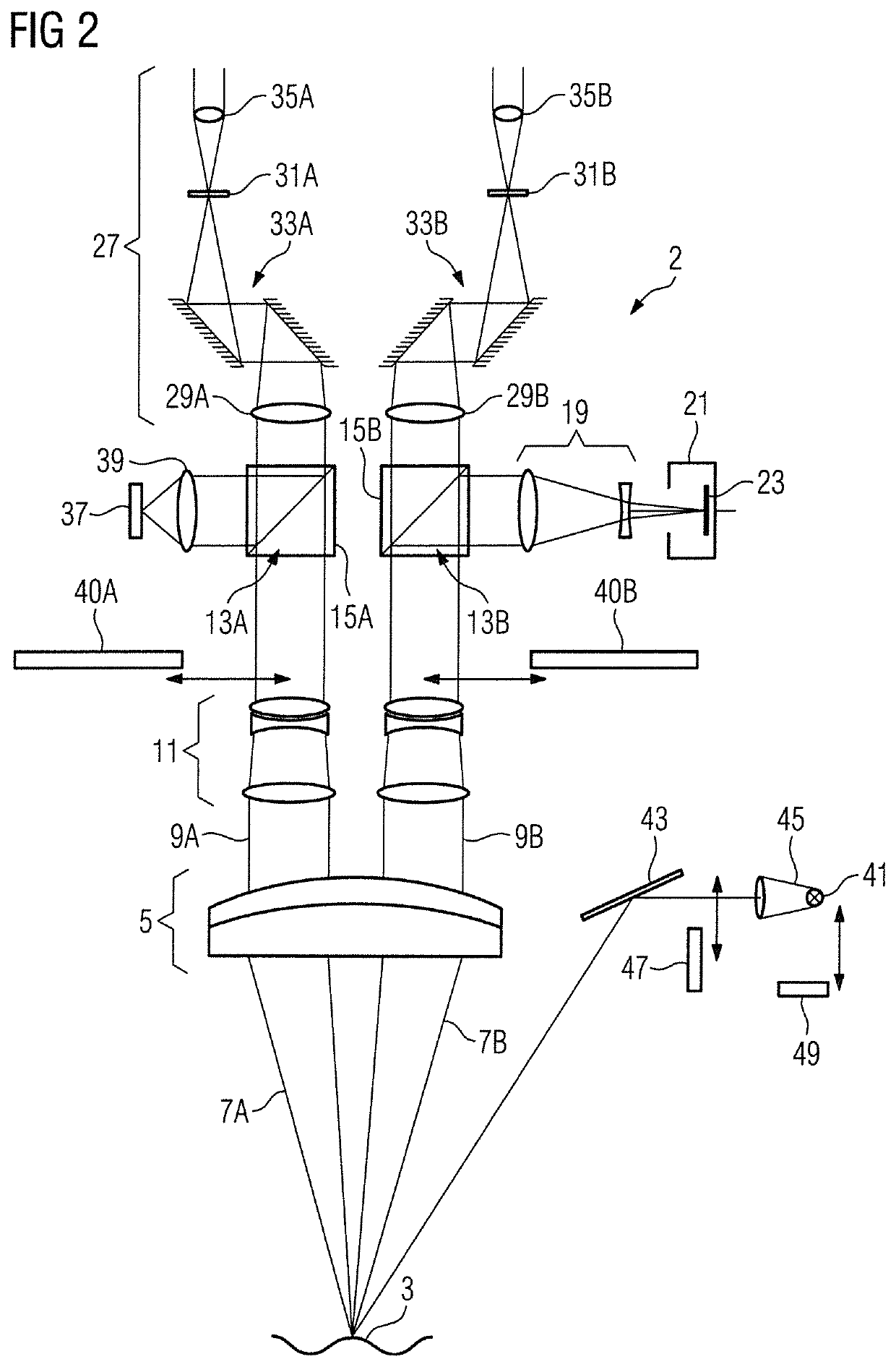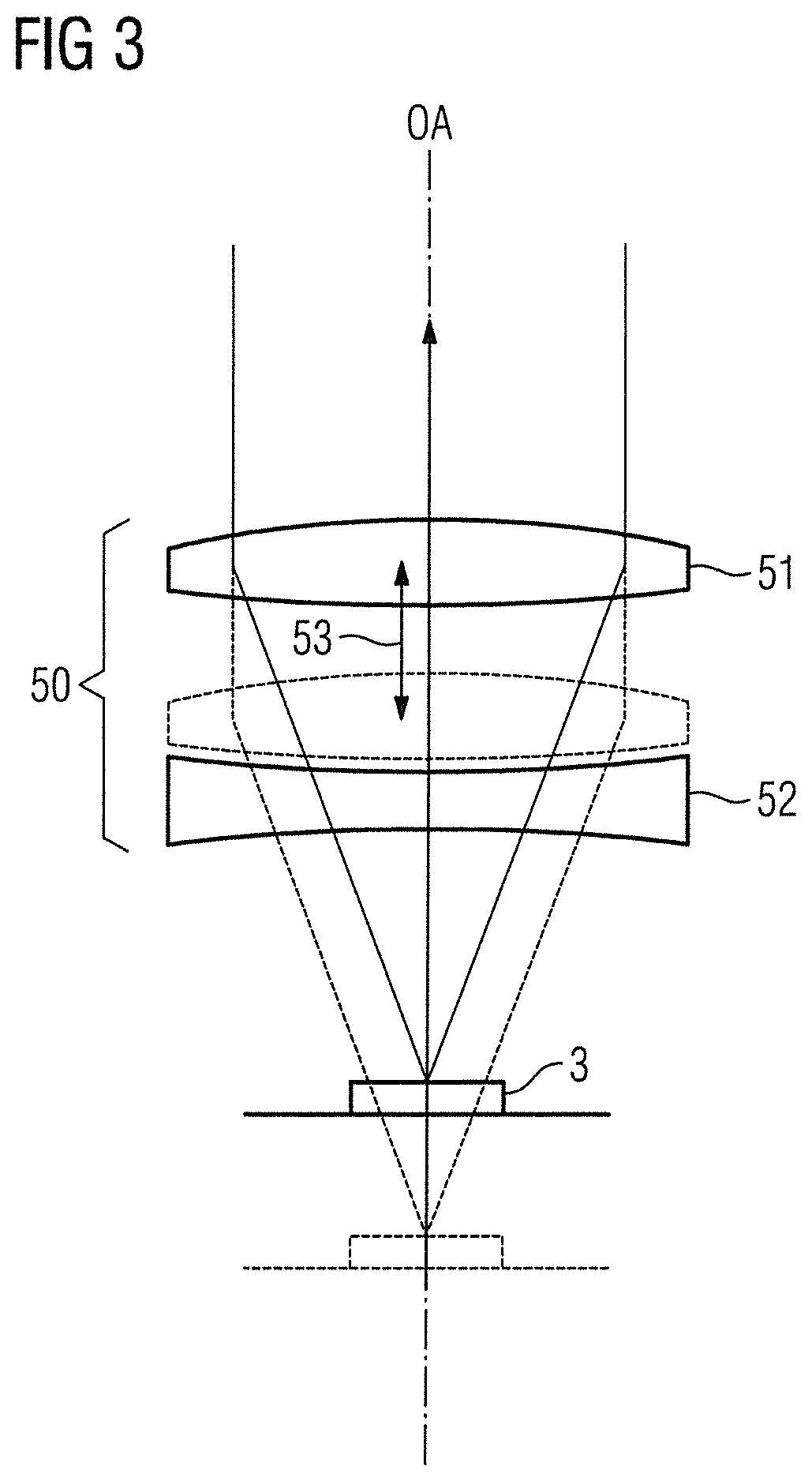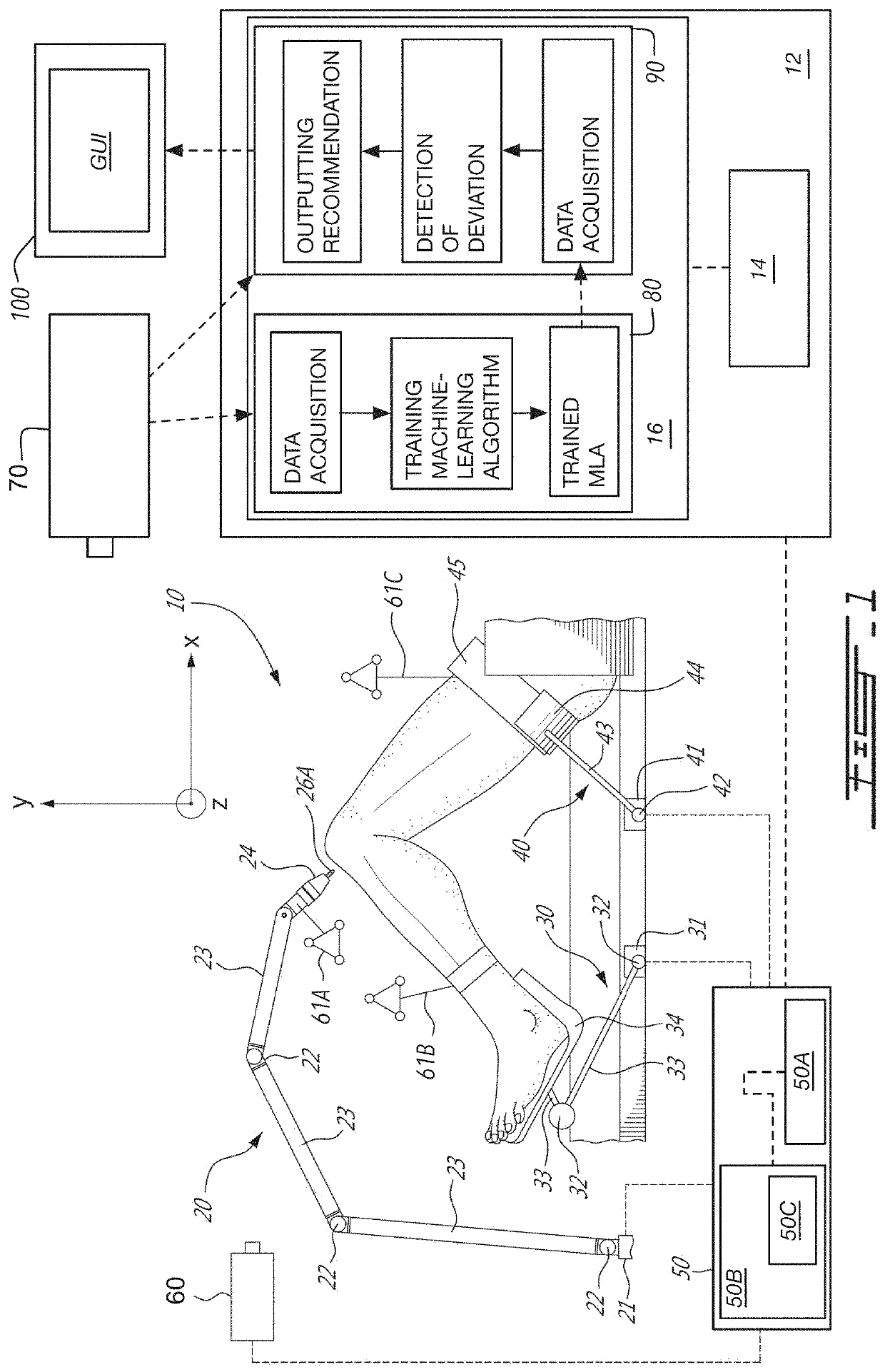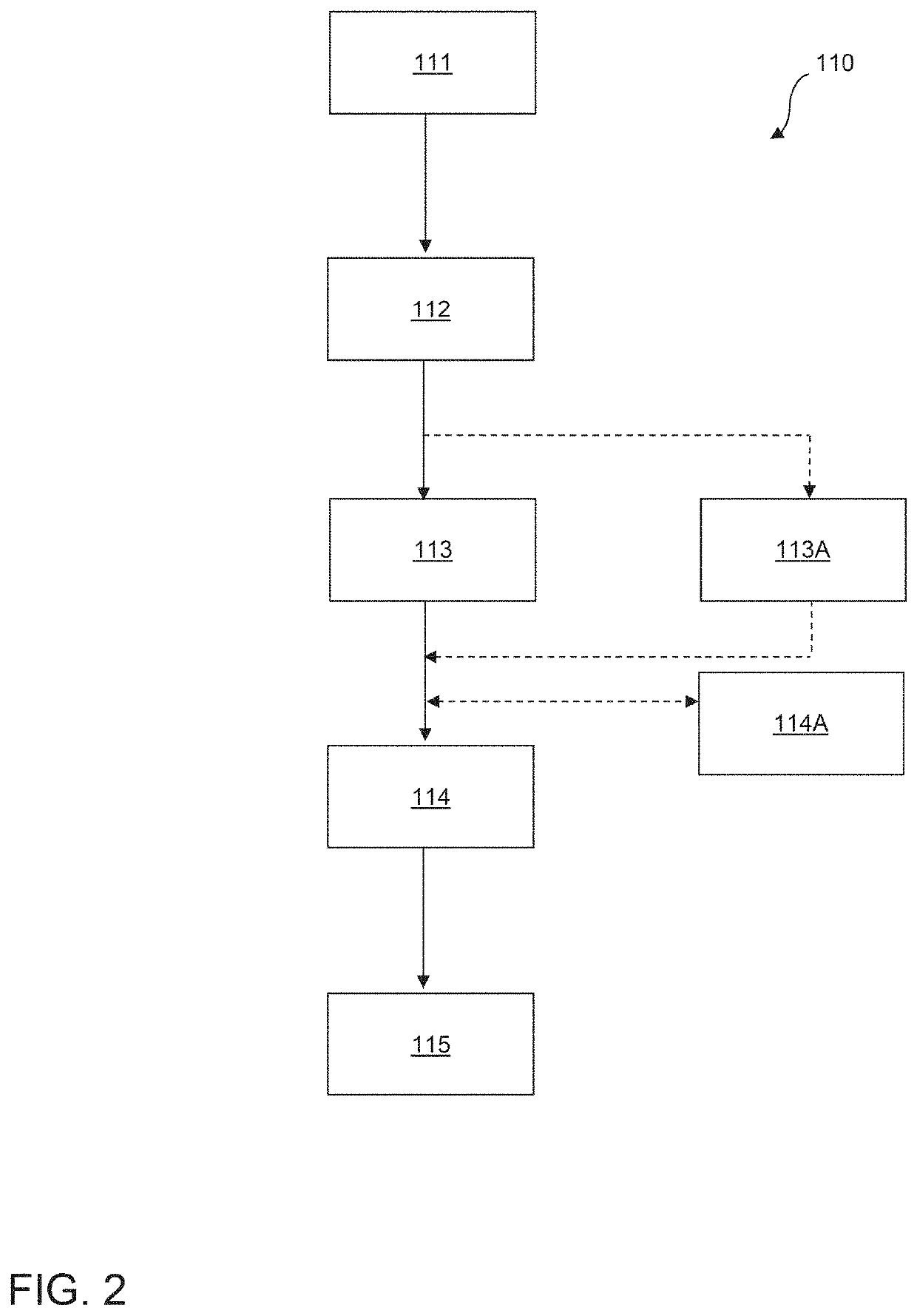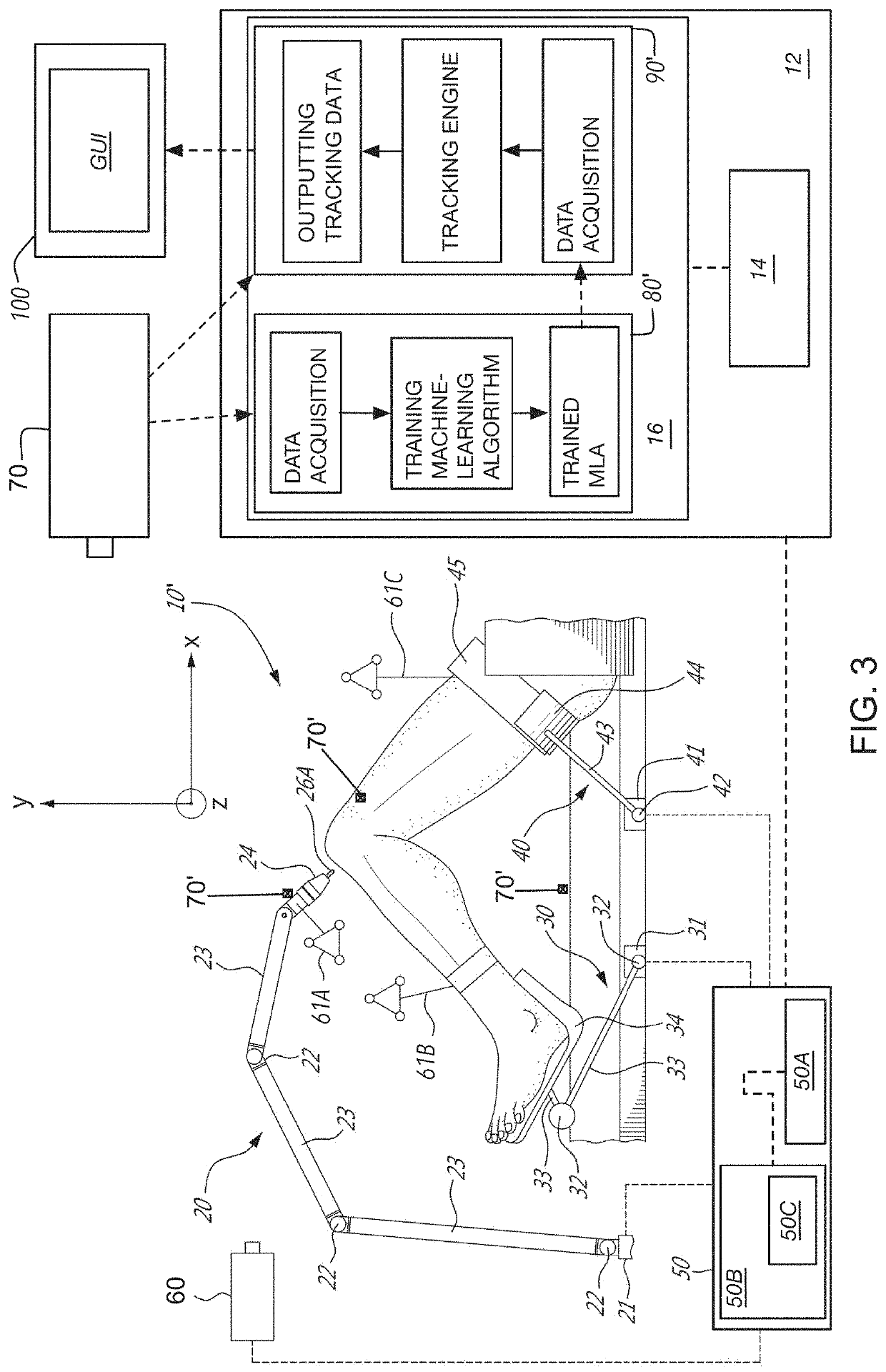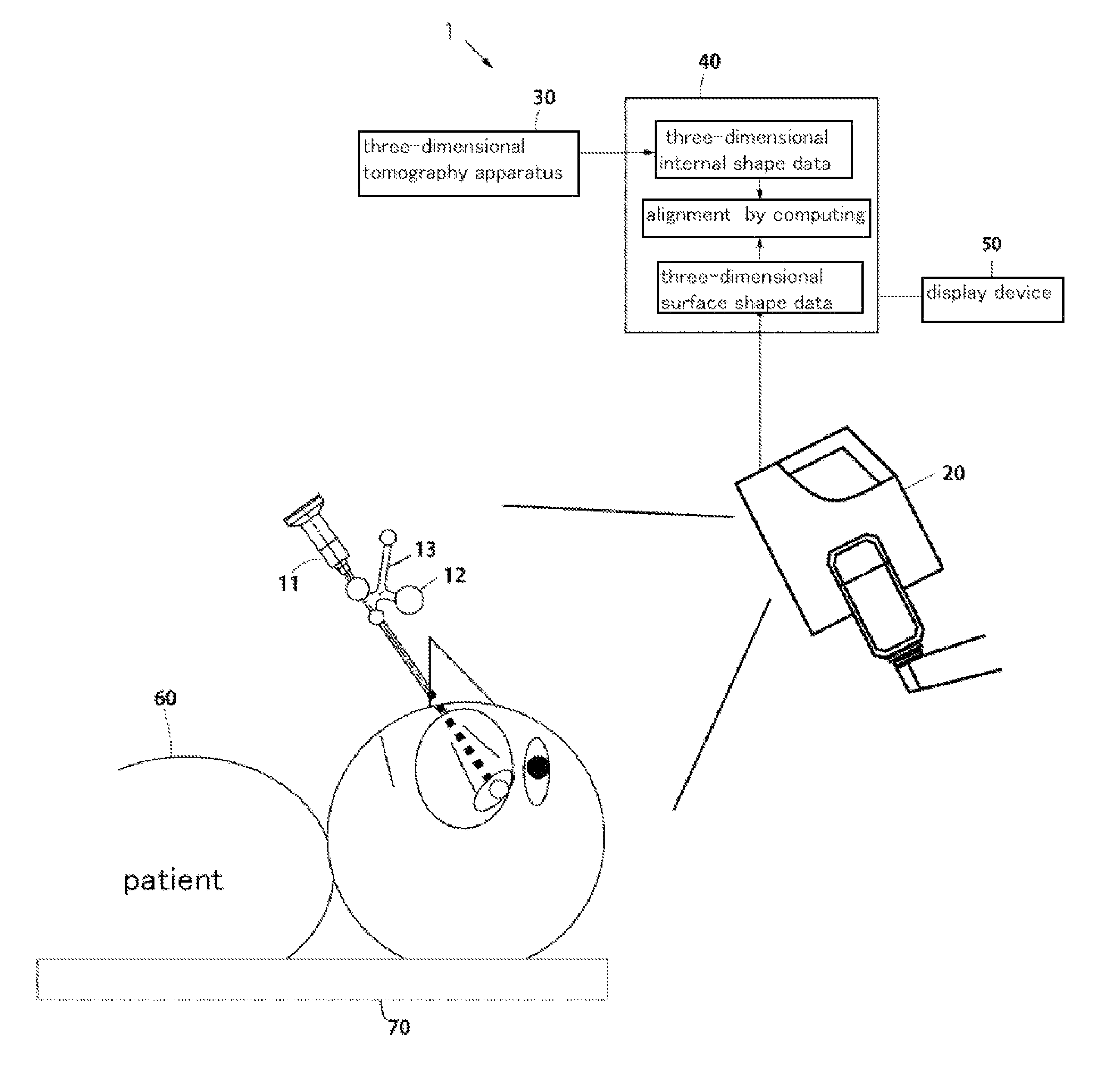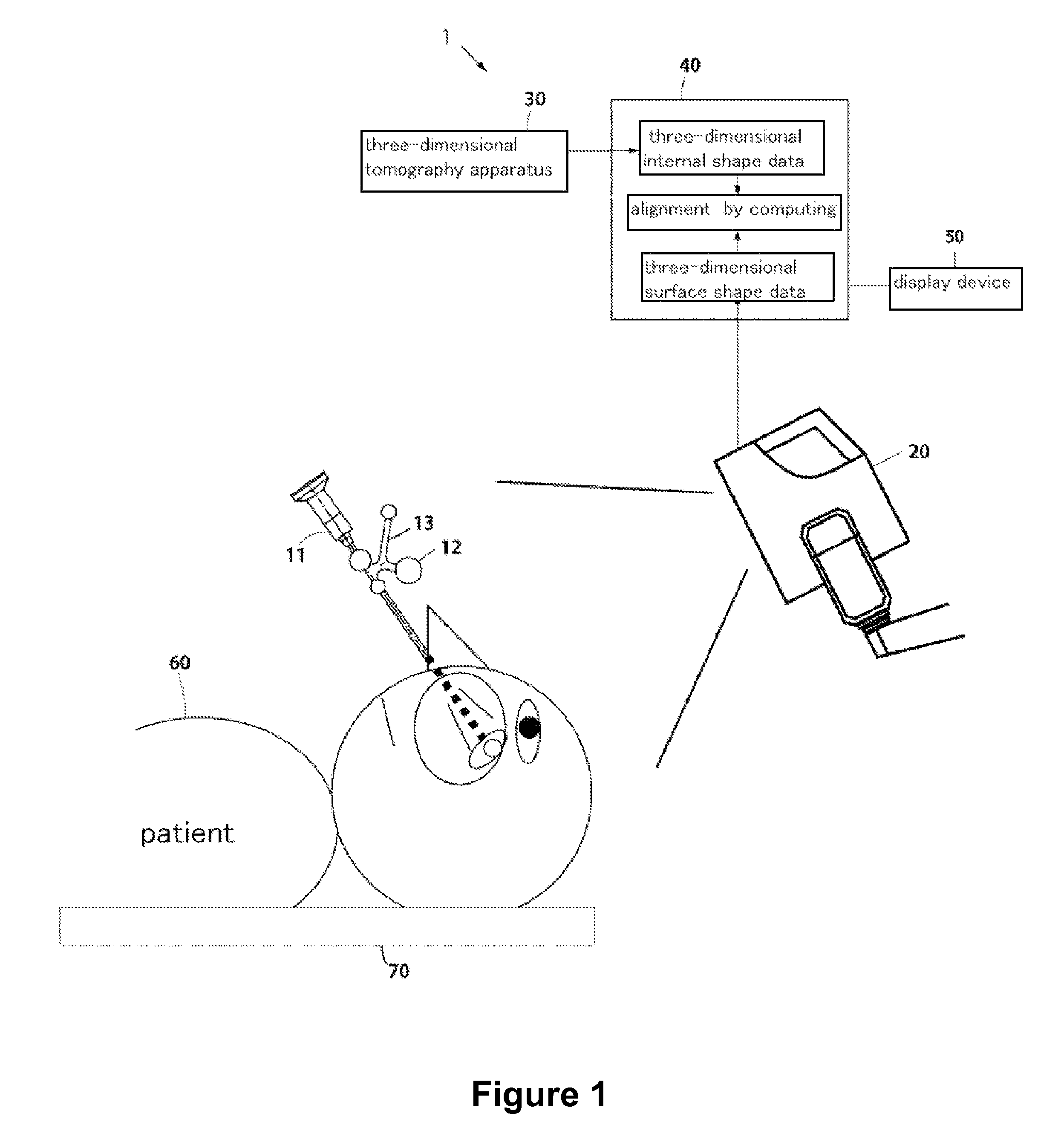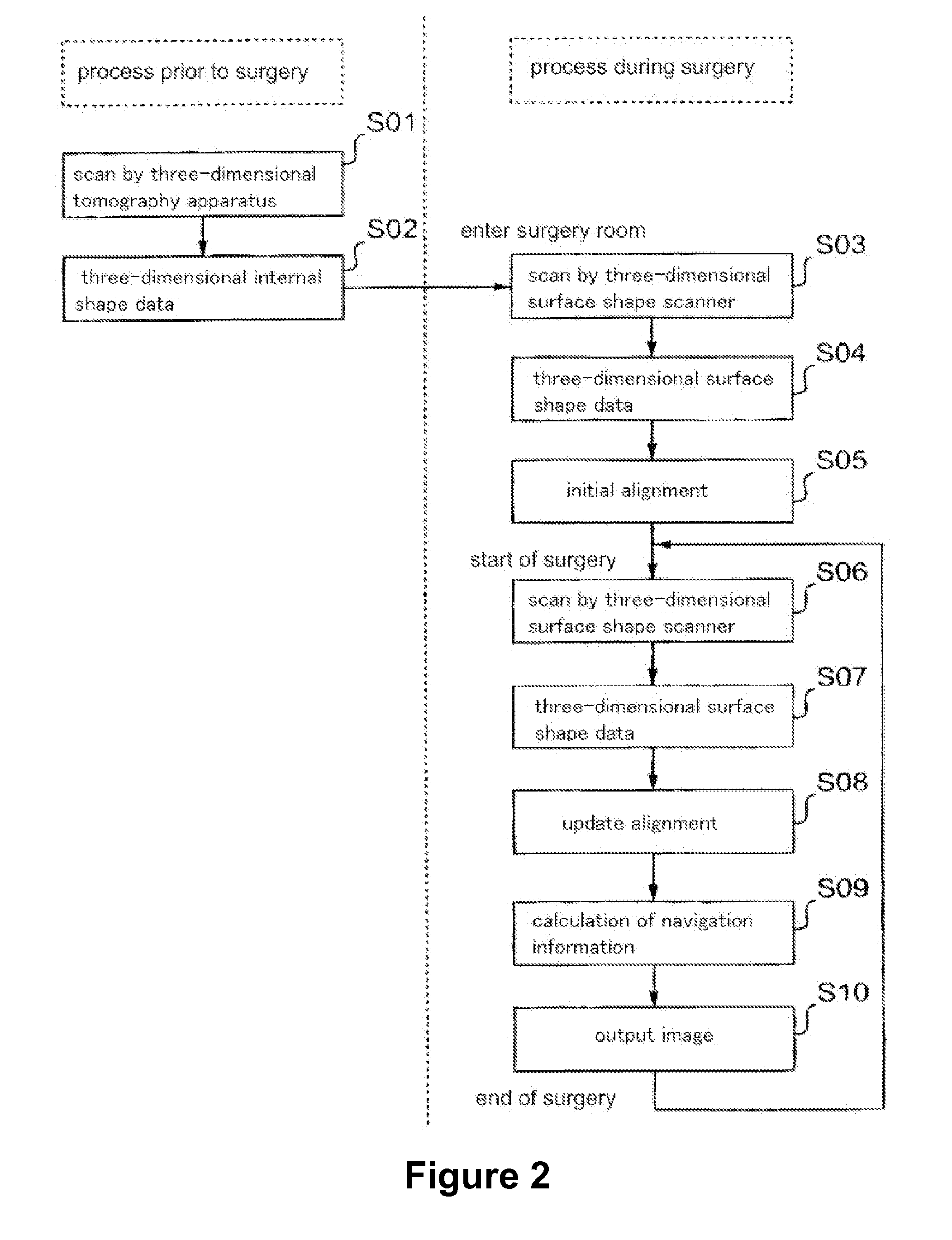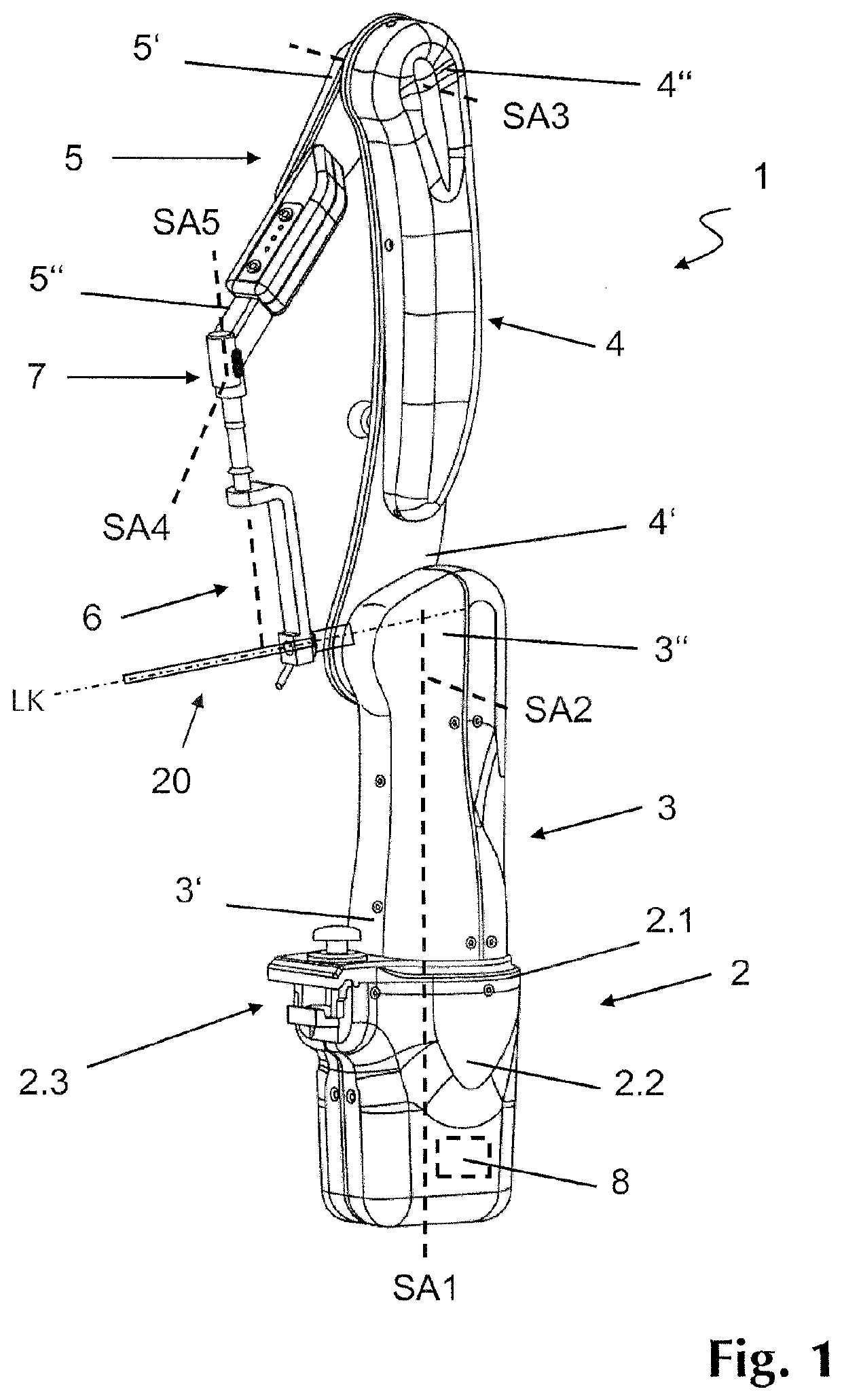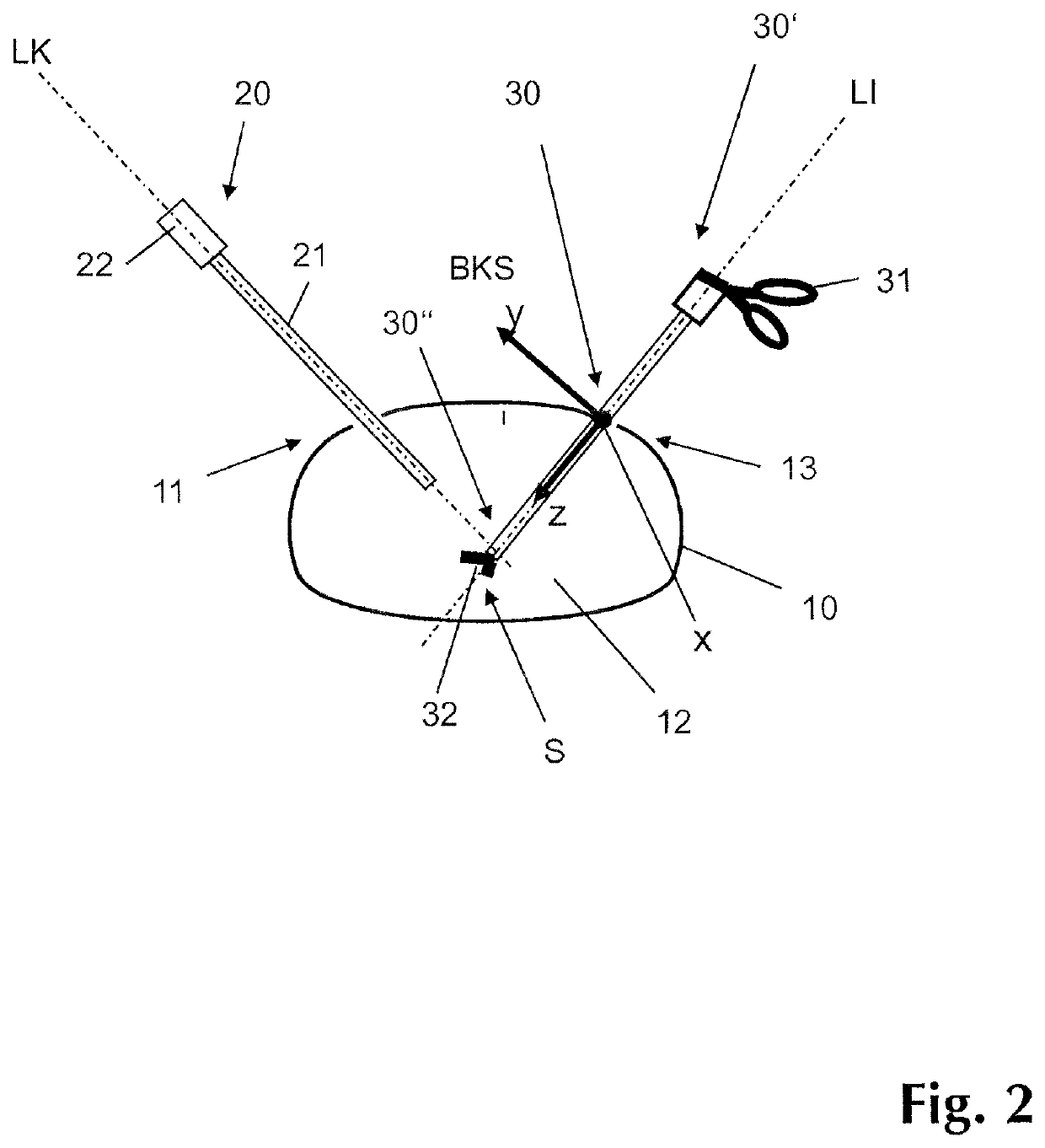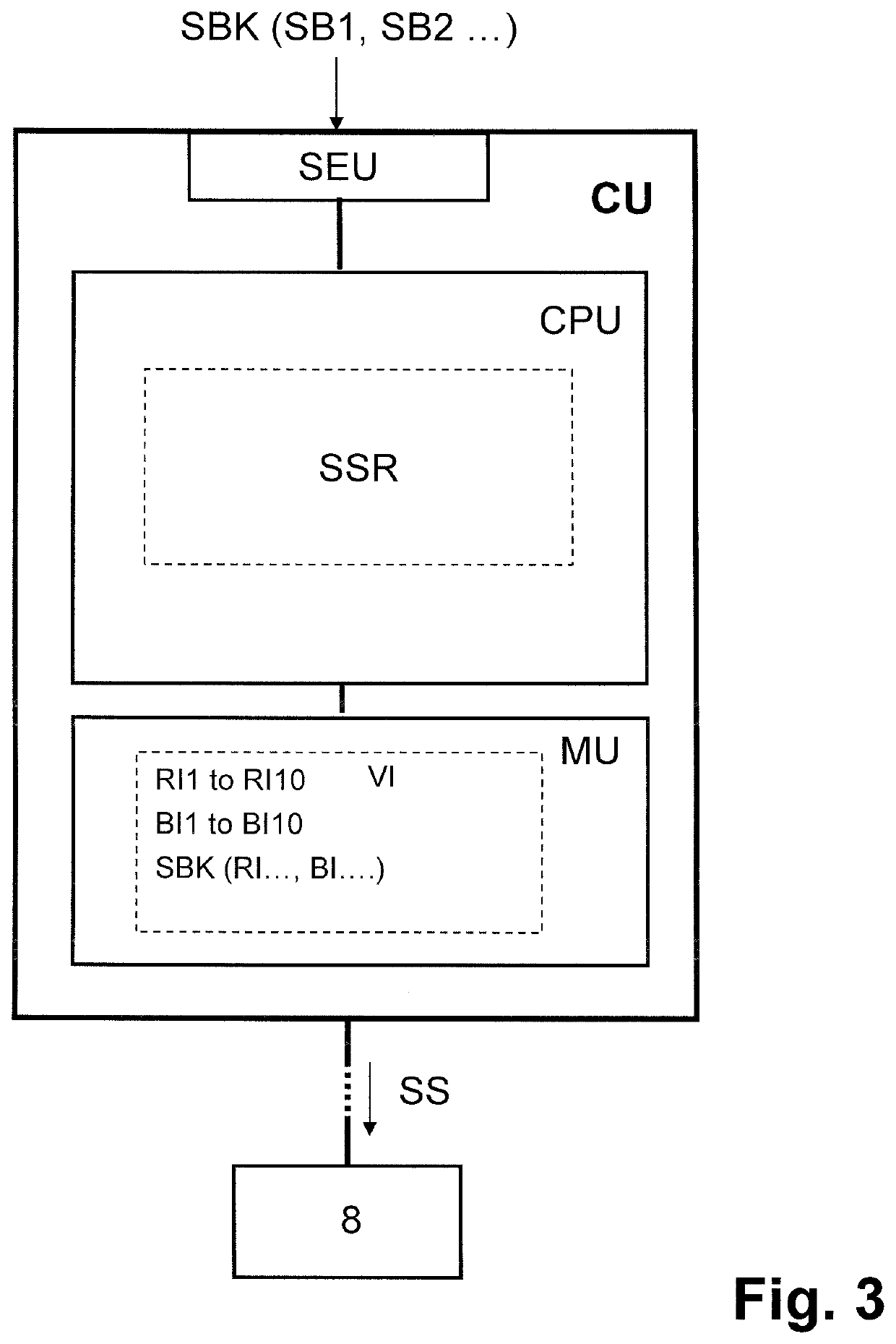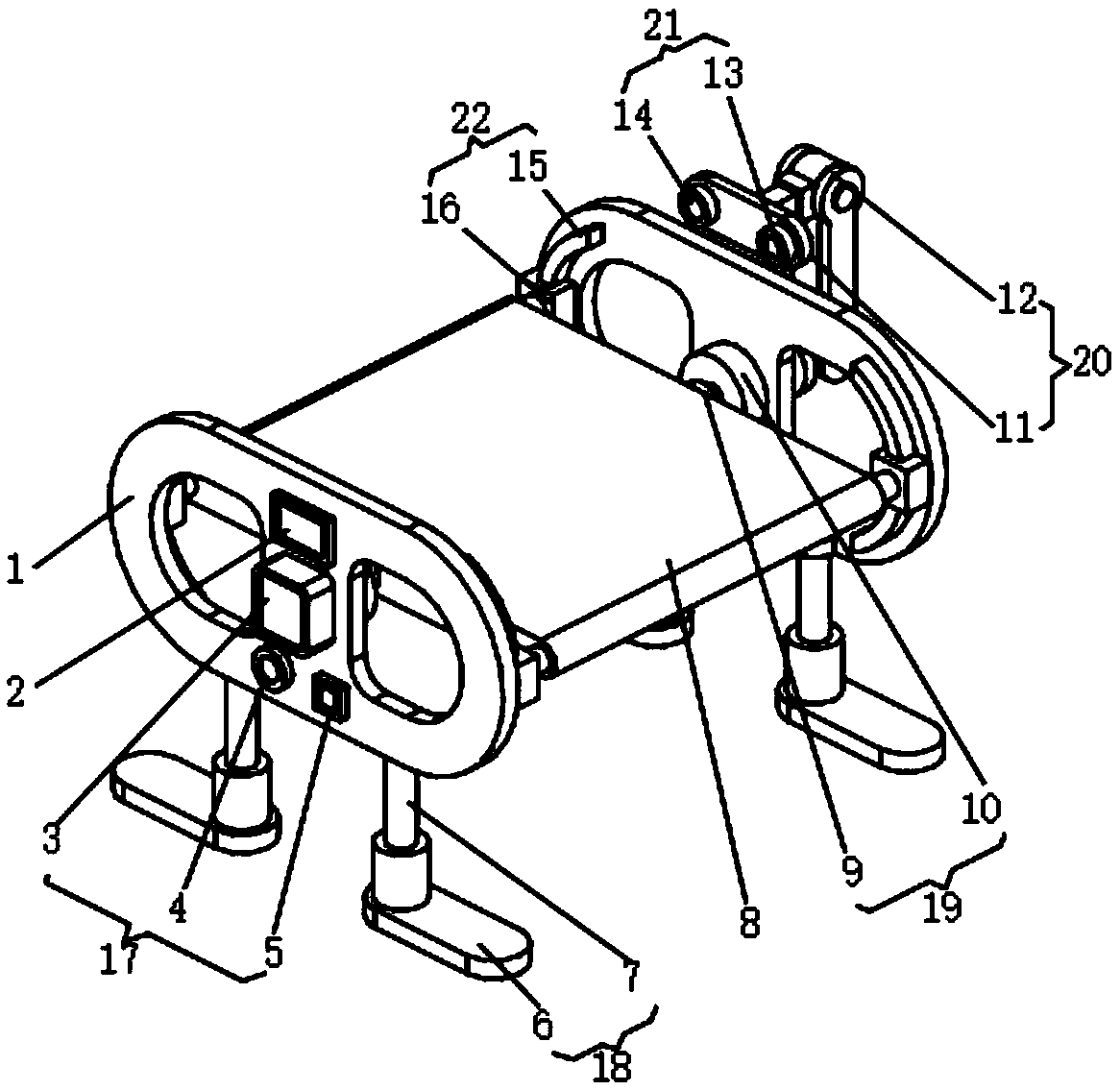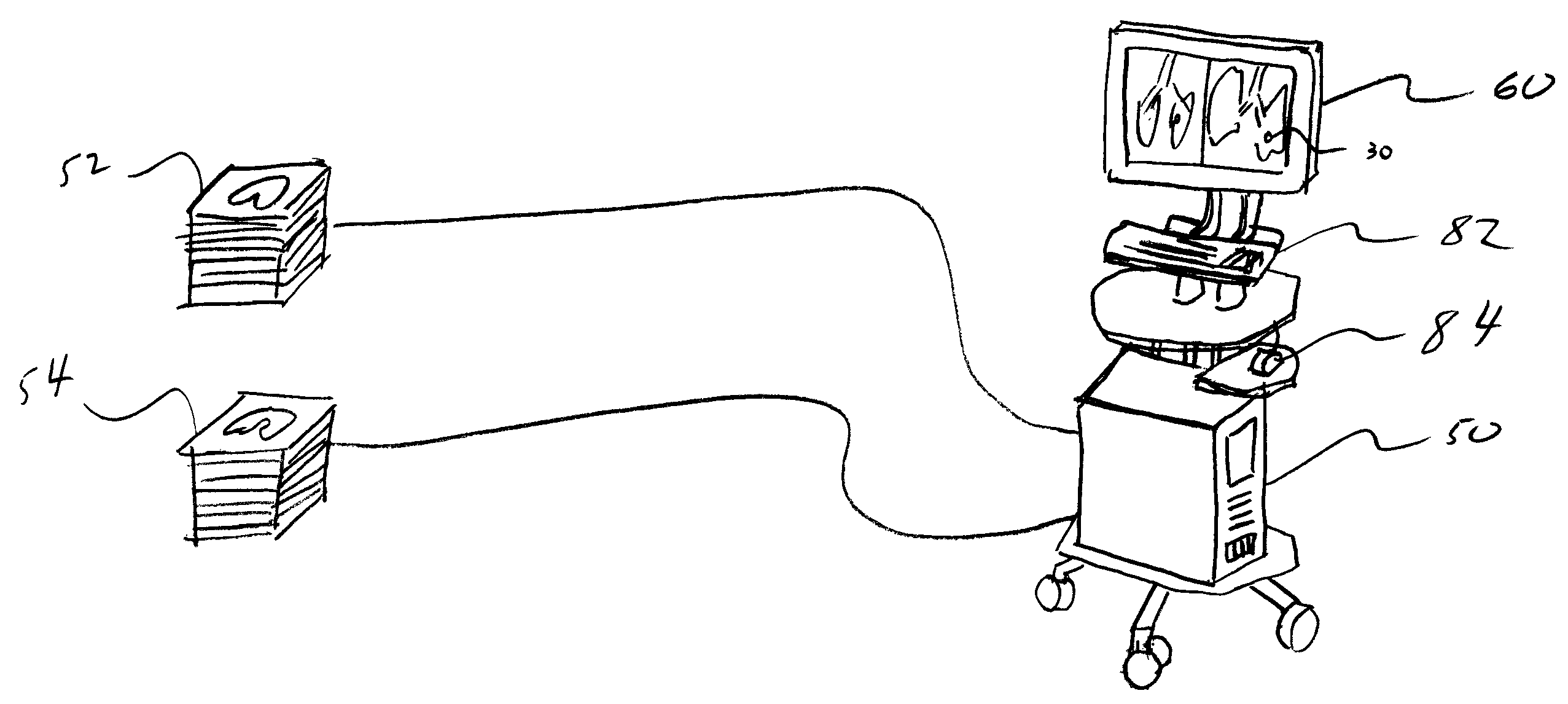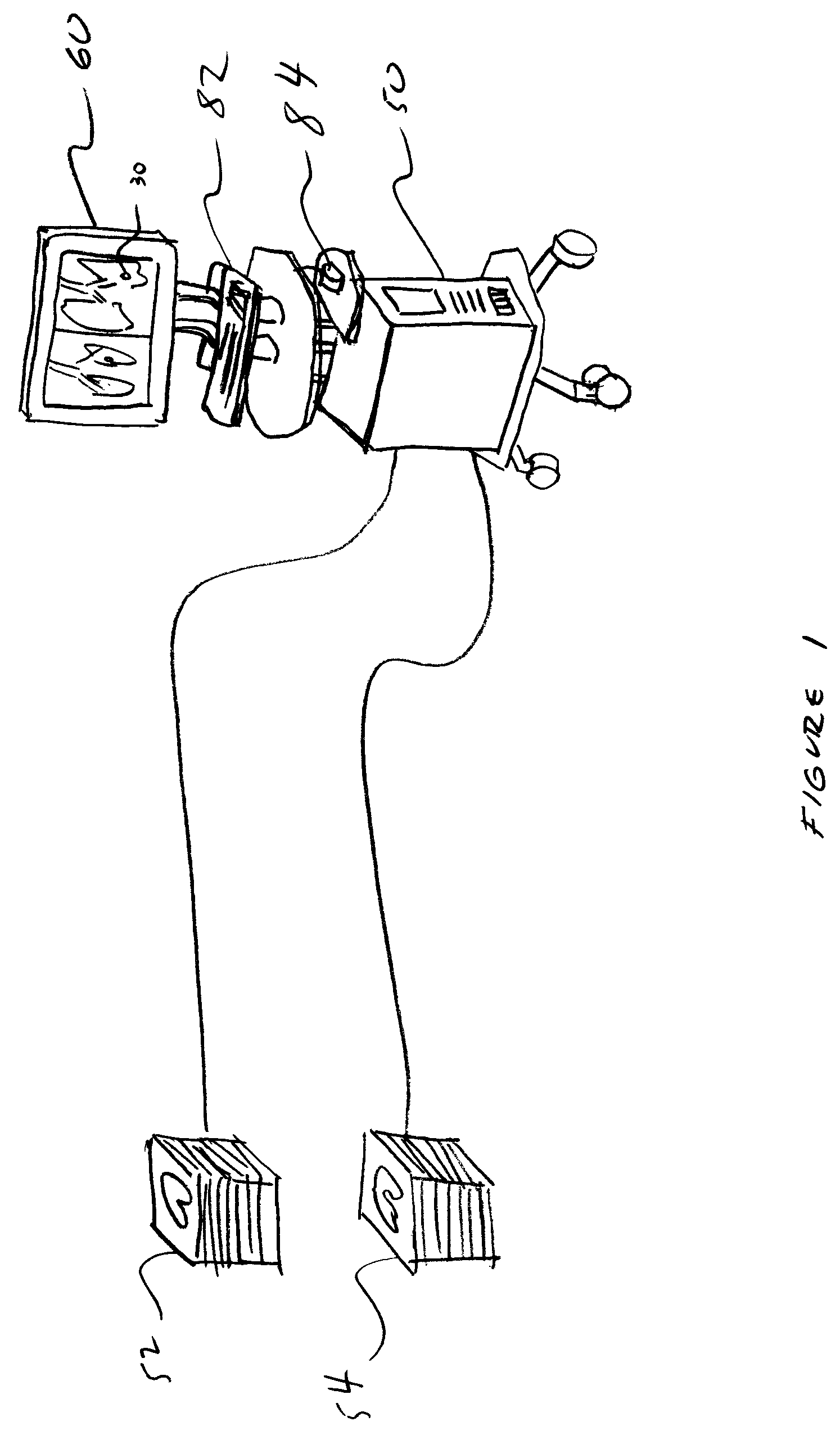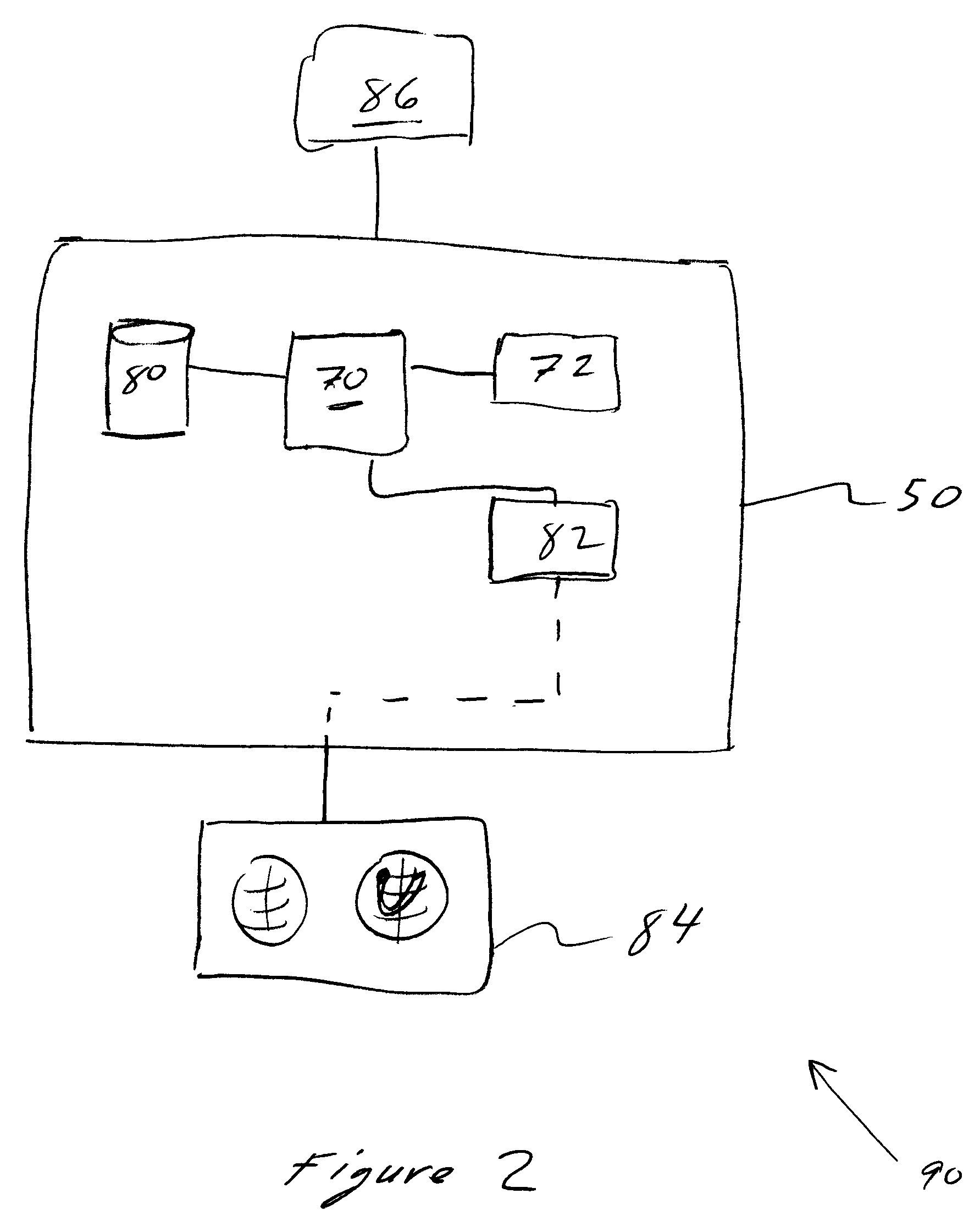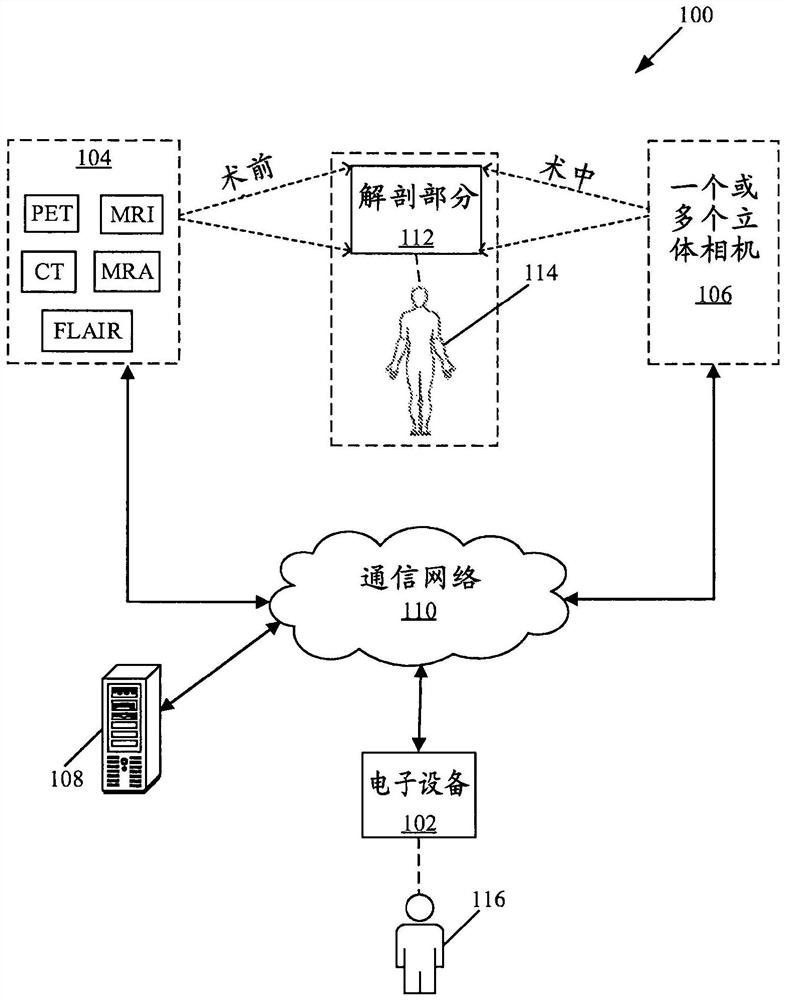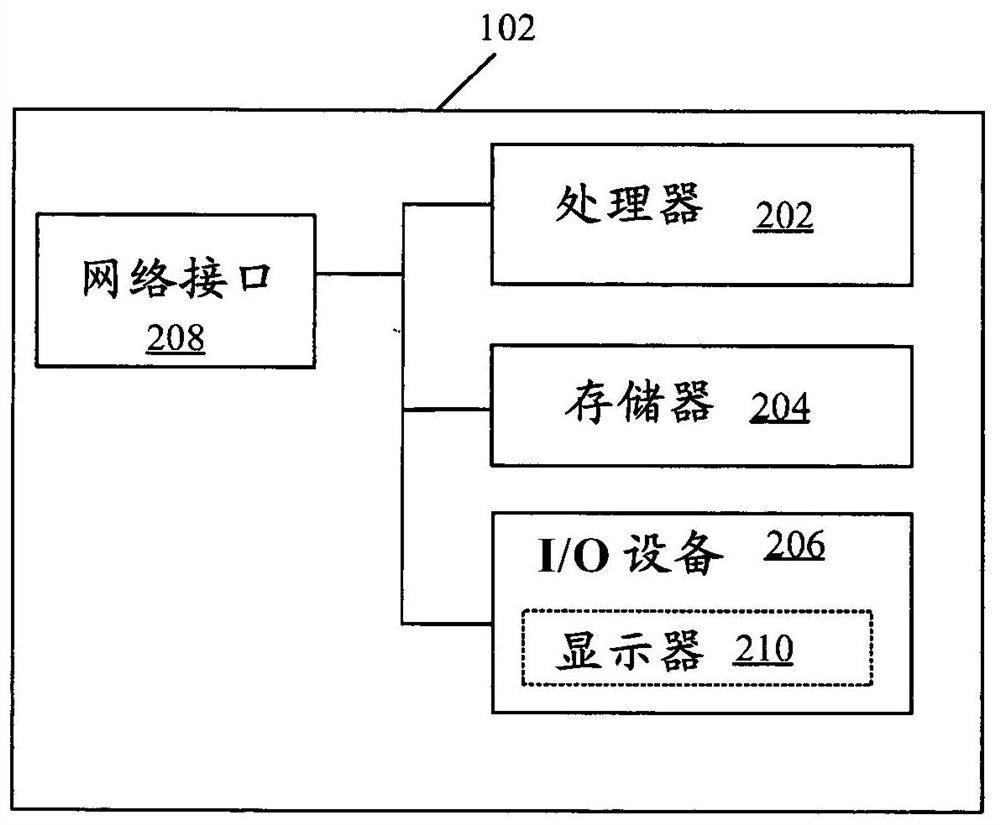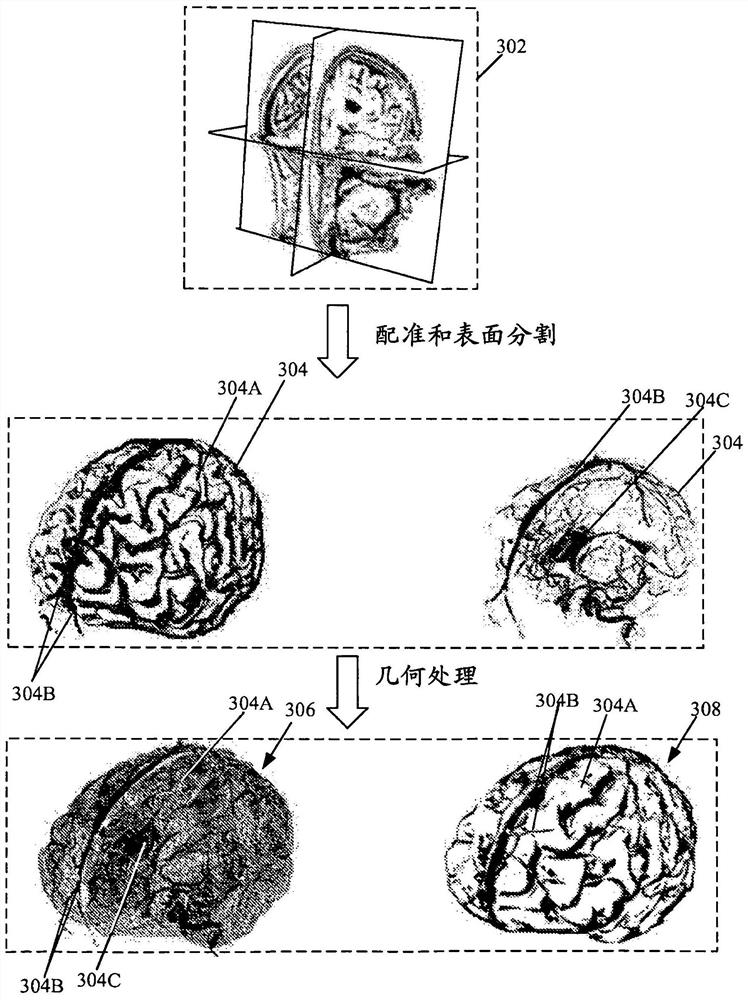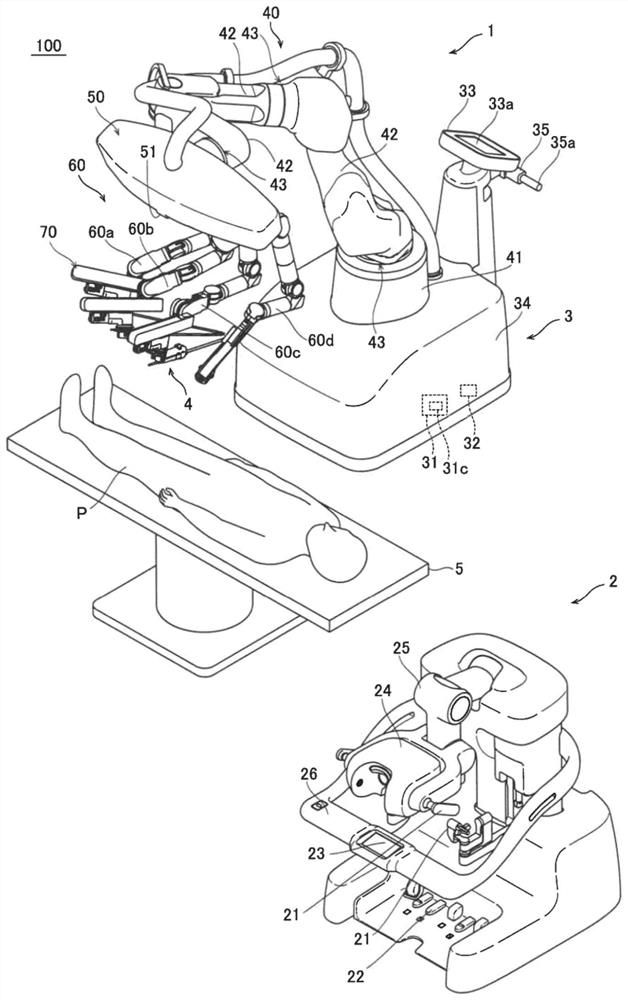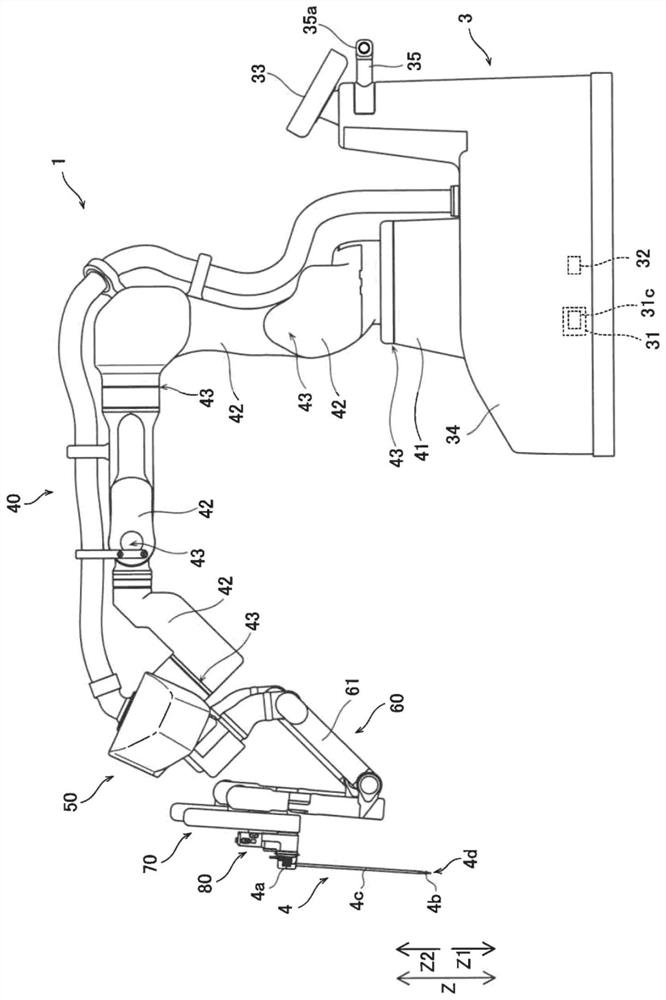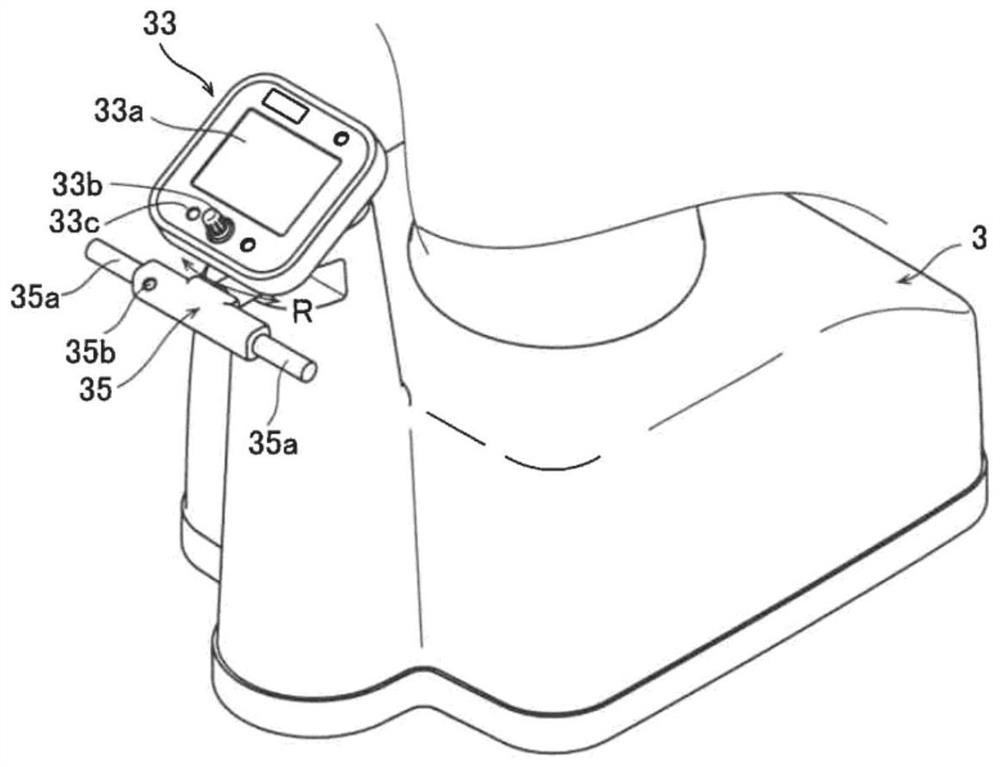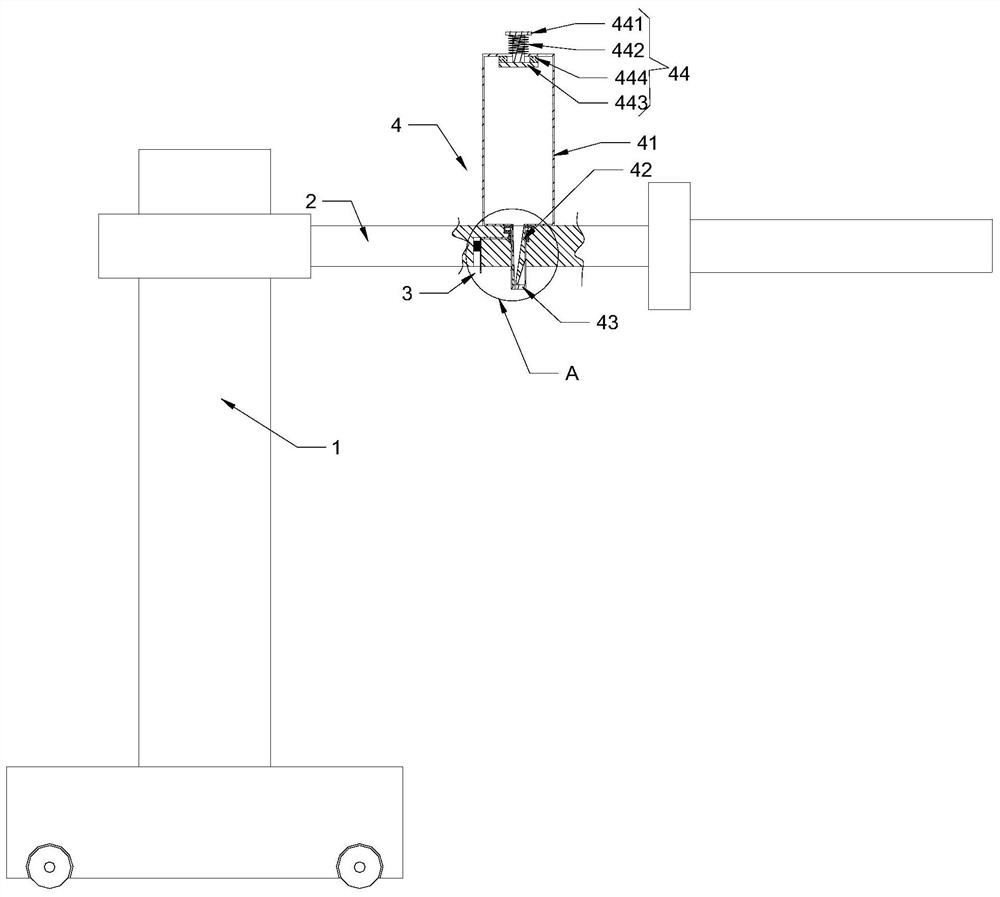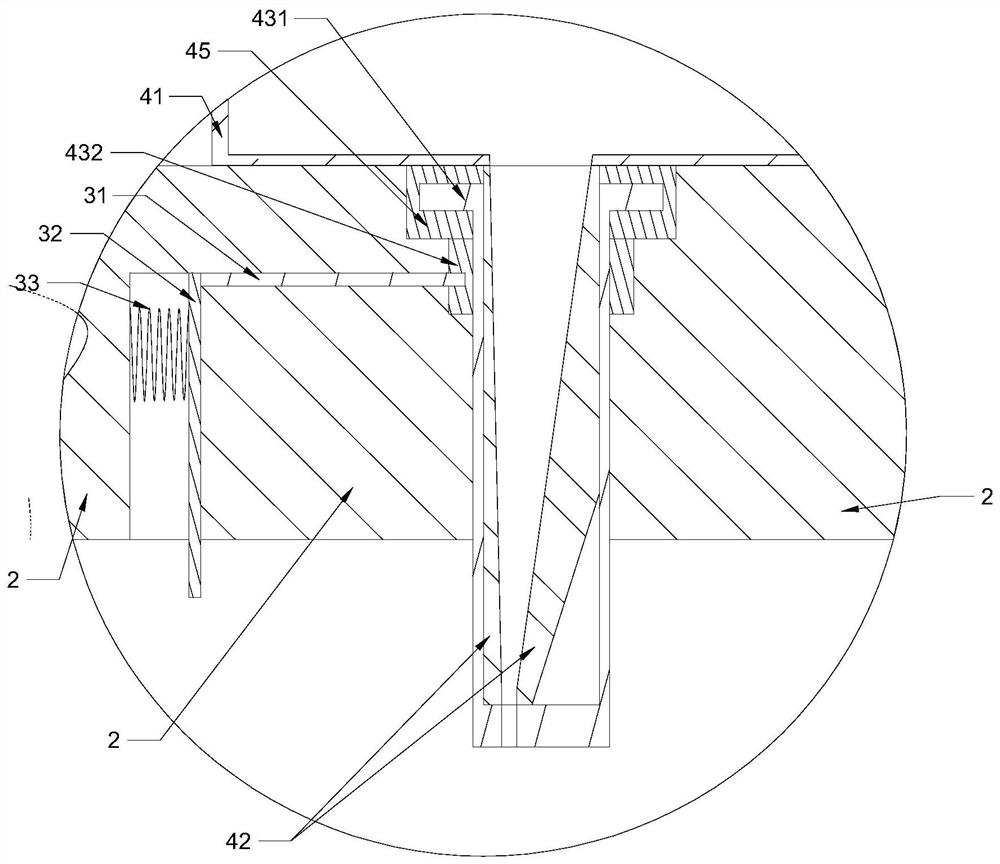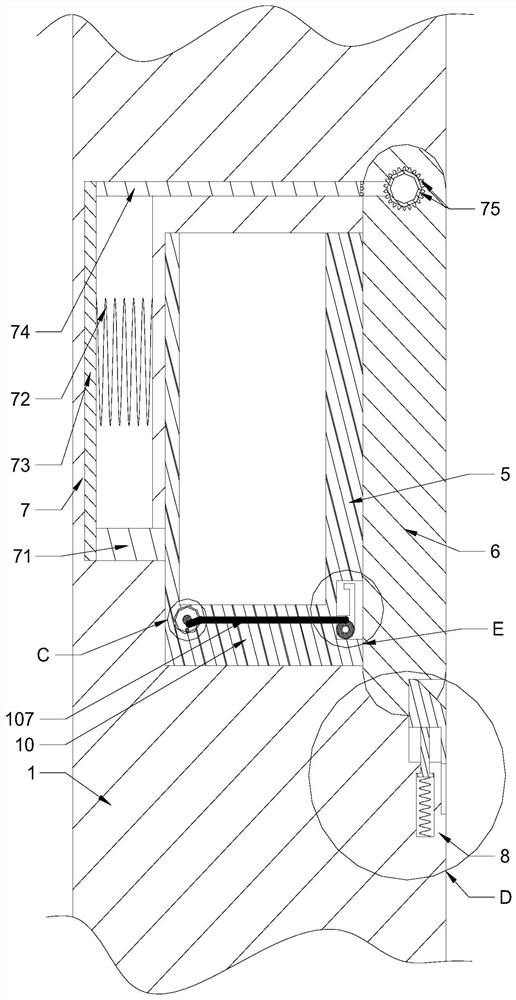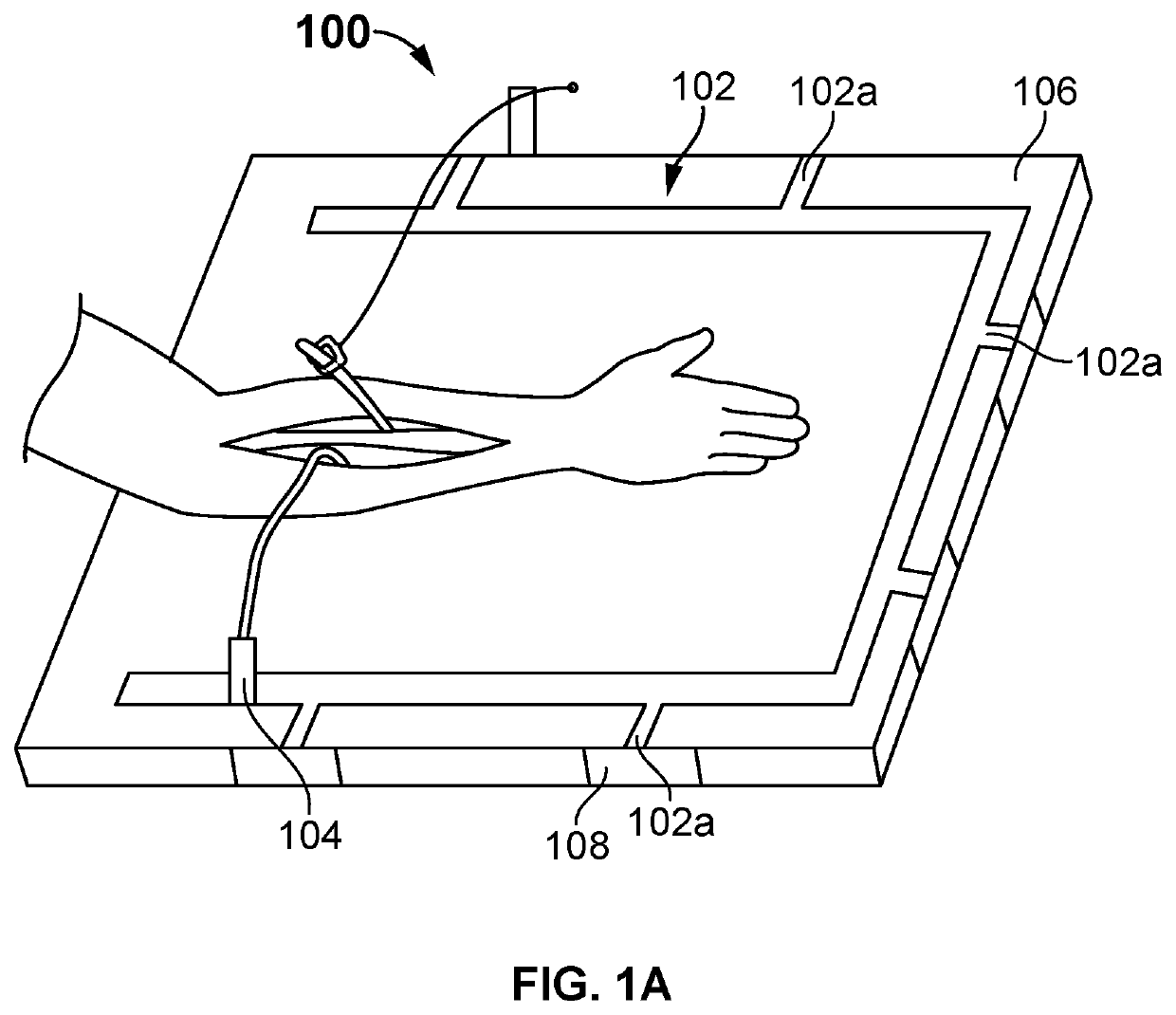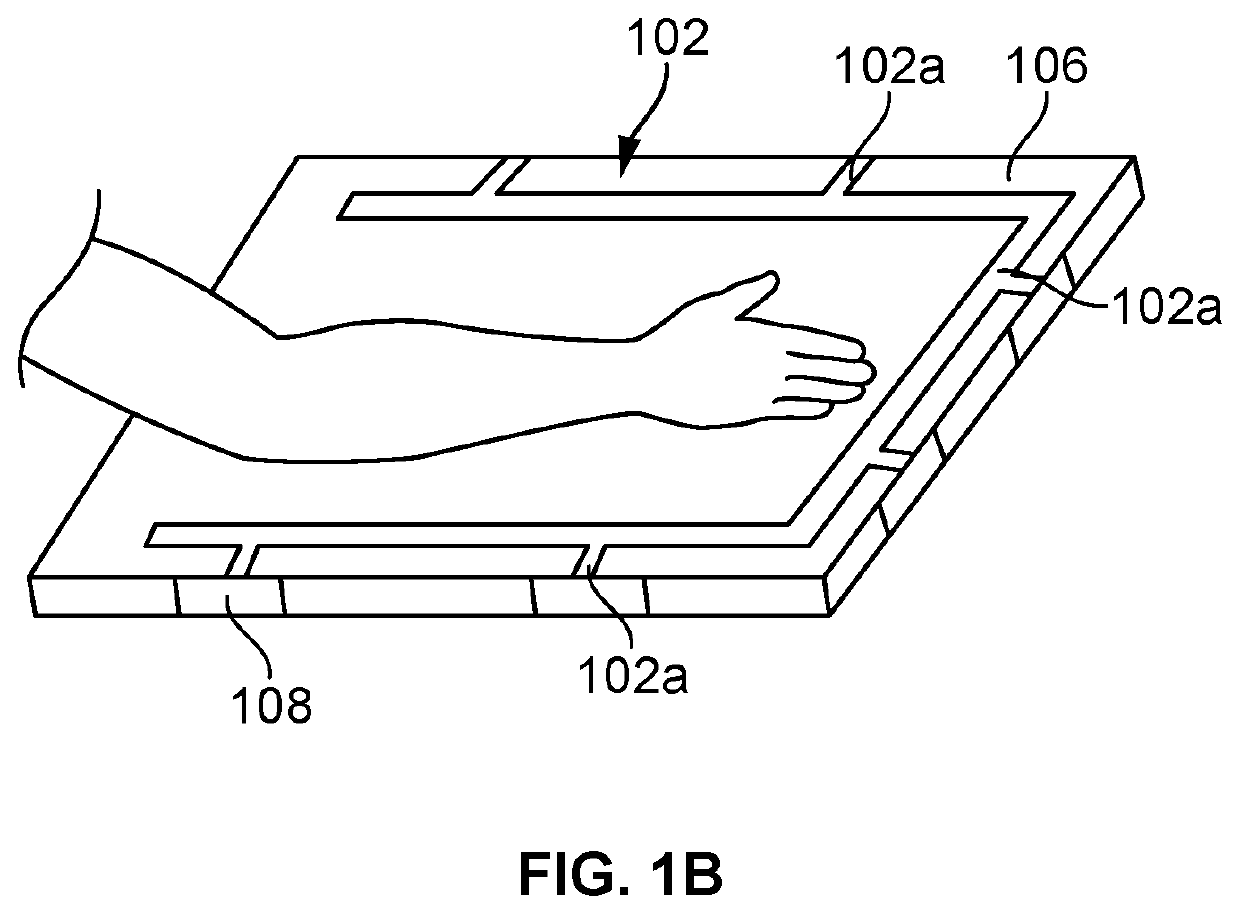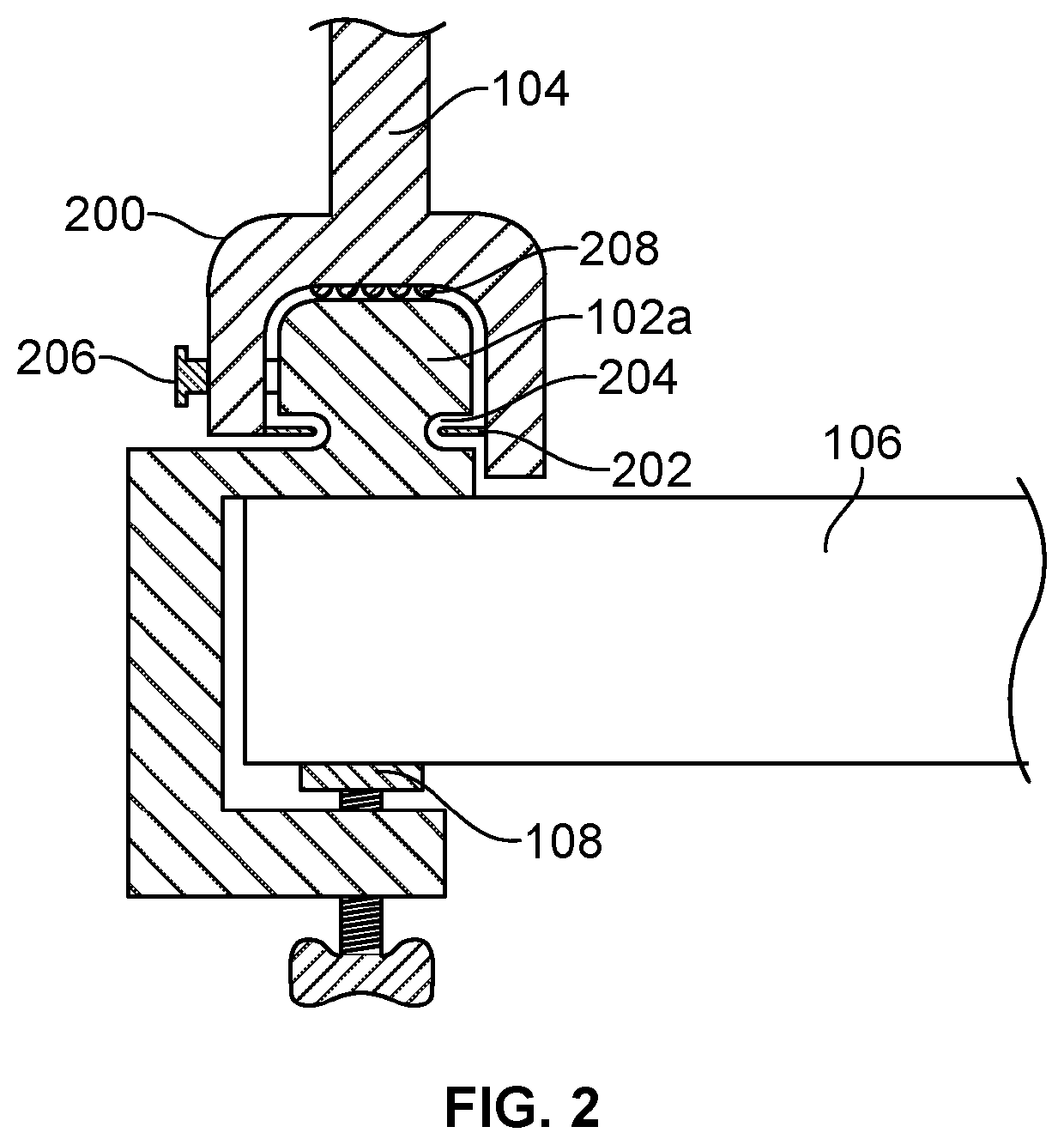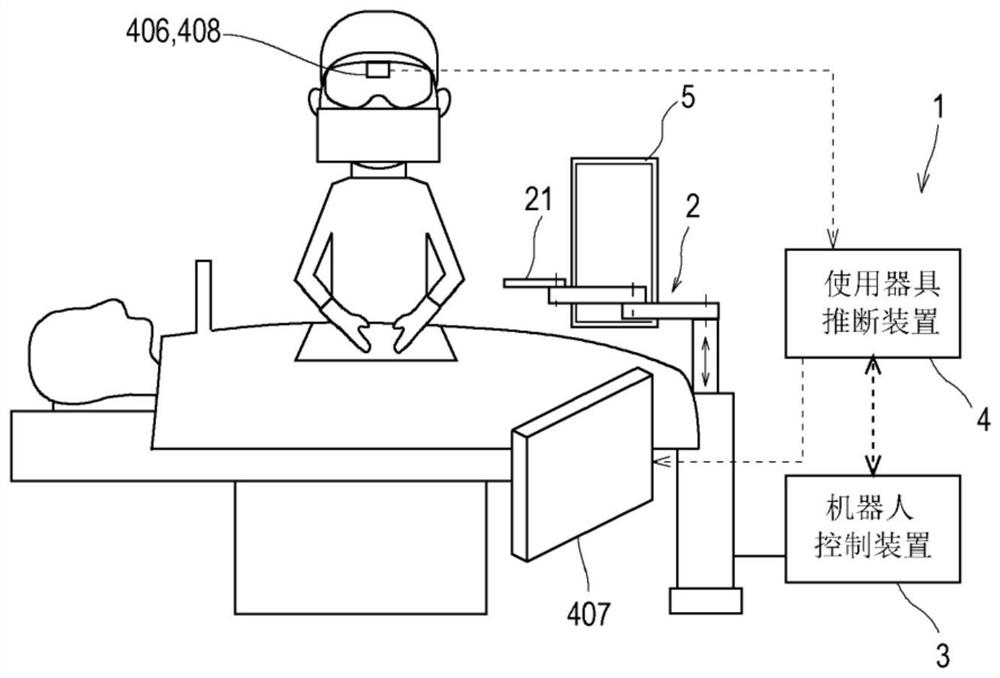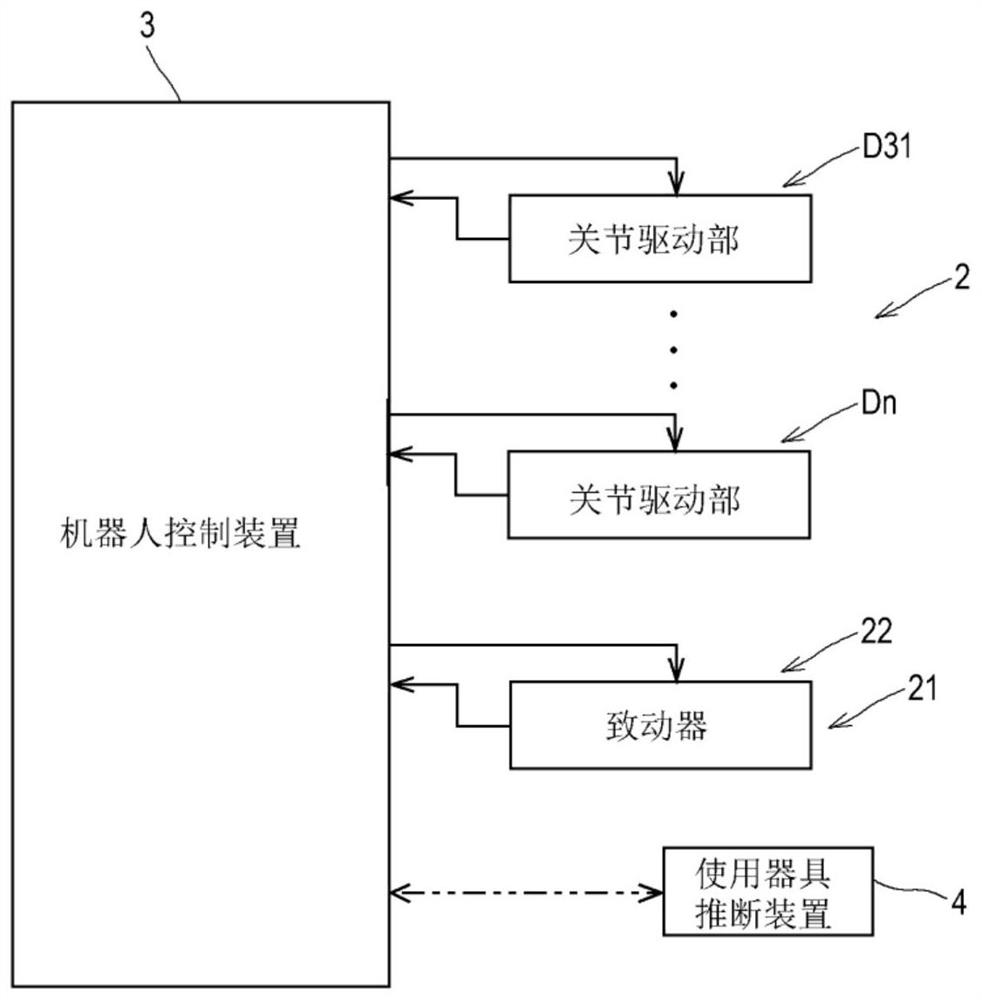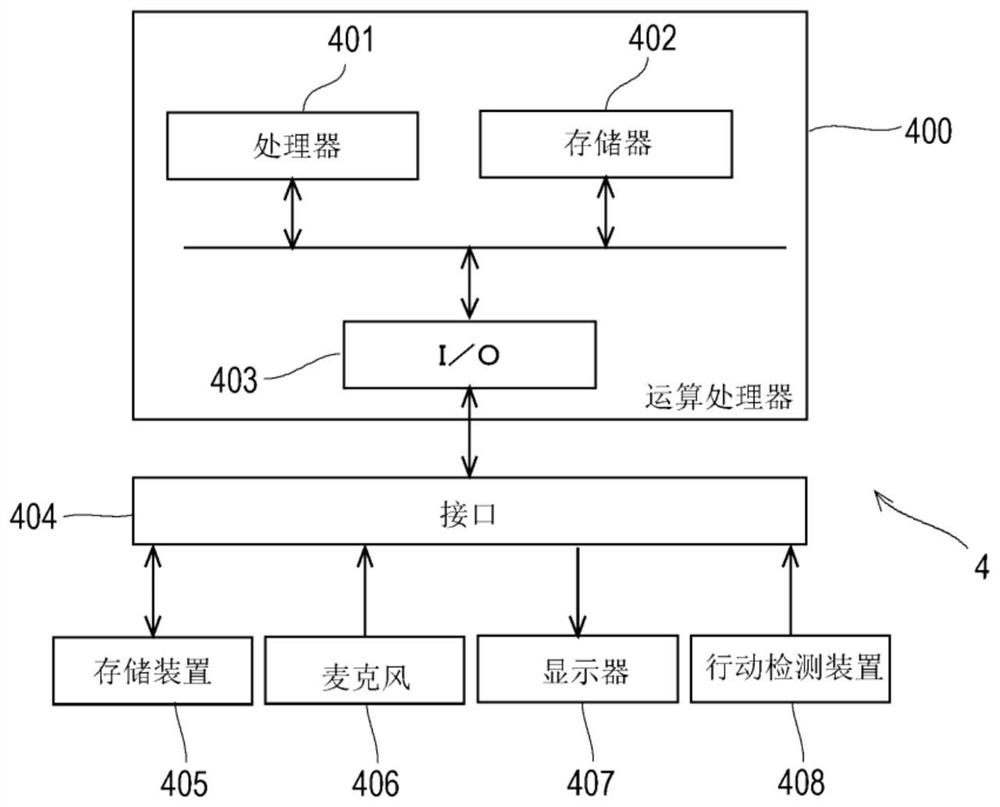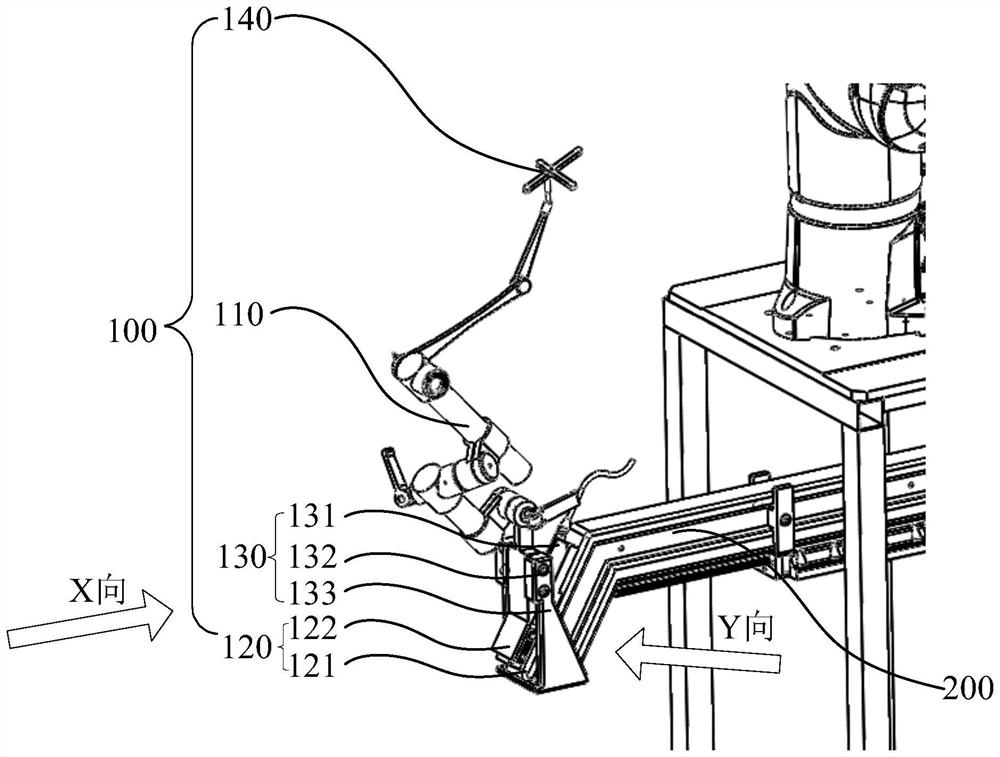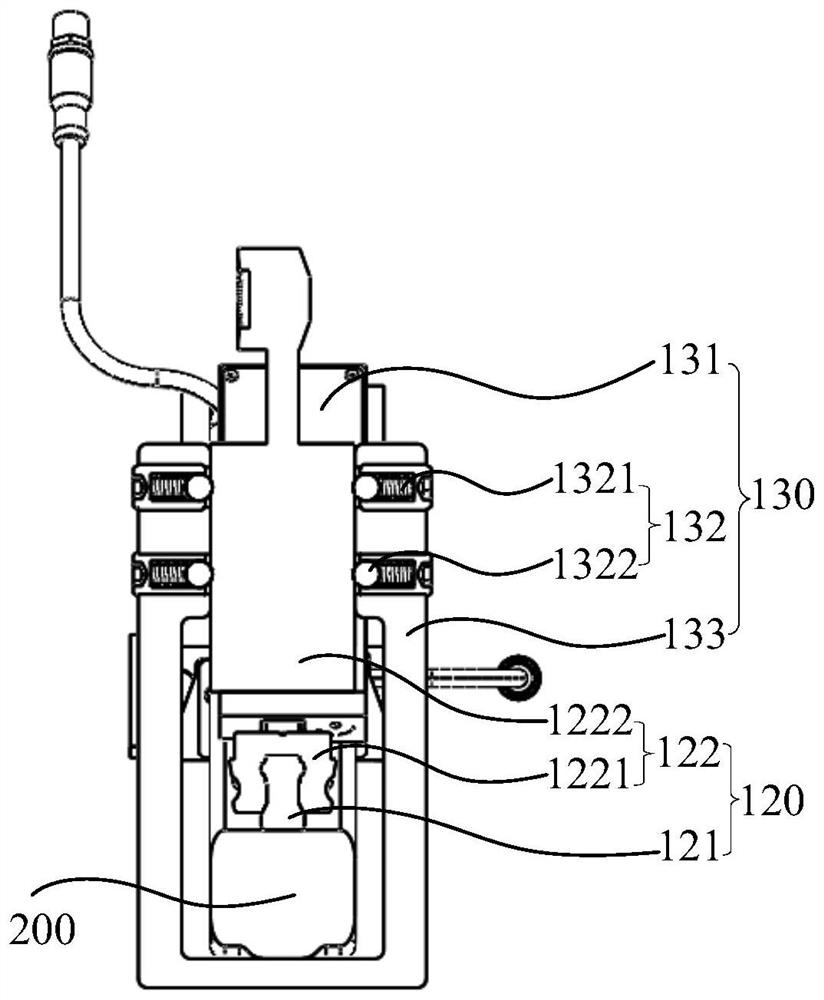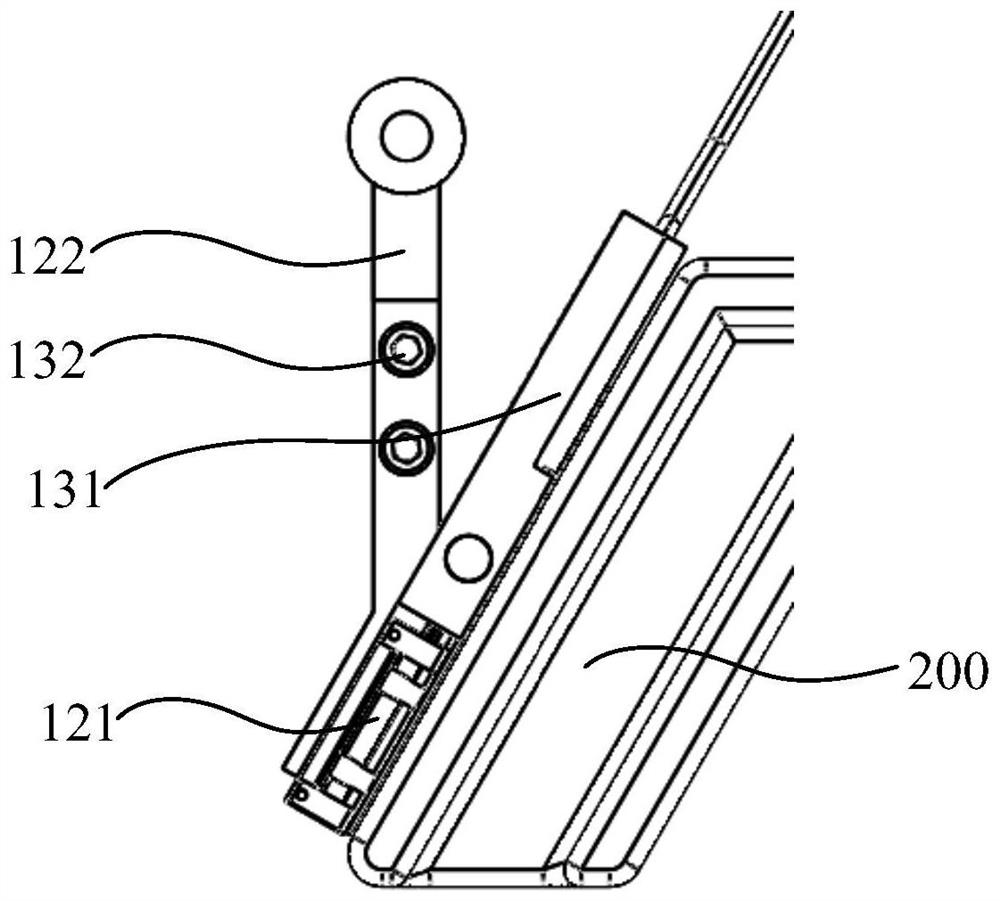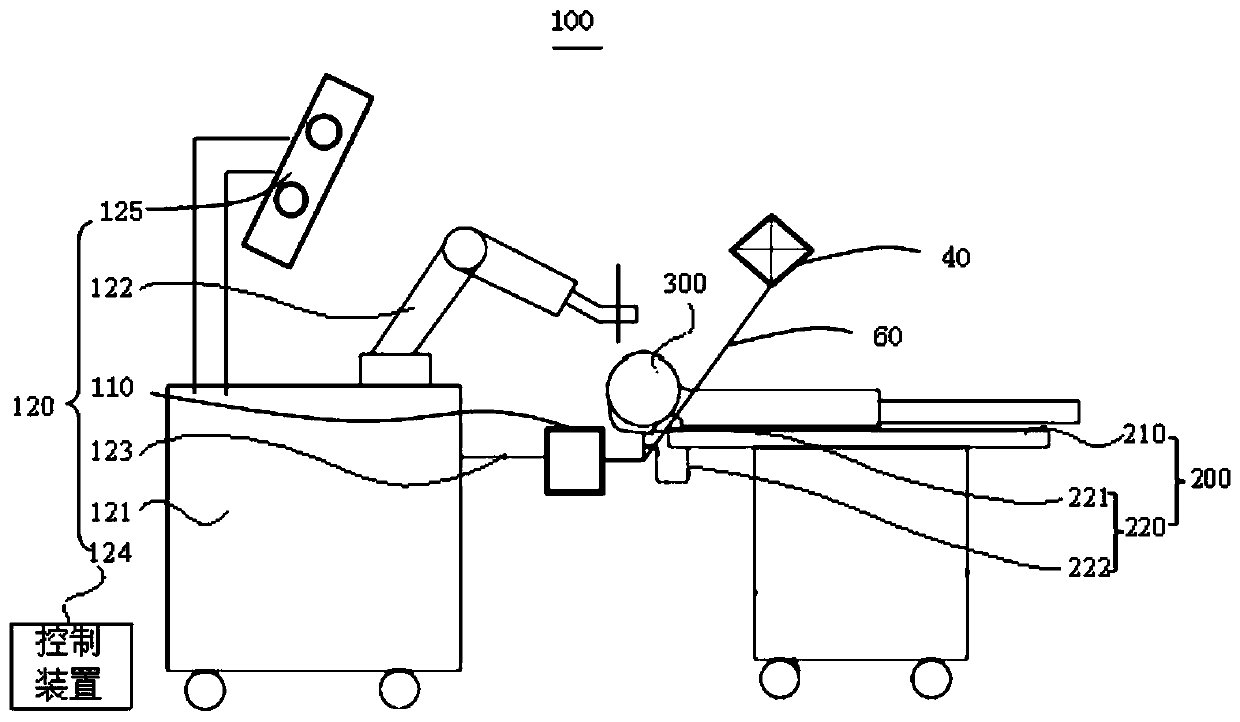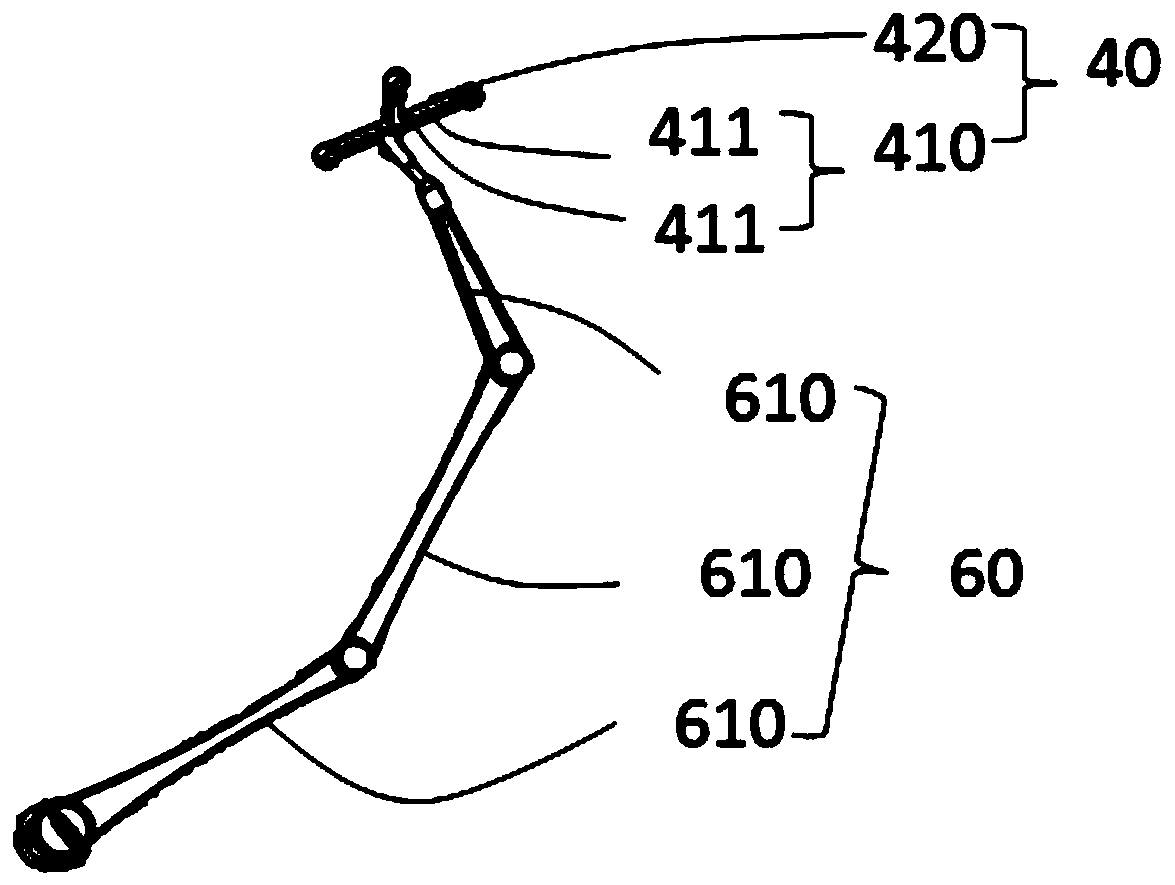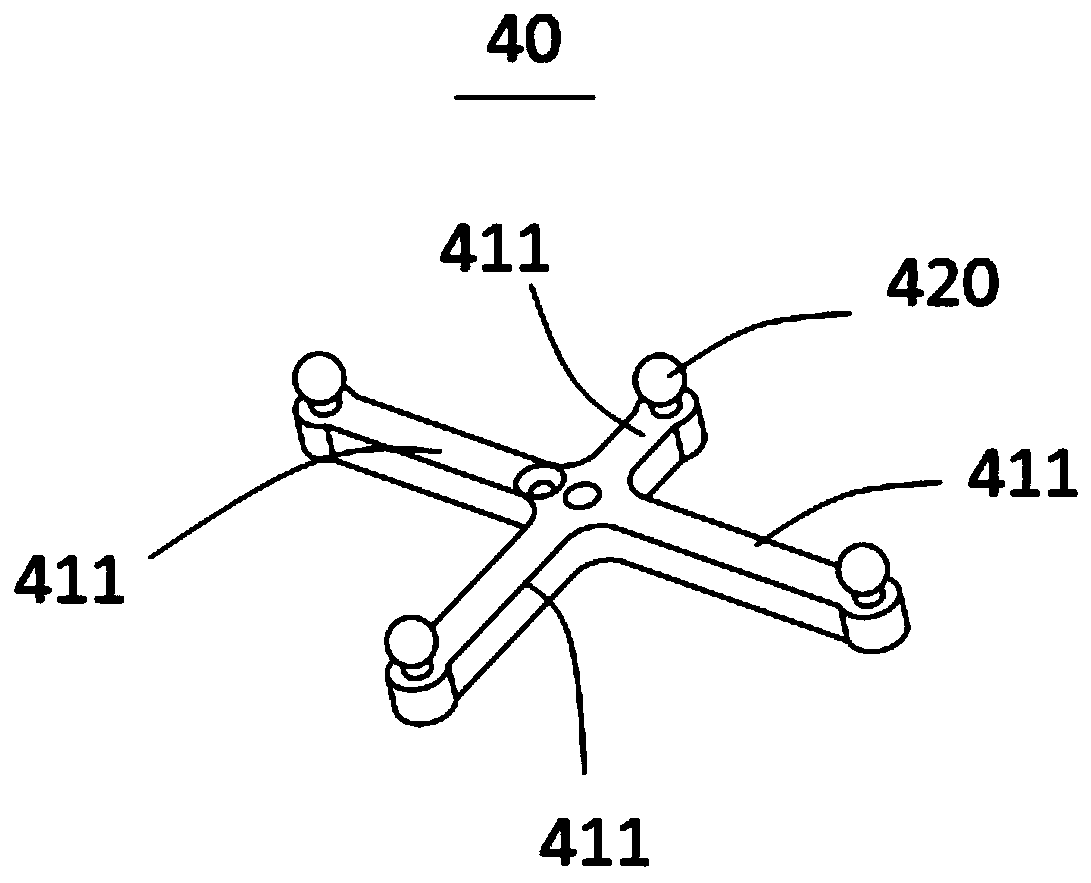Patents
Literature
50 results about "Surgical assistance" patented technology
Efficacy Topic
Property
Owner
Technical Advancement
Application Domain
Technology Topic
Technology Field Word
Patent Country/Region
Patent Type
Patent Status
Application Year
Inventor
A surgical assistant is a surgical team member whose role has been defined by the American College of Surgeons (ACS) to include the following responsibilities, “Surgical assistants provide aid in exposure, hemostasis, closure and other intraoperative technical functions that help the surgeon carry out a safe operation with optimal results for the ...
Surgical Assistance System
InactiveUS20110306985A1Precise resectionMinimal invasivenessDiagnosticsSurgical navigation systemsSurgical operationVoxel
A surgical assistance system for operating on biological tissue using a surgical tool attached to an arm of an automatically-controlled surgical instrument so that an optimal feed rate of the tool is calculated and outputted to the surgical instrument, the system including: a device for storing and voxelizing medical image data obtained from a biological tissue subject to surgery; a device for setting an operative location based on the shape of the biological tissue; a device for calculating a tool path along which the tool travels to perform surgery at an operative location; a device for determining the region of interference between the tool and the voxels; a device for determining the hardness of the biological tissue in the interference region; a device for calculating an optimal tool feed rate corresponding to the hardness; and a device for outputting the feed rate obtained by the calculations to the surgical instrument.
Owner:NAKASHIMA MEDICAL +1
Surgical assistance planning method using lung motion analysis
A medical analysis method for estimating a motion vector field of the magnitude and direction of local motion of lung tissue of a subject is described. In one embodiment a first 3D image data set of the lung and a second 3D image data set is obtained. The first and second 3D image data sets correspond to images obtained during inspiration and expiration respectively. A rigid registration is performed to align the 3D image data sets with one another. A deformable registration is performed to match the 3D image data sets with one another. A motion vector field of the magnitude and direction of local motion of lung tissue is estimated based on the deforming step. The motion vector field may be computed prior to treatment to assist with planning a treatment as well as subsequent to a treatment to gauge efficacy of a treatment. Results may be displayed to highlight.
Owner:BRONCUS MEDICAL
Surgery assistance system for guiding a surgical instrument
ActiveUS20110028992A1Accurate guideProgramme controlProgramme-controlled manipulatorControl mannerEngineering
The invention relates to a surgery assistance system for guiding a surgical instrument, in particular a camera system (2) having an endoscope (3) dependant on manual actuation of at least one function key (T1-T6) of a control element (BE). The surgical instrument (3) is fastened to an arm system (10, 12, 14) of the surgery assistance system (1) having an instrument mount (15) and at least the tip (S) of the surgical instrument (3) can be moved in a controlled manner by means of the arm system (10, 12, 14) in a Cartesian patient coordinate system (PKS), whereby at least one of the three spatial axes (x, y, z) of the Cartesian patient coordinate system (PKS) extends through the surgical opening or the trocar point (T) receiving the surgical instrument (3). Advantageously, the angle of inclination (w) of the surgical instrument (3) is determined with respect to the spatial axis (z) of the Cartesian patent coordinate system (PKS) extending through the trocar point (T) and the angle of inclination (w) so determined is compared with a predetermined set angle of inclination (wS). When the determined angle of inclination (w) exceeds the set angle of inclination (wS), the tip (S) of the surgical instrument (3) is guided on a semi-spherical surface (TK) which concentrically surrounds the trocar point (T) and which receives the tip (S) of the instrument (3), and when the determined angle of inclination (w) is below the set angle of inclination (wS), the tip (S) of the surgical instrument (3) is guided along a tangent (TG) which extends through the tip (S) of the instrument (3) and which rests on the semi-spherical surface (TK).
Owner:AKTORMED
Surgical assistance system
ActiveUS20150250387A1Reduce riskDiagnostic information available to the pathologist is considerably expandedMechanical/radiation/invasive therapiesEndoscopesData connectionImaging equipment
A surgical assistance system includes an endomicroscope (4) and an imaging device (2) for capturing image data, and a transmission unit (63) for transmitting the image data. A pathology unit (70) includes a receiving unit (74) for receiving the image data and a display unit (76) displays the image data. A data connection (69) connects the transmission unit (63) to the receiving unit (74). The imaging device (2) and / or the endomicroscope (4) has at least one functional unit assigned to a functional control unit (65). A data receiving unit (64) receives data from the pathology unit (70). The pathology unit (70) has an input unit (77) for inputting functional control data for the functional control unit (65) and a transmitter unit (73) transmits the functional control data to the devices. The data receiving unit (64) receives and relays the functional control data to the functional control unit (65).
Owner:CARL ZEISS MEDITEC AG
Surgery assistance system
InactiveUS20110125006A1Made preciselyPrecise NavigationSurgical navigation systemsEndoscopesOptical axisClassical mechanics
Even when the optical axis is offset in a rigid endoscope, the actual optical axis position is measured in advance, and surgery navigation can be performed by using the actual optical axis position.A surgery assistance system comprising 3-dimensional shape measurement means for measuring a 3-dimensional surface shape of a patient; and a rigid endoscope (11) to be inserted into the body of the patient; wherein the rigid endoscope has a position-orientation detection marker (12) measurable by the 3-dimensional shape measurement means; 3-dimensional tomographical data of the patient imaged in advance and a position relationship relating to the actual optical axis position of the rigid endoscope measured in advance are stored in the computation means; 3-dimensional tomographical data and the 3-dimensional surface shape of the patient measured by the 3-dimensional shape measurement means are aligned; the position, orientation, and optical axis of the rigid endoscope are computed on the basis of the position-orientation detection marker measured by the 3-dimensional shape measurement means and the stored actual optical axis position of the rigid endoscope; and the aligned 3-dimensional tomographical data, the optical axis of the rigid endoscope, and the intersection of the optical axis and the tissue wall are displayed.
Owner:HAMAMATSU UNIV SCHOOL OF MEDICINE
Surgery assistance system
InactiveUS20120004541A1Perform fast and accurateSurgical navigation systemsComputerised tomographsSkin surfaceMedicine
Provided is a surgery assistance system to perform relatively fast and accurate alignment between three-dimensional surface shape data acquired by measurement using a three-dimensional surface shape scanner and three-dimensional internal shape data acquired in advance, even when the position of the patient and the surface shape of the skin of the patient change during the surgery. A surgery assistance system (1) includes a three-dimensional surface shape scanner (20) for acquiring three-dimensional surface shape data by measuring a three-dimensional surface shape of a patient (60) and a computing device (40) for processing the data from the three-dimensional surface shape scanner. The computing device stores therein three-dimensional internal shape data of the patient that is acquired in advance by measurement using a three-dimensional tomography scanner (30). The computing device has a unit that aligns the three-dimensional internal shape data and the three-dimensional surface shape data with each other by using data of a portion where a distance between a skeleton and a skin surface is small in the three-dimensional internal shape data and three-dimensional surface shape data corresponding to this portion.
Owner:HAMAMATSU UNIV SCHOOL OF MEDICINE
Mechanical system for stabilization on the floor for vehicles on castors
ActiveCN108290596AMaintenance freeEliminate any issues related to vulnerabilityVehicle with rollersCastorsStable stateMarine engineering
The present invention relates to a mechanical system for stabilization (1) on the floor for vehicles (2) on castors (for example a surgical assistance robot used in an operating room) that can adopt two stable states, i.e. disengaged, the vehicle (2) resting on the castors (3), and activated, the vehicle (3) being immobilized on the floor, respectively. According to the invention, the stabilization system (1) comprises: feet for resting (4) on the floor, movable between a first retracted position, at a distance from the floor, and a contact position ensuring the immobilization of the vehicle (2) through mechanical friction against the floor; means for mechanically controlling (5) said supporting feet (4), said control means (5) being movable between two stable positions corresponding to the activated and disengaged states; and mechanical means for transmitting (6) the displacement of the control means (5) simultaneously to all the supporting feet (4).
Owner:医疗技术股份有限公司
Surgery assistance system for guiding a surgical instrument
ActiveUS8433389B2Accurate guideProgramme controlProgramme-controlled manipulatorControl mannerSurgical department
The invention relates to a surgery assistance system for guiding a surgical instrument. The surgical instrument (3) is fastened lo an arm system (10, 12, 14), the tip (S) of the surgical instrument (3) can be moved in a controlled manner by means of the arm system (10, 12, 14) in a Cartesian patient coordinate system (PKS), one of the three spatial axes (x, y, z) of the Cartesian patient coordinate system (PKS) extends through the surgical opening or the trocar point (T) receiving the surgical instrument (3). Advantageously, the angle of inclination (w) of the surgical instrument (3) is determined with respect to the spatial axis (z) of the Cartesian patent coordinate system (PKS) extending through the trocar point (T), the angle of inclination (w) so determined is compared with a predetermined set angle of inclination (ws) for the purpose of guiding the tip (S).
Owner:AKTORMED
Malleable Surgical Assistance Devices
InactiveUS20150045613A1Add supportEasy to useEndoscopesSurgical field illuminationFluteSurgical site
An array of surgical assistance devices that may be used to provide a source of light to the surgical site; collect video or photo imaging of the surgical site; and / or provide smoke / vapor evacuation from the surgical site. The primary elements of the invention include lengths of flexible or malleable tubing or light wave guides that, through a first flexible section, may be connected to standard operating room equipment, through to a moveable base that may be positioned by the surgeon or the surgery personnel. The moveable base includes a clip structure designed to receive the tubing or wave guide conduit, and to be placed on or near the patient at or near the surgical site. The base may be provided with a moderately weighted material to facilitate the support of the surgical assistance device or may comprise a bendable ribbon or band with a securing clip. Extending from the moveable base is a malleable or bendable section of the tubing or wave guide that extends toward the surgical site to a terminal point configured with an appropriate light output, imaging lens, or evacuation flute. Additional components within the overall system facilitate the use of the devices by the surgeon for both the active surgical process and as a record keeping function of the same.
Owner:EDWARDS NORTON
Integrated surgical navigational and neuromonitoring system having automated surgical assistance and control
InactiveCN101677778APhysical therapies and activitiesSpinal electrodesEngineeringSurgical department
The invention relates to an integrated surgical navigational and neuromonitoring system having automated surgical assistance and control. The integrated system provides real-time introperative assistance to a surgeon or other user. The integrated system can also automatically control neuromonitoring based on a position of a neuromonitoring probe.
Owner:WARSAW ORTHOPEDIC INC
Method and system for interactive grid placement and measurements for lesion removal
ActiveUS20180116726A1Surgical systems user interfaceComputer-aided planning/modellingGraphicsMedicine
The present disclosure relates to a system and method of providing surgical assistance. The method includes obtaining a 3D space including an organ and a lesion located within the organ. Based on a shape of the organ, a grid is overlaid on a surface of the organ. The lesion is projected at a first location on an overlaid grid. A graphical tool disposed in a first orientation is positioned at the first location in the 3D space, and a plurality of parameter values of the lesion corresponding to the first orientation of the graphical tool are displayed in the 3D space. The graphical tool is manipulated to be disposed in a second orientation at a second location on the overlaid grid, and the plurality of parameter values of the lesion corresponding to the second orientation of the graphical tool are displayed in the 3D space.
Owner:EDDA TECH
Instrument navigation in computer-assisted hip surgery
A computer-assisted surgery system comprises a calibrating instrument adapted to be applied to a pelvis in a known manner, and a surgical instrument. A computer-assisted processor unit operating a surgical assistance procedure and comprises at least one portable inertial sensor unit configured to be connected to the at least one calibrating instrument and the at least one surgical instrument, the portable inertial sensor unit outputting readings representative of its orientation. A geometrical relation data module provides a geometrical relation data between the orientation of the portable inertial sensor unit, of the calibrating instrument and of the surgical instrument. A coordinate system module sets a coordinate system of the pelvis in which an anterior-posterior axis of the pelvis is generally in a direction of gravity, and in which a medio-lateral axis of the pelvis is obtained from readings of the at least one portable inertial sensor unit on the calibrating instrument using the geometrical relation data therebetween. A tracking module tracks movements of the at least one surgical instrument relative to the coordinate system using readings from the inertial sensor unit on the surgical instrument using the geometrical relation data therebetween, and calculates navigation data for the movements, the navigation data relating the orientation of the surgical instrument to the orientation of the pelvis. An interface outputs the navigation data.
Owner:ORTHOSOFT ULC
Clinical head-mounted surgical assistant device for gynecology department
InactiveCN109488910AEasy to fine-tune the angleEasy to adjustMechanical apparatusLighting support devicesMedicineAssistive technology
The invention relates to the technical field of clinical surgical assistance for the gynecology department, in particular to a clinical head-mounted surgical assistant device for the gynecology department. The clinical head-mounted surgical assistant device for the gynecology department comprises a cap body, wherein air holes are equidistantly formed in two sides of the cap body; an elastic bandage is connected to the lower end of the cap body; an anti-wear sleeve sleeves the outer side of the elastic bandage; a first switch is arranged at the upper end of the cap body; a second switch is arranged on the outer side of the cap body; a first outer cover is connected to the upper end of the outer side of the cap body; a clapboard is jointly connected to one side, corresponding to the cap body, of the first outer cover; a storage battery is arranged at the upper end of the outer side of the cap body; an electric push rod is arranged on the left side of the clapboard; and a second outer cover is connected to the left side of a fixed pillar. The clinical head-mounted surgical assistant device for the gynecology department provided by the invention is reasonable in structure design, flexible in structure use, high in practicability, convenient to adjust the angle of a lighting lamp, capable of moving to adjust the lighting position, convenient to use, and beneficial to effectively improving the comfort level of a user.
Owner:杨林青
Medical mechanical arm anti-collision system used in operating room
PendingCN110507417AReduce chance of head bumpingTimely monitoringSurgical robotsGyroscopeHigh energy
The invention relates to the technical field of medical surgical assistance and discloses a medical mechanical arm anti-collision system used in an operating room. The system comprises a balance system, an AI (artificial intelligence) scene recognition system, an AI self-learning system, a high-energy risk pre-warning reaction system and an intelligent stop shrinking system, wherein the balance system judges the posture state of a box through a gyroscope arranged in the bottom of the box, and drives a motor to achieve balance after an appropriate instruction is calculated out by a central microprocessor; the AI scene recognition system judges whether the box is located indoors or outdoors through a perception recognition module; the AI self-learning system informs that system staffs are approaching by a voice command through a sound pick-up, and related operation can be carried out normally; the high-energy risk pre-warning reaction system recognizes the size, the distance and the speed of an approaching object through a surveillance radar and judges whether the approaching object is a human or not through the perception recognition module. The medical mechanical arm anti-collisionsystem has the advantages of timely monitoring and rapid response, and can make different reactions by judging whether the approaching object is a worker or a substance, so that the probability of head collision of a user is substantially reduced.
Owner:上海声勤信息科技有限公司
Virtual surgical assistant
Owner:YOUNGBLOOD TERRY
Method and system for interactive grid placement and measurements for lesion removal
ActiveUS10201389B2Input/output for user-computer interactionSurgical systems user interfaceGraphicsMedicine
The present disclosure relates to a system and method of providing surgical assistance. The method includes obtaining a 3D space including an organ and a lesion located within the organ. Based on a shape of the organ, a grid is overlaid on a surface of the organ. The lesion is projected at a first location on an overlaid grid. A graphical tool disposed in a first orientation is positioned at the first location in the 3D space, and a plurality of parameter values of the lesion corresponding to the first orientation of the graphical tool are displayed in the 3D space. The graphical tool is manipulated to be disposed in a second orientation at a second location on the overlaid grid, and the plurality of parameter values of the lesion corresponding to the second orientation of the graphical tool are displayed in the 3D space.
Owner:EDDA TECH
Surgical assistance device, control method therefor, and surgical assistance system
Provided are a surgical assistance device, a control method therefor, and a surgical assistance system. The surgical assistance device can measure the movement of the medical instrument inserted intothe body cavity in the linear movement direction with high precision. The surgical assistance device can be operated by using a surgical tool inserted into a body cavity; the surgical assistance device is provided with a measuring unit. And a measurement means for measuring the insertion depth and insertion angle of the surgical tool inserted into the body cavity in the axial direction of the bodycavity. And a measurement means for measuring the insertion depth by measuring an acoustic wave propagating through a space between a transmitter attached to one of the surgical tools and a transmitter attached to the other receiver, the transmitter and the receiver being located within a prescribed range from the insertion position into which the surgical tool is inserted into the body cavity, as an input of an operation.
Owner:株式会社卓越牵引力
Surgical assistance system
ActiveUS10582856B2Reduce riskDiagnostic information available to the pathologist is considerably expandedMechanical/radiation/invasive therapiesEndoscopesData connectionImaging equipment
A surgical assistance system includes an endomicroscope (4) and an imaging device (2) for capturing image data, and a transmission unit (63) for transmitting the image data. A pathology unit (70) includes a receiving unit (74) for receiving the image data and a display unit (76) displays the image data. A data connection (69) connects the transmission unit (63) to the receiving unit (74). The imaging device (2) and / or the endomicroscope (4) has at least one functional unit assigned to a functional control unit (65). A data receiving unit (64) receives data from the pathology unit (70). The pathology unit (70) has an input unit (77) for inputting functional control data for the functional control unit (65) and a transmitter unit (73) transmits the functional control data to the devices. The data receiving unit (64) receives and relays the functional control data to the functional control unit (65).
Owner:CARL ZEISS MEDITEC AG
Surgery assistance system
PendingUS20210128244A1Mechanical/radiation/invasive therapiesEnsemble learningSurgical operationImaging processing
A surgical assistance system includes a processing unit; and a non-transitory computer-readable memory communicatively coupled to the processing unit and comprising computer-readable program instructions executable by the processing unit for: obtaining a video feed of a surgical procedure and monitoring the surgical procedure from the video feed; detecting, from an image processing of the video feed, a condition requiring a deviation from the surgical procedure, the deviation being defined as being outside of a standard surgical flow; and outputting a recommendation of deviation by intra-operatively providing the recommendation to an operator of the surgical procedure.
Owner:ORTHOSOFT ULC
Surgery assistance system
Provided is a surgery assistance system to perform relatively fast and accurate alignment between three-dimensional surface shape data acquired by measurement using a three-dimensional surface shape scanner and three-dimensional internal shape data acquired in advance, even when the position of the patient and the surface shape of the skin of the patient change during the surgery. A surgery assistance system (1) includes a three-dimensional surface shape scanner (20) for acquiring three-dimensional surface shape data by measuring a three-dimensional surface shape of a patient (60) and a computing device (40) for processing the data from the three-dimensional surface shape scanner. The computing device stores therein three-dimensional internal shape data of the patient that is acquired in advance by measurement using a three-dimensional tomography scanner (30). The computing device has a unit that aligns the three-dimensional internal shape data and the three-dimensional surface shape data with each other by using data of a portion where a distance between a skeleton and a skin surface is small in the three-dimensional internal shape data and three-dimensional surface shape data corresponding to this portion.
Owner:HAMAMATSU UNIV SCHOOL OF MEDICINE
Surgical assistance system and method for generating control signals for voice control of a surgery assistance system robot kinematics that can be moved in a motor-controlled manner
ActiveUS20190365488A1Precise and user-friendly voice controlEasy to controlProgramme-controlled manipulatorSurgical robotsControl signalControl manner
The invention relates to an operation-assistance system for guiding a medical auxiliary instrument (20), which can be inserted in an operating site (12) of a patient body (10) via an operation opening (11), and can be moved in a controlled manner. The system comprises a kinematic robot (3, 4, 5) that receives the medical auxiliary instrument (20) on the free end thereof by means of an auxiliary instrument holding device (6), and can be moved in a motor-controlled manner in order to guide the medical auxiliary instrument (20) in the operating site (12), by means of control signals (SS) generated by a control unit (CU). At least one voice control routine (SSR) is implemented in the control unit (CU), by means of which different voice commands (SB, SB1, SB2) are detected and evaluated and associated control signals (SS) are determined in accordance.
Owner:AKTORMED
Clinic integrated care and rescue device used in pediatric department
InactiveCN109431732AHigh degree of intelligenceEasy to monitorOperating tablesLighting elementsMicrocomputerMicrocontroller
The invention discloses a clinic integrated care and rescue device used in the pediatric department. The clinic integrated care and rescue device used in the pediatric department comprises a bed frame, wherein the side face of the bed frame is provided with an open-source single chip microcomputer, a monitoring device, an adjusting mechanism and an angle adjusting device, the end of the angle adjusting device is provided with a bed board, the bed board is slidingly connected with the bed frame through a sliding mechanism, the end of the adjusting mechanism is provided with a surgical assistance device, and the input end of the open-source single chip microcomputer is electrically connected with the output end of an external power source. The clinic integrated care and rescue device used inthe pediatric department monitors vital signs of a child through the monitoring device, is high in intelligence degree and good in flexibility, facilitates monitoring, has remote and near-end warningcapability, provides convenience for medical workers to rescue the child in time, adjusts the working position of the surgical assistance device through the adjusting mechanism and conveniently meetsdifferent use demands.
Owner:王文文
Surgical assistance planning method using lung motion analysis
A medical analysis method for estimating a motion vector field of the magnitude and direction of local motion of lung tissue of a subject is described. In one embodiment a first 3D image data set of the lung and a second 3D image data set is obtained. The first and second 3D image data sets correspond to images obtained during inspiration and expiration respectively. A rigid registration is performed to align the 3D image data sets with one another. A deformable registration is performed to match the 3D image data sets with one another. A motion vector field of the magnitude and direction of local motion of lung tissue is estimated based on the deforming step. The motion vector field may be computed prior to treatment to assist with planning a treatment as well as subsequent to a treatment to gauge efficacy of a treatment. Results may be displayed to highlight.
Owner:BRONCUS MEDICAL
Systems and methods for providing surgical assistance in the presence of tissue deformation
ActiveCN108601512BUltrasonic/sonic/infrasonic diagnosticsImage enhancementTissue materialSurgical assistance
Owner:SONY CORP
Surgical assistance robot and positioning method of surgical assistance robot
PendingCN113520599ATelevision system detailsDiagnosticsPhysical medicine and rehabilitationComputer vision
Owner:KAWASAKI HEAVY IND LTD +1
A surgical operation auxiliary system with a detachable disinfection device
ActiveCN112890966BEasy to installEasy to useSurgical furnitureChemicalsSurgical operationEngineering
The invention provides a surgical assistance system with a detachable disinfection device, comprising: a support frame, a mounting arm, an anti-dropping device and a disinfection device, the support frame supports a mounting arm located in a horizontal direction, and a middle part of the mounting arm is mounted with a Disinfection device; the disinfection device includes: a disinfection bottle, a nozzle, a rotating cover, a ventilation mechanism and a mounting ring. The disinfection bottle is used to store disinfectant, the top of the disinfection bottle is provided with a ventilation hole, and a ventilation hole is installed on the disinfection bottle for opening and closing the ventilation hole. The ventilation mechanism is connected with a nozzle at the bottom of the disinfection bottle, a mounting ring around the nozzle is fixed on the disinfection bottle, the top surface of the mounting arm is recessed to form a socket for the mounting ring to be inserted, and the mounting ring cannot rotate in the socket , the installation ring is equipped with a rotating cover that surrounds the nozzle, and the rotating cover is used to open and close the nozzle; the nozzle passes through the installation arm. The surgical assistance system with a detachable sterilization device solves the problem of inconvenient detachment and installation of the sterilization bottle in the prior art.
Owner:THE SECOND AFFILIATED HOSPITAL OF XIAN JIAOTONG UNIV
Device for surgical assistance
A device for surgical assistance is disclosed. The device comprising one or more rails, and a plurality of side posts. The rails are configured to attach to a hand table via one or more engagement members. The plurality of the side post comprises an upper part and a lower part. The lower part of the said side post is engaged to the rails via a clamp mechanism. The upper part of the said side post is configured to hold surgical equipment. Further, each of the side post is height adjustable. The device further comprises a rail extension system, which is attached to an end portion of rails lying close to a trunk portion of the patient.
Owner:TRINITINE INNOVATIONS LLP
Usage instrument estimation device and method, and surgical assistance robot
PendingCN114449970ASurgical navigation systemsSurgical systems user interfaceSurgical operationEngineering
The invention provides a use instrument inferring apparatus and method, and a surgical assistance robot. This instrument use estimation device is provided with: an action recognition unit that recognizes the action of a surgeon during a surgical operation on the basis of action detection data in which the behavior of the surgeon is detected; a condition recognition unit that recognizes the condition of the operation on the basis of the action recognition result of the action recognition unit; and an estimation unit that estimates, on the basis of the condition recognition result of the condition recognition unit, at least one of the plurality of types of surgical instruments that are given in advance, which is to be used next by the surgeon.
Owner:KAWASAKI HEAVY IND LTD
Surgical assistant robot system, support unlocking mechanism and unlocking method thereof
ActiveCN111202651BAddress hurtingAvoid harmOperating tablesSurgical robotsPhysical medicine and rehabilitationHeadframe
The invention provides a surgical auxiliary robot system, a support unlocking mechanism and an unlocking method thereof. The support unlocking mechanism is arranged on the support arm of the surgical auxiliary robot system and is connected with the head frame mechanism of the hospital bed system. The support unlocking mechanism includes: a head frame adaptation mechanism for connecting with the head frame mechanism; a sliding mechanism , disposed on the support arm, and capable of slidably installing the headgear adaptation mechanism; and a locking mechanism, disposed on the support arm, and capable of locking or unlocking the headgear adaptation mechanism to the sliding mechanism; When the locking mechanism is locked, the locking mechanism fixes the headgear adapting mechanism to the sliding mechanism. When an accident occurs, the locking mechanism can unlock the sliding mechanism in time, so that the position of the headrest mechanism is no longer fixed, and it can sink together with the bed system to prevent patients from being injured and play a role of safety protection.
Owner:WUHAN UNITED IMAGING HEALTHCARE SURGICAL TECH CO LTD
Surgical assistance system and control method thereof
The invention relates to a surgical assistance system and a control method thereof. The surgical assistance system comprises a visual marker and surgical assistance equipment. The visual marker is disposed in a surgical bed system. The surgical assistance equipment comprises a support arm, a support unlocking mechanism, a visual tracking device, and a control device. The visual marker is disposedin the surgical bed system. The visual marker performs synchronous movement with the surgical bed system. The visual tracking device is used for acquiring a first optical signal emitted by the visualmarker. The control device is used for determining whether the surgical bed system is in a safe state or not according to the first displacement signal. If the surgical bed system is in the non-safe state, the control device controls the support unlocking mechanism to unlock to separate the support arm from the surgical bed system. The surgical auxiliary system effectively prevents a situation that serious injury is caused to a surgical site of a patient due to that the surgical site of the patient is still fixed on a bracket fixedly connected with the support arm when the surgical bed suffersfrom collapsing, tilting or other accidents.
Owner:WUHAN UNITED IMAGING HEALTHCARE SURGICAL TECH CO LTD
Features
- R&D
- Intellectual Property
- Life Sciences
- Materials
- Tech Scout
Why Patsnap Eureka
- Unparalleled Data Quality
- Higher Quality Content
- 60% Fewer Hallucinations
Social media
Patsnap Eureka Blog
Learn More Browse by: Latest US Patents, China's latest patents, Technical Efficacy Thesaurus, Application Domain, Technology Topic, Popular Technical Reports.
© 2025 PatSnap. All rights reserved.Legal|Privacy policy|Modern Slavery Act Transparency Statement|Sitemap|About US| Contact US: help@patsnap.com
